7 things you should know before traveling to Brazil

Nov 8, 2023 • 5 min read
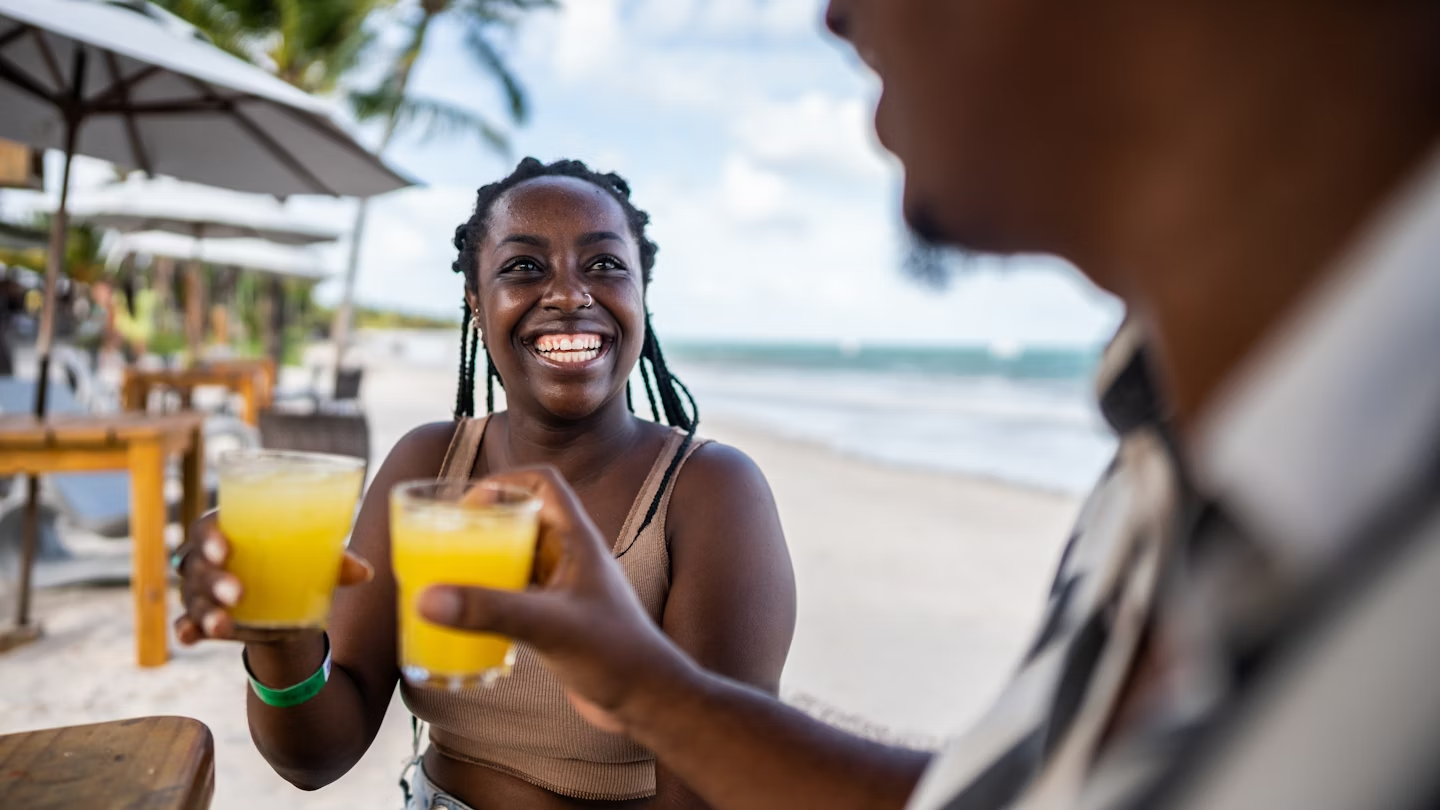
Keep these tips in mind and you'll have an incredible trip to Brazil © FG Trade / Getty Images
Just mention that you’re planning a trip to Brazil, and the idea will instantly conjure up images of sunny beaches and the infectious rhythm of a samba beat or the sultry melodies of bossa nova.
From the iconic yellow and blue kit of its national soccer team, the flamboyant outfits of the Carnaval dancers, and the famously fruity headpiece of Carmen Miranda, Brazil’s cultural impression on the world has been wide-reaching. But as a Brazilian-American it always surprises me how little others know about the vast country’s many diverse regions and day-to-day customs.
Growing up snacking on pão de queijo (cheese bread) and brigadeiros (chocolate truffles), I’ve been visiting Brazil since I was a kid and regularly return to visit family and explore new regions.
There are endless ways to experience Brazil, but these are the top things to know if you want to plan a trip to Brazil that goes above and beyond.
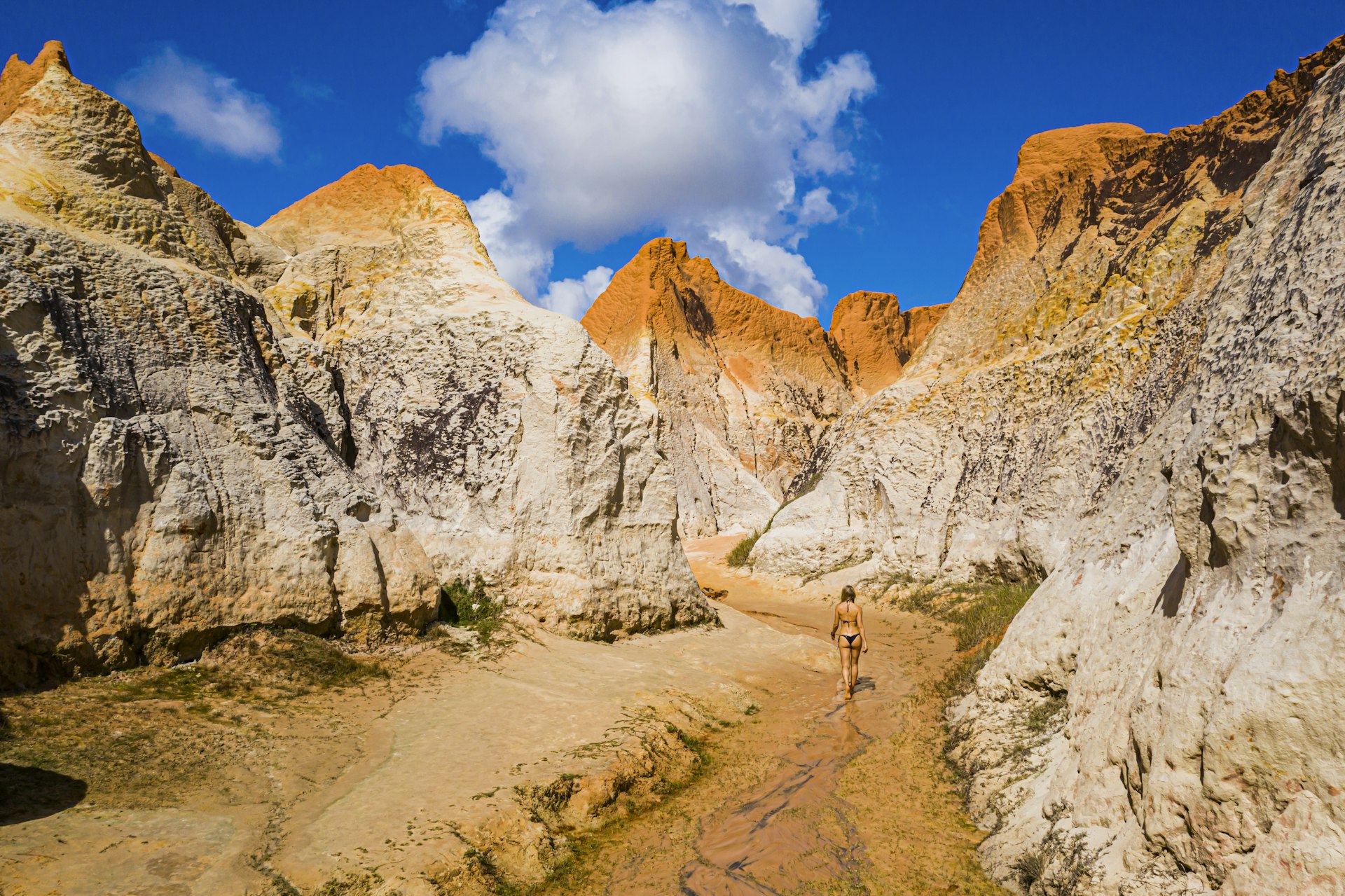

1. There’s more than just beaches and jungles
The energy of Copacabana Beach and the alluring biodiversity of the Amazon Rainforest may have captured the world’s attention, but that’s really the tip of the iceberg when it comes to Brazil’s natural beauty.
Adventurous nature lovers will find Brazil to be a treasure trove that contains a wealth of geographical diversity.
In the northeastern regions, you can explore the massive dunes and natural swimming pools in the states of Ceará and Maranhão or venture to the landlocked state of Tocantins, where a vast savannah is home to the remarkably unique park of Jalapão .
National parks like Chapada Diamantina and Chapada dos Veadeiros stun visitors with their mountain vistas and waterfalls, not to mention the staggering power of Iguaçu, one of the world’s largest waterfalls made up of over 200 cascades.
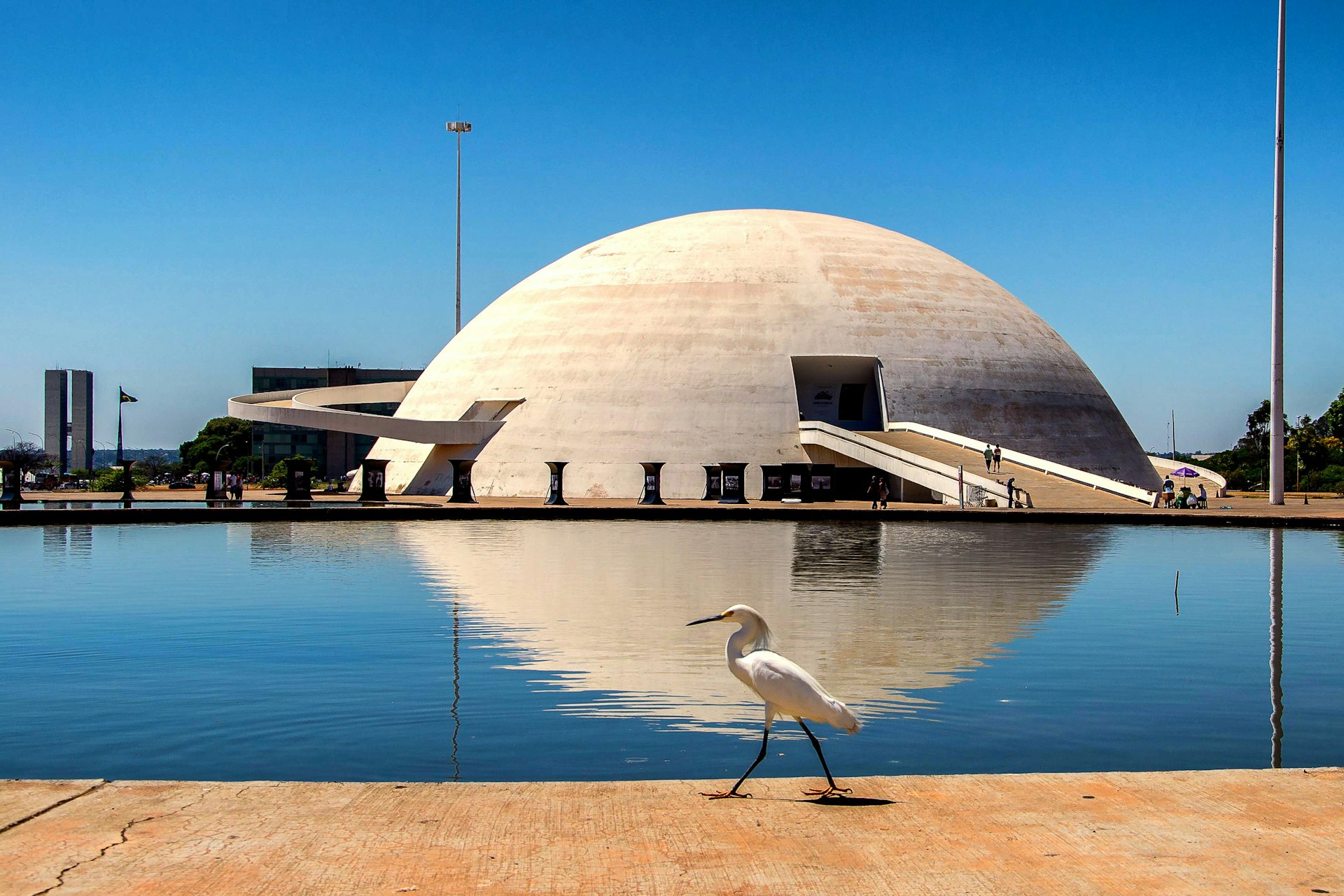
2. There are more urban hubs beyond Rio and São Paulo
While Rio de Janeiro boasts Brazil’s most iconic skyline and São Paulo is a mega-metropolis that hosts many of the country’s cultural and business institutions, these are hardly the only urban centers in Brazil worth visiting.
Architecture fans should plan a trip to the capital city of Brasilia , where the work of Brazilian architect Oscar Niemeyer takes center stage, while gastronomically inclined travelers should check out Belo Horizonte , the capital of Minas Gerais, a state renowned by Brazilians for its cuisine.
Up north, Salvador is a center for exploring the epicenter of Afro-Brazilian culture, which is the source of the martial art of capoeira and feijoada (a meaty bean stew), Brazil’s national dish.
3. Brazil is a cultural melting pot
The USA is hardly the only cultural stew in the Western hemisphere. Brazilian culture melds together the customs and traditions of the indigenous, Afro-Brazilan and immigrant communities.
In São Paulo, the neighborhood of Liberdade is home to a strong Japanese-Brazilian community; in southern states, you'll see the influence of German immigrants in the region's cross-timbered houses.
Even the food has Lebanese and Italian roots, with kibbeh (fried bulgar wheat and meatballs) and pizza being some of the most popular late-night snacks among Brazilians.
The national dish feijoada , originates from Afro-Brazilian and indigenous communities who used cassava flour long before the arrival of Europeans in Brazil. This flour is a key ingredient for farofa (toasted cassava flour), the most popular side dish to have with your feijoada .
4. A little Portuguese will be a huge asset
Outside of the traditional tourism sectors, you won’t find many Brazilians who speak English, and whatever your level of Spanish may be, it probably won’t get you far enough.
In addition to studying basic phrases , you should also prime yourself on pronunciation. For example, an r at the beginning of a word makes an h sound, which means the “rio” in Rio de Janeiro is pronounced more like “hio.”
It may seem like a small detail, but it’s an essential thing to be aware of should you ever need to ask for directions.

5. A kiss on the cheek is a customary greeting
In a social situation, a kiss on the cheek is the routine greeting among Brazilians – even if you’re just meeting someone for the first time.
It doesn’t need to be a full kiss, but cheek-to-cheek contact with a smacking sound is the standard. It’s typically expected between two women or a man and a woman, but men often opt for a handshake.
If the situation is more formal, like a business meeting or a simple shopping exchange, you can skip the kiss. The number of kisses also vary by region: in São Paulo it’s one, in Rio it’s two, and in Bahia , it can be three or more.
6. Safety should be top of mind in urban areas
Crime is a widespread issue throughout Brazil, especially in large cities and the favelas usually located in the city outskirts. Favela tours are possible, but the business is controversial as many people believe it to be exploitative and unethical.
Brazilians will generally warn tourists against wearing jewelry when out and openly carrying expensive electronics, especially phones.
This has happened to me many times when I’m out shooting photos, as many people stop to point to my camera with a concerned “ cuidado ” (be careful). Keep your wits about you in crowded areas – especially ones with many tourists – and avoid walking alone at night.
7. It’s illegal to drive in flip-flops
Even though Brazil is famous for its Havaianas , Brazilians are serious when it comes to road safety. Flip-flops can easily get caught on a car's pedals and cause accidents, so if you are caught driving with them, you may get fined. However, it is acceptable to drive barefoot if you don’t have any other footwear on you.
Explore related stories
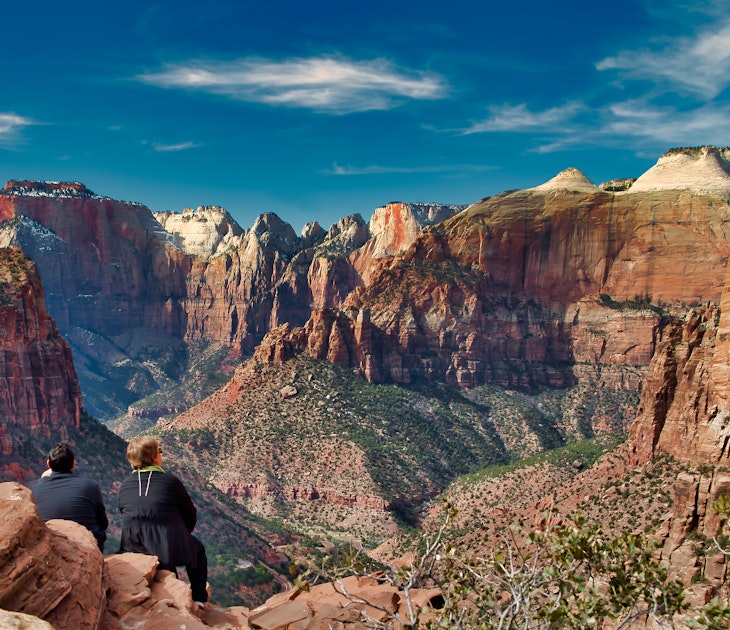
Destination Practicalities
May 6, 2024 • 12 min read
Zion is one of the most-visited national parks in the United States. Plan your trip with this first-timer's guide.
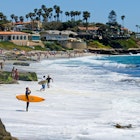
May 3, 2024 • 12 min read

Apr 19, 2024 • 6 min read
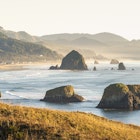
Apr 17, 2024 • 6 min read

Apr 11, 2024 • 6 min read

Mar 30, 2024 • 4 min read
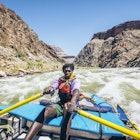
Mar 30, 2024 • 5 min read
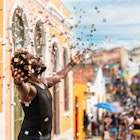
Mar 1, 2024 • 9 min read

Feb 23, 2024 • 6 min read

Feb 9, 2024 • 12 min read
- South America
- 13 Brazil Travel Tips That...
13 Brazil Travel Tips That Might Save Your Life

Brazil is one of the most intoxicating countries to travel in with its natural wonders, enticing cities and seductive culture . It also comes surrounded by stories of high-murder levels and armed street crimes. The reality is the majority of tourists will leave Brazil thinking the media paint an unfair picture, yet unfortunately incidents and accidents do happen and not always crime related. Here’s how to ensure you have a safer trip to Brazil.
Use a guide in remote areas.
Places such as the Pantanal and the Amazon rainforest are two of the most fascinating natural environments in Brazil with an extraordinary collection of rare and wonderful wildlife . They are also the home of potentially dangerous animals such as panthers, anacondas, caimans, poisonous spiders and parasites. Always remember you are a guest in these regions and life-and-death survival becomes a real issue if you don’t take sensible measures. Always go with a reputable guide to the Pantanal or the Amazon rainforest to get the most out of your trip and avoid getting lost.

Don’t be the hero
If you or your friends face the unpleasant situation of being robbed, don’t try and negotiate, hold onto your things or fight back. Hand over your possessions, count your blessings that you just lost nothing more and see it as a dramatic travel-story to tell. Fighting back can risk your life as many robbers feel they have nothing to lose and don’t fear going to prison. Even if you can’t see a gun or knife, assume it is there as it may be concealed.
Take care in favelas
Favelas (slums) receive a bad reputation and much of the time, it’s not deserved. However, many favelas are often run by gangs that make money through the drug trade. This causes shoot-outs between gangs and suspicion of strangers entering the community (after all, it could be the police and not a tourist) leading to a ‘shoot first, ask later’ reaction. In Rio de Janeiro, the majority of the favelas in the south zone are safe to go to, such as Rocinha, Vidigal and Tavares, and have great, friendly parties or favela tours there. Best avoid the ones in the north zone. In other cities, ask around at your hostel or hotel for recommendations.

Drive through the red traffic signals
Contrary to what everyone learned at driving school, it is usually acceptable to drive through red traffic signals late at night in big cities, provided there is no other traffic. The logic underlying this is that stopping at traffic signals on an empty street may leave you at risk of being robbed you at gunpoint from your car. Driving through the red lights is a precaution to avoid this possibility.
Use mosquito repellent
Mosquitos are rampant in some areas of Brazil and some come bearing unwanted gifts such as dengue, zika and chikunguny, the latter being the current epidemic in Rio de Janeiro. The effects of these viruses can be devastating, such as serious birth defects and even death for the very vulnerable in the population. Avoid the drama by using mosquito repellent every day and before going to sleep.
Make copies of your documents
Carrying a proof of identity is required in Brazil and even though you may never be asked to show it, in the rare cases you do, you will be expected to have it. Rather than carry your passport, driving license or any other form of identity on your person, just carry clear, clean photocopies of your identity, ensuring it is photo ID.

Use sunscreen and drink lots of water
A tan is a wonderful temporary reminder of travelling to exotic lands; blisters and red skin aren’t. The heat in Brazil in summer is intense and the sun is immensely strong. Rio de Janeiro sees temperatures of up to 50 degrees celsius. Since Brazil has so much to offer outdoors, it is best to constantly apply sun protection to avoid skin damage. Also drink plenty of water to stay hydrated, at least two liters a day.
Do not drive a motorcycle in the cities
With the heaving traffic of the big cities, whipping around on a motorcycle can seem like a time-saver. Yet it comes with a high risk, on average nearly three people a day die from motorbike accidents in Sao Paulo city. For those that don’t know the roads or are not used to driving in Brazil, the risk can be higher. Best to lose a bit of time taking public transport than to risk your life.

Get vaccines
Travelling to Brazil doesn’t necessarily mean you need vaccines, especially for trips to cities such as Rio de Janeiro and Salvador or visits to the south of the country. However, if your trip includes a tour of the Amazon rainforest , than vaccines are highly recommended. Among the essential vaccines are Hepatitis A, Typhoid, and Yellow Fever. Malaria is also recommended.
Keep an eye on your bag
A bag that crosses over your body is the best kind. Avoid carrying around larger, expensive handbags or bags with an open pocket which is easy for pick-pocketing. When at bars, keep your bag on your lap and on the beach tuck your bag under your beach towel. Don’t leave your bag with your possessions in unattended. There is a risk it will be stolen.

Say no to drugs
Using drugs in Brazil is completely illegal and not only does drug use expose users to risky areas such as favelas and gang-owned zones, it also comes with harsh prison penalties with lengthy waiting lists for trial. Prison conditions in Brazil are bad and face severe overcrowding issues, police brutality and deadly riots.
Use a condom
HIV is controlled nowadays in Brazil, yet the country still makes up one of the 15 countries that represent 75% of the global population that have the HIV virus. It’s a small risk but use a condom to minimize it. Also, be aware that getting the morning after pill is tricky in Brazil, you will need a prescription from the doctor to be able to get it from the pharmacy (and there is no guarantee that you can see the doctor on the day that you need to).

Take caution with taxis
Most taxi drivers are good and honest people, yet some try to overcharge tourists and give other taxi drivers a bad name. When you get into a taxi, make sure the taximeter is running to get the accurate price and check the route on Google maps to ensure you’re not being taken on a roundabout journey. At the airport, pay for a licensed taxi as it will guarantee a fixed price whatever the traffic or route.
Culture Trips launched in 2011 with a simple yet passionate mission: to inspire people to go beyond their boundaries and experience what makes a place, its people and its culture special and meaningful. We are proud that, for more than a decade, millions like you have trusted our award-winning recommendations by people who deeply understand what makes places and communities so special.
Our immersive trips , led by Local Insiders, are once-in-a-lifetime experiences and an invitation to travel the world with like-minded explorers. Our Travel Experts are on hand to help you make perfect memories. All our Trips are suitable for both solo travelers, couples and friends who want to explore the world together.?>
All our travel guides are curated by the Culture Trip team working in tandem with local experts. From unique experiences to essential tips on how to make the most of your future travels, we’ve got you covered.

Guides & Tips
The best private trips to book for reunions.

Places to Stay
The best resorts in brazil.

The Best Destinations for Travellers Who Love to Dance

Food & Drink
The best brazilian desserts you need to try.

The Best Campsites and Cabins to Book in Brazil

The Most Beautiful Coastal Cities to Visit With Culture Trip

The Best Private Trips to Book for Your Dance Class

The Most Beautiful Sunsets on Earth

The Best Villas to Rent for Your Vacation in Brazil

The Most Beautiful Botanical Gardens in the World

See & Do
Everything you need to know about rio’s pedra do telégrafo.

The Best Hotels to Book in Brazil for Every Traveler
Culture trip spring sale, save up to $1,100 on our unique small-group trips limited spots..

- Post ID: 1030017
- Sponsored? No
- View Payload
Nomadic Matt's Travel Site
Travel Better, Cheaper, Longer
Is Brazil Safe to Visit?
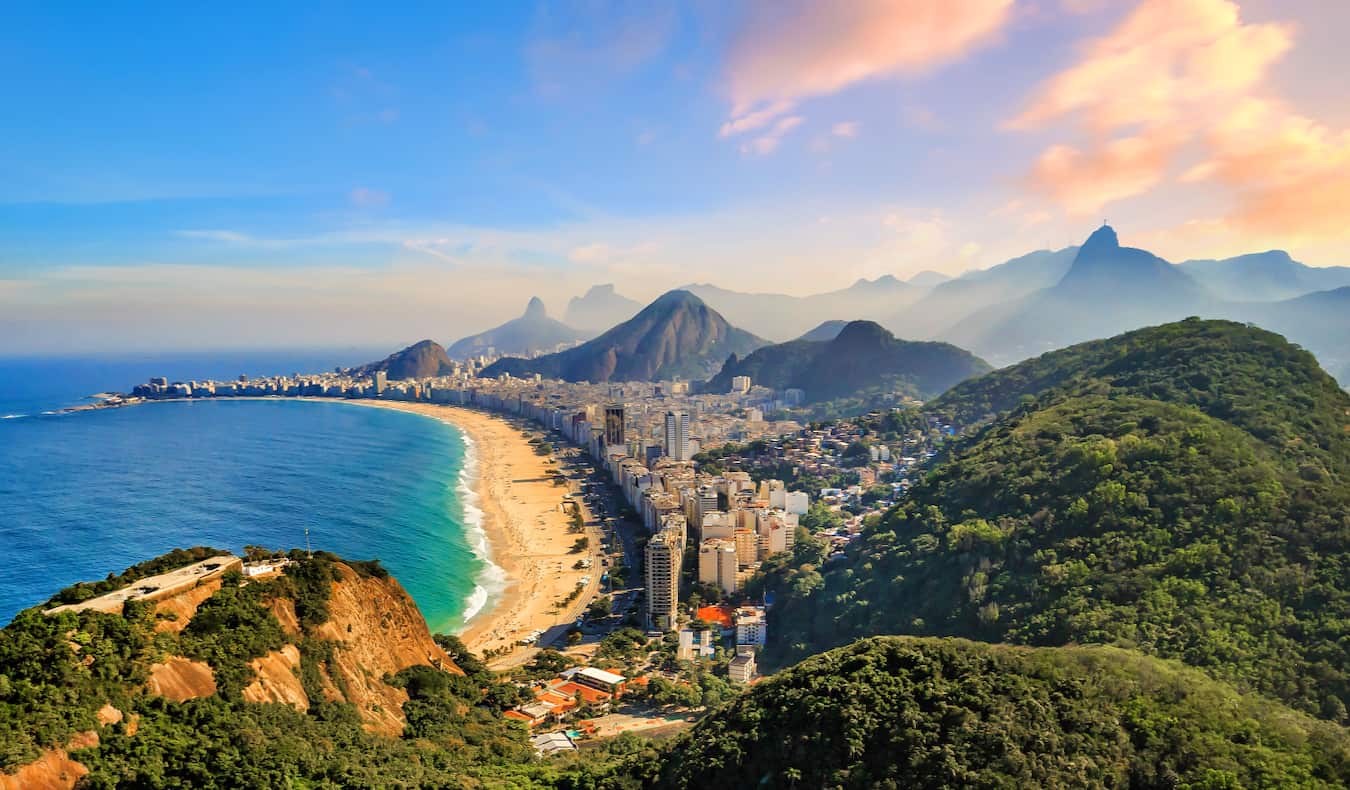
Offering pristine nature and access to the Amazon rainforest, historic cities and colonial architecture, and lots of affordable food and activities, Brazil has some something for every traveler.
But is it safe?
Brazil has a reputation for being a rough-and-tumble destination, one where travelers need to be extra cautious and on their guard at all times.
Due to one of the highest rates of income inequality in the world , the country also has some of the highest crime and homicide rates . Luckily, these rates have been declining in recent years, with Brazil’s homicide rate at its lowest in over a decade .
Still, petty theft and street crime are common in Brazil, so travelers here need to be vigilant. But that doesn’t mean you should avoid the country. You just need to be a smart traveler. Millions of people visit every year and don’t have a problem. As long as you follow the suggested safety tips below, you’ll minimize the likelihood anything bad will happen to you.
Here is everything you need to know to stay safe in Brazil and make the most out of your next trip.
Table of Contents
13 Safety Tips for Brazil
Is street food in brazil safe, can you drink the water in brazil, is brazil safe for solo travelers, is brazil safe for solo female travelers, why is rio de janeiro dangerous, is it safe to travel to rio de janeiro, what’s the safest area to stay in rio de janeiro, is carnival in brazil dangerous, is it safe to drive in brazil, are taxis in brazil safe, what part of brazil is safest.
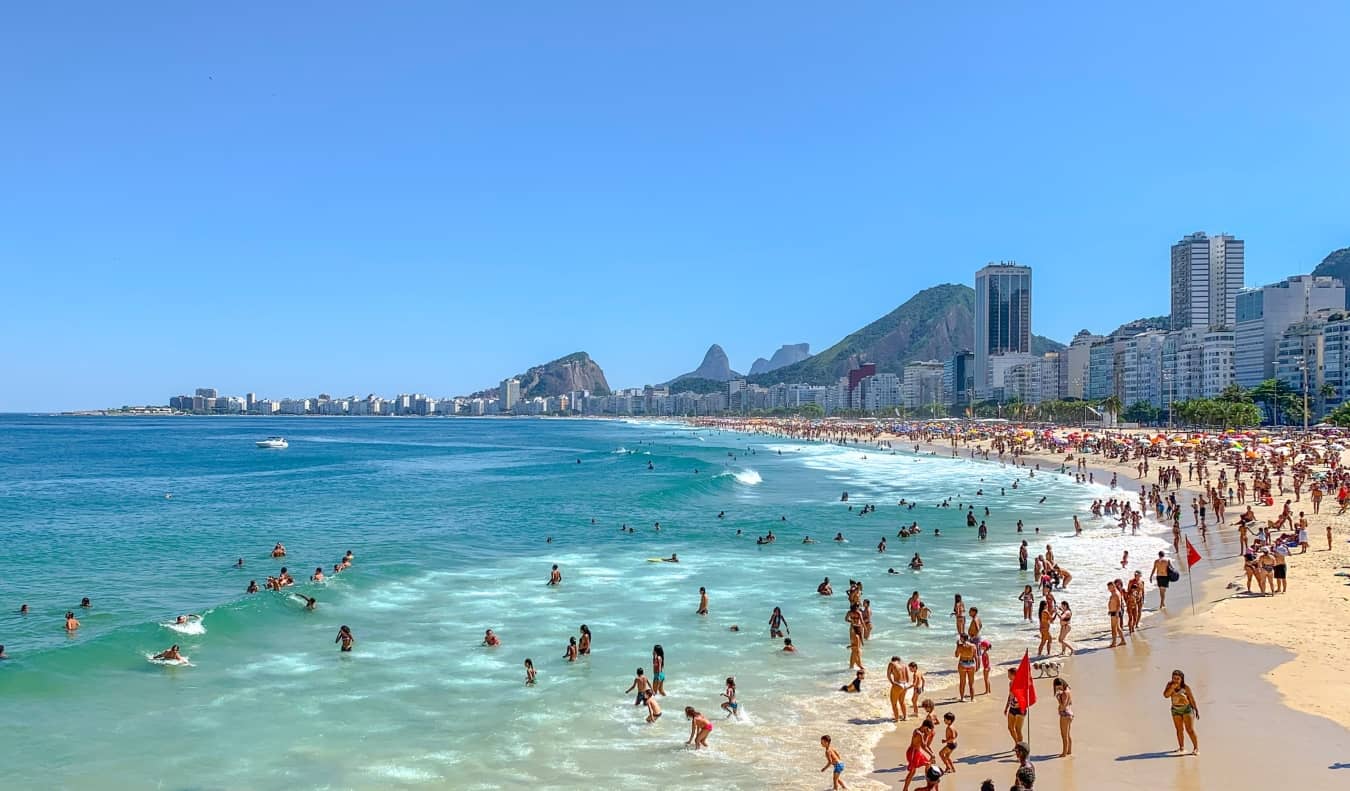
1. Walk with purpose – When out exploring, always walk with purpose. Look like you’re heading somewhere in specific, even if you’re not. Pickpockets and muggers look for travelers who are unsure of themselves. Don’t look like a target and definitely don’t walk with your cell phone in your hand. Keep it safely stowed away in a front (never back) pocket or a zippered pocket in your bag.
2. Carry a spare wallet with only a small amount of cash – Bring a spare wallet and only carry the minimum cash needed for the day in it. Keep the rest locked up back in your accommodation. That way, if you get robbed or pickpocketed they won’t get your real wallet (where you’ll keep the rest of your cash and cards).
3. Separate your cards – If you have more than one credit or debit card, keep them separate. Bring one with you for the day (if you think you’ll need it) and leave the other one locked up in your room. That way, should something happen, you always have at least one card remaining.
4. Don’t bring valuables to the beach – When you go to the beach, don’t take anything unnecessary. Towel, bathing suit, and a small amount of cash. That’s it! Anything else you bring is likely to disappear!
5. Dress to fit in – When out and about, dress to fit in. Leave any valuables or jewelry at home. Don’t walk around flashing your camera or phone (this is the biggest thing that Brazilians will warn you about again and again). If you need to use them, be discreet. Stand with your back to a wall so that no one can approach you from behind.
6. Download the Prey app to your phone and laptop – If either device gets stolen, you’ll be able to track it and remotely turn on your camera to photograph the thief (you can also wipe the data and message the thief too). The Prey app costs just $1.30/month.
7. Avoid outdoor ATMs – If you need to withdraw cash, only use ATMs inside buildings. Always be aware of your surroundings before you take out your wallet.
8. Double-check your accommodation – No matter where you are staying, be sure to check the doors and windows before leaving for the day and before settling in at night. Don’t leave anything valuable lying around your room; lock everything up in your hostel locker or hotel room safe.
9. Don’t accept free food/drinks – Never accept drinks or food from strangers. Drugging victims before they are robbed is common, so decline free food or drinks from strangers. And if you’re out drinking, always keep your eyes on your drink. Drinks can be spiked at any moment, so only hand it to someone you trust if you need to.
10. Watch out for distractions – Thieves will often try to distract you before they rob you. They often work in teams, with one person distracting you by asking questions (like for directions) and the other pickpocketing you. Be mindful of this and other common travel scam . Always stay vigilant when other people approach you and stay on your guard in crowds.
11. Don’t walk around at night alone – If you have to, avoid city beaches, parks, and empty streets. Generally, even local Brazilians don’t walk around much at night. Take an Uber or taxi (they’re super affordable) back to your accommodation if you’ve been out late.
12. Take precautions when driving – If traveling by car, always keep your doors locked. By on guard at stop signs or red lights, especially at night. Many Brazilians won’t even stop for them to avoid the risk of carjacking.
13. Buy travel insurance – I never leave home without it and you shouldn’t either. With travel insurance, you’re protected against unexpected costs that might arise should something bad happen on the road. It’s always better to be safe than sorry!
I recommend SafetyWing for travelers under 70, while Insure My Trip is the best choice for travelers over 70.
You can check out this widget to get a quote for SafetyWing:
For more information on travel insurance, check out these posts:
- What Does Travel Insurance ACTUALLY Cover?
- The Best Travel Insurance Companies
- How to Buy the Best Travel Insurance
Yep! You’ll find all sorts of amazing street food stands in cities like Rio de Janeiro as well as near the beaches and you’d be missing out if you didn’t try them! Just make sure to stick to places where there are a lot of locals gathered. That’s how you know the food is not only safe but delicious too.
I’d suggest avoiding street food with shrimp or seafood as it spoils quickly. For the most part, you’ll encounter places that sell various kinds of meat. As long as it is fully cooked and hasn’t been in the sun all day, dive in and give it a try!
The water in Brazil is generally not safe to drink. Most Brazilians caution against it and instead use filters or drinking bottled water, especially in more remote areas or regions with questionable water quality. The tap water has something of an odd taste, due to the purification process, so while it’s fine for brushing your teeth, you don’t really want to drink it when you’re thirsty.
If you’re staying in a hostel or a hotel, you may have access to a filter, though not always. It’s a good idea to bring your own as well, so you’re prepared for any situation. Lifestraw is my go-to choice for a water bottle with a built in filter. If you do buy bottled water, make sure it is properly sealed before opening and drinking it.
Brazil is safe for solo travelers, though I would only suggest solo travelers visit here if they have some experience traveling solo already. It’s not the best place for newbie travelers to test the waters.
If you are concerned as a solo traveler, try to meet-up with other travelers at hostels. Traveling together, you can keep each other company and deter any potential petty theft or robberies.
Brazil faces real issues of poverty and crime so solo female travelers will need to be on guard. This is not a destination for new travelers and I would only suggest solo female travelers visit here if they are experienced solo travelers. Even then, you’ll want to make sure you take every precaution that you can.
Check with your hostel or hotel staff to find out if you should avoid any specific areas. Also, learn as much as the local language as you can so you don’t stand out.
Rio de Janeiro gets a bad reputation due to massive favelas (shantytowns), where high rates of crime occur. Historically, these areas have been run entirely by gangs and drug dealers, though in recent years, certain favelas have started to be managed by Pacifying Police Units. Still, these areas are generally not safe for outsiders, and you shouldn’t be exploring there on your own.
Outside of the favelas though, Rio is a big city like any other, and you can enjoy traveling there as long as you exercise normal precautions.
Rio can absolutely be a safe destination for travelers, as long as you stick to the safer areas (avoid favelas) and keep your wits about you. Just like in any major city, it’s important to take precautions. Stay in well-populated and well-lit areas, avoid displaying valuable items, and be cautious at night. Stay informed about local safety concerns and follow the advice of locals and authorities.
The safest areas to stay in Rio de Janeiro are Ipanema and Copacabana. These areas are right along the city’s iconic stretch of beach and popular among tourists. You’ll find a range of accommodation options (most travelers stay here and most of the best hostels in Rio are here), restaurants, and attractions in the area. It’s perfectly safe to walk around during the day (exercising normal precautions), though like anywhere in Rio, you might want to take a taxi or Uber at night.
Going to Carnival in Brazil is a once-in-a-lifetime, bucket list experience for many travelers. But because of the big crowds and rowdy atmosphere, it’s essential to exercise caution. Pickpocketing and petty theft are rampant during this time. Thieves know that people are partying, drinking, and generally not paying much attention to their surroundings. Always stay extra vigilant and only go out with what you absolutely need. Be wary of drinking too much and if you can, always stick with a buddy. Adhere to the above tips extra closely during Carnival.
I’ll be honest, I don’t recommend renting a car here. It’s unnecessary, the traffic is terrible, the roads are poorly maintained, drivers are aggressive, and parking is expensive. While major highways are generally safe, driving in urban areas, especially during rush hour or at night, requires extra caution. Break-ins and carjackings are common.
Taxis, Ubers, long-distance buses, and domestic flights are generally so cheap in Brazil that, personally, I’d avoid renting a car unless you really need to.
Taxis in Brazil are safe and plentiful. They use meters as well, though it’s always a good idea to ask your hotel or hostel staff for an approximate fare before you head out. There are always a few bad apples that will try to rip you off, so just be sure to pay attention to the meter and make sure it isn’t rising abnormally fast.
Also, it’s always best to call your taxi in advance; you can use the 99 app (formerly 99Taxis) to hail a cab. Never flag a taxi on the street (this is especially true at night). Ubers are also plentiful and affordable across the country.
Florianópolis , Brasilia (the country’s capital), Curitiba, and Belo Horizonte are among the safest cities in Brazil, with some of the lowest crime rates in the country.
Vacation destinations like Fernanda do Noronha are also quite safe.
However, even big cities like Sao Paulo and Rio de Janeiro , which have higher crime rates, are well-traveled, and as long as you follow the tips above and stay vigilant, you can stay safe while enjoying these incredible cities.
Brazil is an amazing, vibrant country. But it’s not without its risks. Travelers here will need to be on guard and keep their wits about them. Petty theft is common and can be rampant during big events like Carnival, where the many distractions and crowds make pickpocketing easy. But if you follow the tips above you should be able to have an incredible visit while still staying safe.
Trust your gut, use common sense, and make sure you have comprehensive travel insurance . Do that, and you’ll be able to stay safe in Brazil and have a memorable visit to this energetic country.
Book Your Trip to Brazil: Logistical Tips and Tricks
Book Your Flight Use Skyscanner to find a cheap flight. They are my favorite search engine because they search websites and airlines around the globe so you always know no stone is left unturned!
Book Your Accommodation You can book your hostel with Hostelworld as they have the biggest inventory and best deals. If you want to stay somewhere other than a hostel, use Booking.com as they consistently return the cheapest rates for guesthouses and cheap hotels. My favorite places to stay are:
- Discovery Hostel (Rio)
- Geckos Hostel (Florianopolis)
Don’t Forget Travel Insurance Travel insurance will protect you against illness, injury, theft, and cancellations. It’s comprehensive protection in case anything goes wrong. I never go on a trip without it as I’ve had to use it many times in the past. My favorite companies that offer the best service and value are:
- Safety Wing (best for everyone)
- Insure My Trip (for those over 70)
- Medjet (for additional evacuation coverage)
Looking for the Best Companies to Save Money With? Check out my resource page for the best companies to use when you travel. I list all the ones I use to save money when I’m on the road. They will save you money when you travel too.
Want More Information on Brazil? Be sure to visit our robust destination guide to Brazil for even more planning tips!
Got a comment on this article? Join the conversation on Facebook , Instagram , or Twitter and share your thoughts!
Disclosure: Please note that some of the links above may be affiliate links, and at no additional cost to you, I earn a commission if you make a purchase. I recommend only products and companies I use and the income goes to keeping the site community supported and ad free.
Related Posts
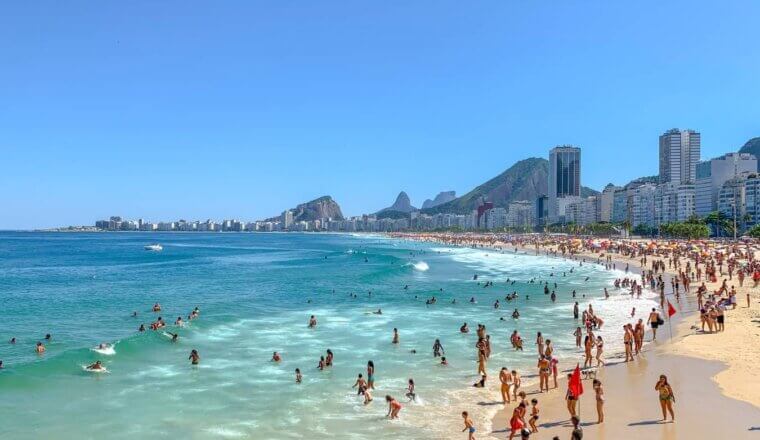
Get my best stuff sent straight to you!
Pin it on pinterest.
Cookies on GOV.UK
We use some essential cookies to make this website work.
We’d like to set additional cookies to understand how you use GOV.UK, remember your settings and improve government services.
We also use cookies set by other sites to help us deliver content from their services.
You have accepted additional cookies. You can change your cookie settings at any time.
You have rejected additional cookies. You can change your cookie settings at any time.
- Passports, travel and living abroad
- Travel abroad
- Foreign travel advice
Safety and security
This guide also has safety advice for regions of Brazil .
There is a high threat of terrorist attack globally affecting UK interests and British nationals, including from groups and individuals who view the UK and British nationals as targets. You should remain vigilant at all times.
UK Counter Terrorism Policing has information and advice on staying safe abroad and what to do in the event of a terrorist attack. Find out how to reduce your risk from terrorism while abroad .
Terrorism in Brazil
Terrorist attacks in Brazil cannot be ruled out.
Protests and civil unrest
Protests, demonstrations and strikes take place regularly in cities across Brazil, with reports of arrests and clashes between police and protesters. They can disrupt transport. Even peaceful events can sometimes turn confrontational and escalate into violence. Police have used rubber bullets and tear gas extensively to disperse protesters. The effects of tear gas can be felt several hundred metres beyond the immediate site of demonstrations.
You should:
- avoid political rallies or other events where crowds have congregated to protest
- follow local news reports
- comply with the instructions of local authorities
If you encounter a political protest or feel uncomfortable in a large gathering, leave the area immediately.
Favelas (‘slum’ or ‘shanty town’) are urban neighbourhoods of high-density informal housing. They exist in all major Brazilian cities and can border areas used by tourists and visitors.
The security situation in many favelas is unpredictable. Visiting a favela can be dangerous. Avoid all favelas, including favela tours marketed to tourists and any accommodation, restaurants or bars advertised as being within a favela.
- make sure the suggested route does not take you into a favela if you’re using GPS navigation
- avoid entering unpaved, cobbled or narrow streets which may lead into a favela - tourists have been shot after accidentally entering favelas
If you’re unsure about a location, check with your hotel or the local authorities.
Carnival and other large-scale celebrations
If you are attending a large-scale celebration in Brazil, such as the Carnival in Rio de Janeiro or other major cities, be aware that criminals target people who appear to be wealthy or easy targets, for example, those who have drunk a lot of alcohol.
Be aware of your personal security and surroundings, and be cautious about proposals from strangers that take you away from public areas.
If you’re the victim of crime, contact the local police number 190 or the nearest British embassy or consulate.
Read our guidance if you’re the victim of a crime abroad .
Pickpocketing is common. Do not go on to city beaches after dark.
If threatened, hand over your valuables without resistance. Attackers may be armed and under the influence of drugs. Do not resist attackers – this increases the risk of harm to you.
You can take steps to reduce the risk to yourself and your belongings, including:
- avoiding wearing expensive jewellery and watches
- avoiding carrying large sums of money – consider wearing a money belt
- avoiding using a mobile phone in the street
- keeping cameras out of sight when not in use
- leaving your passport and valuables in a safe place, but carry a copy of your passport and another form of photo ID, if you have one, at all times
Thefts are particularly common on public beaches and include ‘arrastões’ where large groups of thieves sometimes run through an area of the beach grabbing possessions. Keep your belongings close and avoid taking valuables to the beach.
Robberies on buses are common in many cities. Thieves target mobile phones, particularly between 4pm and 9pm.
Bank and credit card scams are common, including card cloning from ATMs and in shops. Keep sight of your card and do not use an ATM if you notice anything suspicious.
If you withdraw cash at an ATM and the cash has pink marks on it, speak to the bank (or police) straight away to get it changed. It may have been marked as damaged or counterfeit.
Sexual assault and drink spiking
Rape and other sexual offences against tourists are not common, but there have been attacks against both women and men. Some have involved date rape drugs. Buy your own drinks and keep them in sight.
If you begin to feel strange, sick or drunk after only a couple of drinks, tell a trusted friend or security staff. They should take you to a safe place, such as your hotel room or a hospital. You can phone the local police, a hospital or the nearest British embassy or consulate for advice.
Read our advice on what to do if you have been raped, sexually assaulted or drugged abroad .
Child sexual abuse
There are widespread cases of sexual abuse of children in Brazil. All sexual activity with children (persons under the age of 18) is illegal, regardless of the age of consent locally. If you commit sex offences against children abroad, you can be prosecuted in the UK.
Parental child abduction
Parental child abduction is not common but can happen in Brazil. Dial 190 to report a missing child or go to the nearest police station. Read the guidance on international parental child abduction if your child may be at risk of this.
Theft from cars is common. Keep valuables out of sight.
Carjacking can happen, particularly on major roads and in tunnels. To reduce your risk you should:
- approach your car with your keys in your hand so you can get into your car quickly
- keep doors locked and windows closed
- take particular care at traffic lights
- drive in the middle lane if possible
- avoid deserted or poorly lit areas, unless you have reliable local advice
- be cautious of people approaching to ask for information, especially at night
- If driving at night outside the city, avoid stopping at the roadside – if you must stop, try to stop in a petrol station or well-lit area
Laws and cultural differences
Illegal drugs and trafficking scams.
Drug trafficking is widespread in Brazil and the penalties are severe. The penalties for possessing drugs for personal use range from educational classes to community service.
British nationals have been targeted through email scams where fraudsters offer a financial reward for travelling to Brazil, where they are then asked to carry items out of Brazil, including to the UK. These items are often illegal drugs. Anyone caught will face detention for drug trafficking, regardless of the circumstances.
LGBT+ travellers
There is no legislation against homosexuality in Brazil. Same-sex marriage is legal and LGBT+ couples have equal rights in law.
São Paulo holds the world’s largest Pride celebration, which is usually very peaceful. Violence at the event is rare. Pride in Rio de Janeiro and other cities also attracts large numbers.
Brazil is generally tolerant. However, Brazilian society is quite conservative, particularly outside the larger towns and cities. Violence against LGBT+ people is a concern. Instances of discrimination, violence and harassment against the community have been reported. Factors contributing to these concerns include societal attitudes, cultural influences and the presence of conservative perspectives. Urban areas can be more accepting.
Read more advice for LGBT+ travellers .
Outdoor activities and adventure tourism
Swimming safety.
Strong currents can be a danger off some beaches. Get local advice before going in the water. Pay attention to warning flags and the location of lifeguards if present on the beach.
Shark attacks are a danger, particularly on the beaches around Recife in north-east Brazil. Pay attention to warning signs and consult lifeguards if unsure. Do not enter the water if there are warning signs. Sharks have been known to attack in waist-deep water and deaths have occurred.
See water safety on holiday from the Royal Life Saving Society.
Transport risks
Road travel.
You can use a UK photocard driving licence to drive in Brazil. If you still have a paper driving licence, you may need to update it to a photocard licence or get the 1968 version of the international driving permit ( IDP ) as well. An IDP is recommended. After 180 days, you need to apply for a Brazilian driving licence.
Driving standards
Brazil has a high road accident rate. Driving standards are poor. Take care on the roads and avoid riding bicycles. In many rural areas, roads are in poor condition away from the main highways. Bus and coach crashes are frequent.
Immediately report all accidents involving personal injury to the police: call 190 or file a report at a police station. Also call the police if the vehicles are obstructing traffic and you need help.
You can report an accident:
- at the nearest police station
- to the tourist police (DEAT)
Drink-driving
Drink-driving is a serious offence in Brazil and checkpoints are often set up. If you’re caught driving under the influence of alcohol, you will be prosecuted. Penalties range from fines and a suspension from driving for 12 months, to up to 3 years in prison.
Allow plenty of time to arrive at the airport for your flight. Traffic in the main cities, especially São Paulo and Rio de Janeiro, can be very heavy.
If you have been a victim of a passport theft and you need to fly to Brasilia, São Paulo or Rio de Janeiro for consular services, you can travel on domestic flights with a valid photo ID or a police report.
Check whether your tour operator has concerns about airlines in Brazil.
There have been armed and unarmed attacks on merchant vessels, including British flag vessels off the Brazilian coast and in some Brazilian ports.
Rail travel
There is a limited railway infrastructure in Brazil, and there have been safety incidents on the rail network.
Extreme weather and natural disasters
Heavy rainfall .
The rainy season runs from November until March in the south and south-east (including Rio de Janeiro – see Regional risks ) and from April until July in the north-east of Brazil. However heavy rainfall and flooding can also occur outside of the designated rainy seasons, in any region of the country.
Heavy rains often disrupt infrastructure, particularly in rural areas. Flash floods and landslides, especially in poorer urban areas, are common during heavy rains. Monitor local media and follow any instructions given by the local authorities.
Forest fires
Forest fires are common from May to September, especially during July and August due to the arrival of dry season. They are highly dangerous and unpredictable. Check the latest alerts and weather forecast (in Portuguese) and follow advice of local authorities if you’re considering travelling to affected areas.
Related content
Is this page useful.
- Yes this page is useful
- No this page is not useful
Help us improve GOV.UK
Don’t include personal or financial information like your National Insurance number or credit card details.
To help us improve GOV.UK, we’d like to know more about your visit today. Please fill in this survey (opens in a new tab) .
- Meet the Team
- Work with Us
- Czech Republic
- Netherlands
- Switzerland
- Scandinavia
- Philippines
- South Korea
- New Zealand
- South Africa
- Budget Travel
- Work & Travel
- The Broke Backpacker Manifesto
- Travel Resources
- How to Travel on $10/day
Home » South America » Travel Safety
Is Brazil Safe for Travel? (Insider Tips)
Brazil is a pretty famous destination. With everything from the famed Carnival destination of Rio de Janeiro , a world wonder, the Amazon Rainforest, and a whole lot of culture and history, it is awesome.
That said, Brazil isn’t always safe. Crime in Brazil is a big deal. This country is just as famous for injustice, poverty, and favelas (slums) as it is for everything else. Violence, petty theft, dodgy Uber drivers, kidnappings are not rare.
You have every right to be sitting there wondering, “Ok, so is Brazil even safe to visit then?”
We want to help answer that question by providing a comprehensive guide to staying safe in Brazil. We have no issue with visiting destinations that may feel ‘unsafe;’ this just means that you need to travel smart.
This includes using your common sense when you’re walking around cities as much as it includes understanding the local culture of a country. You may be worried about being a victim of crime in Brazil, and we are here to help you avoid that with a ton of safety tips.
No matter what kind of traveller you are, we’ve got you covered with our Amazon-sized guide to Brazil safety.

Unlock Our GREATEST Travel Secrets!
Sign up for our newsletter and get the best travel tips delivered right to your inbox.
How Safe is Brazil? (Our take)
Is brazil safe to visit (the facts.), safest places in brazil, 23 top safety tips for traveling to brazil, is brazil safe to travel alone, is brazil safe for solo female travelers, more on safety in brazil , faqs on brazil’s safety, so, is brazil safe.
Brazil is perfect for backpacking and one of the coolest destinations in South America. The cities are famous for beaches, partying and vibrant culture, but Brazil is also home to the largest portion of the Amazon Rainforest. Biodiversity, anyone?
Brazil isn’t what we’d call ‘safe’ though. Not really anyway.
There’s a lot of danger out there, people. Brazil has everything from untamed wilderness to a high crime rate. This means traveling to Brazil requires an extra bit of know-how.
Cities see a high level of crime, which means thefts, muggings, and clashes between gangs and police. You’ll have to be especially vigilant during big festivals like Carnival, and around the favelas. The latter is essentially a shanty-town and can be very dangerous places.
Brazil is not always safe in terms of the weather either. During heavy rains, flooding and landslides can occur and can actually cause a lot of deaths.
Whilst not exactly the safest country in the world, we would still say that Brazil is safe to visit.
There is no such thing as a perfect safety guide, and this article is no different. The question of “Is Brazil Safe?” will ALWAYS have a different answer depending on the parties involved. But this article is written for savvy travellers from the perspective of savvy travellers.
The information present in this safety guide was accurate at the time of writing, however, the world is a changeable place, now more than ever. Between the pandemic, ever-worsening cultural division, and a click-hungry media, it can be hard to maintain what is truth and what is sensationalism.
Here, you will find safety knowledge and advice for travelling Brazil. It won’t be down to the wire cutting edge info on the most current events, but it is layered in the expertise of veteran travellers. If you use our guide, do your own research, and practise common sense, you will have a safe trip to Brazil.
If you see any outdated information in this guide, we would really appreciate it if you could reach out in the comments below. We strive to provide the most relevant travel information on the web and always appreciate input from our readers (nicely, please!). Otherwise, thanks for your ear and stay safe!
It’s a wild world out there. But it’s pretty damn special too. 🙂
Tourism in Brazil is growing each year and is a key part of the Brazilian economy. It’s one of the major South American destinations , and only second in Latin America after Mexico. Pretty popular.
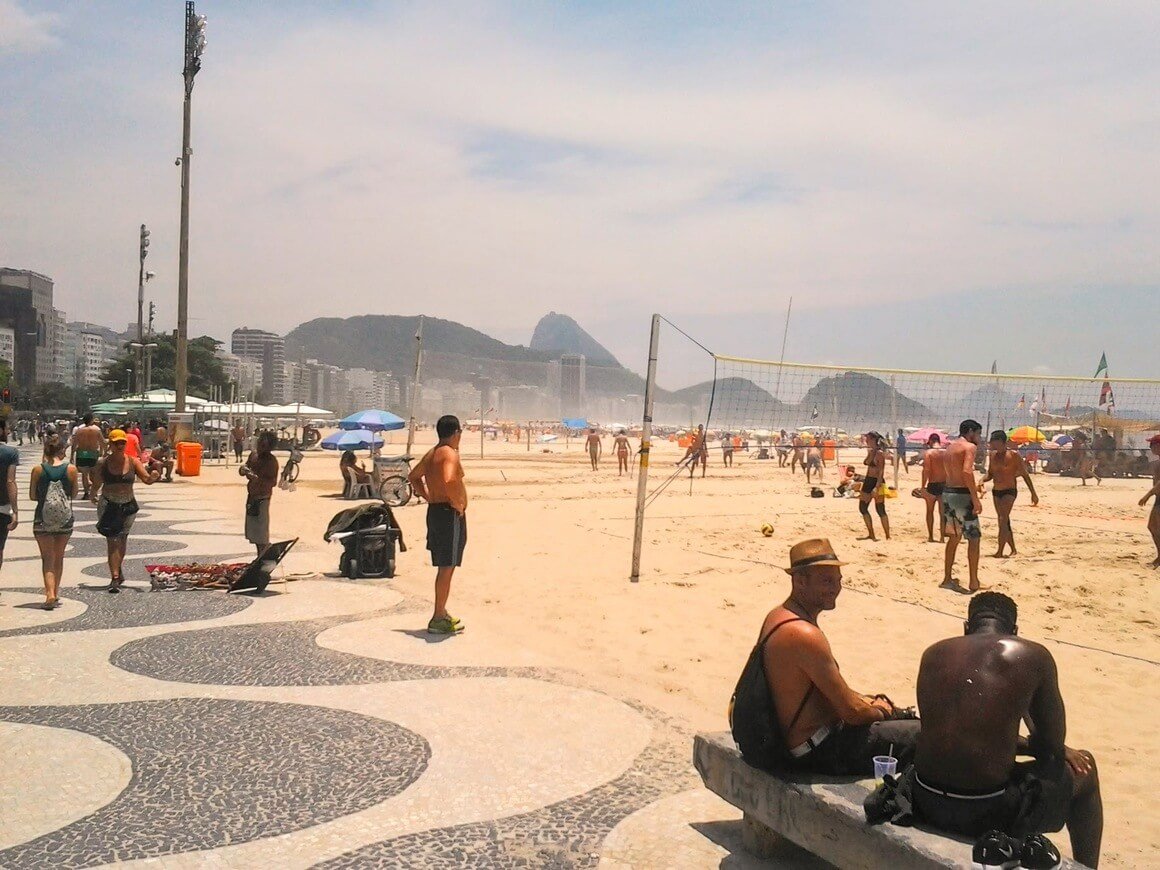
The Broke Backpacker is supported by you . Clicking through our links may earn us a small affiliate commission, and that's what allows us to keep producing free content 🙂 Learn more .
The thing with Brazil though is that there is a high rate of violent crime. We mean robberies and murders. Brazil is also an importer of cocaine and is part of an international drug trafficking route, so there are lots of gangs – and poverty – relating to that.
On the 2020 Global Peace Index, Brazil ranked 126th on a list of 163 countries. So in terms of general peace, safety, security, it’s not so hot.
There’s also a rise in unrest along the border with Venezuela over immigration. The Venezuelan authorities have closed the border since February 2019, which means any continuing immigration is illegal. Caution is advised traveling anywhere near this area.
On top of that, some favelas can be super dangerous. Volatile ones can have high levels of crime and the security situation can change from relatively safe to completely not without warning. Shootouts between police and gangs are regular and unpredictable.
All that being said, it’s still possible to visit Brazil safely just so long as you know what you’re doing. Being vigilant traveling smart, and avoiding certain perilous activities will help to ensure a great trip. All in all, we’d say that Brazil is safe to visit right now – with the proper preparations and research obviously .
When choosing where you’ll be staying in Brazil, a bit of research and caution is essential. You don’t want to end up in a sketchy area and ruin your trip. To help you out, we’ve listed the safest areas to visit in Brazil below.
Florianópolis
The capital of Santa Catarina is Florianópolis, and it may be the closest thing to perfection. Florianopolis, or Floripa, is located on a large island connected to the mainland by a single bridge. Life in Floripa is very easy. The beaches are pristine, the pace is relaxed, and amusements are everywhere. Floripa can be more resort than a city sometimes, but no one really cares or notices.
The far south of Floripa is totally undeveloped. You can find beaches that are literally abandoned because they require a hike to get to. Lagoinha do Leste is the best example of this phenomenon.
If there is one word to describe São Paulo, or Sampa, it’s “sprawl.” São Paulo is big. I mean really f*cking big.
There are nearly 20 million people living in the metropolitan area and staying safe in Sao Paulo is reasonably easy. You could walk around the city for weeks and come nowhere near seeing all of it. If you find your niche though, it can be hugely fun.
Due to its gross proportions, São Paulo is one of the most energetic and lively cities in the world. The art is unparalleled, the nightlife is never-ending, and action is constant. Luckily, the best parts of São Paulo are located in the central and western districts.
The Pantanal is actually considered the biggest freshwater ecosystem in the world. The chances of seeing animals are huge here; reportedly even better than the Amazon actually. Local wildlife include capybaras, giant anteaters, rheas, jaguars, and lots more!
Given its size, there are several ways to access the Pantanal. The best entryways are via Campo Grande and Bonito in the southern state Mato Grosso do Sul. Campo Grande is a large, modern city while Bonito is an eco-tourist destination that offers plenty of outdoor activities.
Places to avoid in Brazil
In order to have a safe visit, it’s important to know the areas in Brazil that aren’t super safe. Keep in mind that Brazil is quite a famous tourist destination, so wherever you are, you will have to watch out for pickpocketing and petty theft.
- Porto Alegre – located in the state of Rio Grande do Sul, it’s one of the most dangerous cities in the world due to lots of gang violence and drug wars.
- Salvador – Similar to Porto Alegre, Salvador has a very high crime rate as well. Even locals tend to avoid this city as much as possible.
- Favelas – These are the poorest areas in Brazil. You’ll find most crimes in these areas. While tourists normally don’t end up there, it’s still a good idea to actively stay away
- Anywhere at night – It doesn’t matter where you are in Brazil, it’s always a bad idea to head out at night. Most sketchy characters come out after dark, and you definitely don’t want to meet them. If possible, stay inside or stick with a large group when going on a night out.
It’s important to know that all of the places we’ve just listed CAN be visited , but you’ll require a local guide and do a lot of research beforehand. Some parts of these cities might be safe, but you simply can’t ignore the high crime rates. While tourists do explore these areas, we’d recommend avoiding them completely if you want a really safe trip.
Brazil Travel Insurance
ALWAYS sort out your backpacker insurance before your trip. There’s plenty to choose from in that department, but a good place to start is Safety Wing .
They offer month-to-month payments, no lock-in contracts, and require absolutely no itineraries: that’s the exact kind of insurance long-term travellers and digital nomads need.

SafetyWing is cheap, easy, and admin-free: just sign up lickety-split so you can get back to it!
Click the button below to learn more about SafetyWing’s setup or read our insider review for the full tasty scoop.
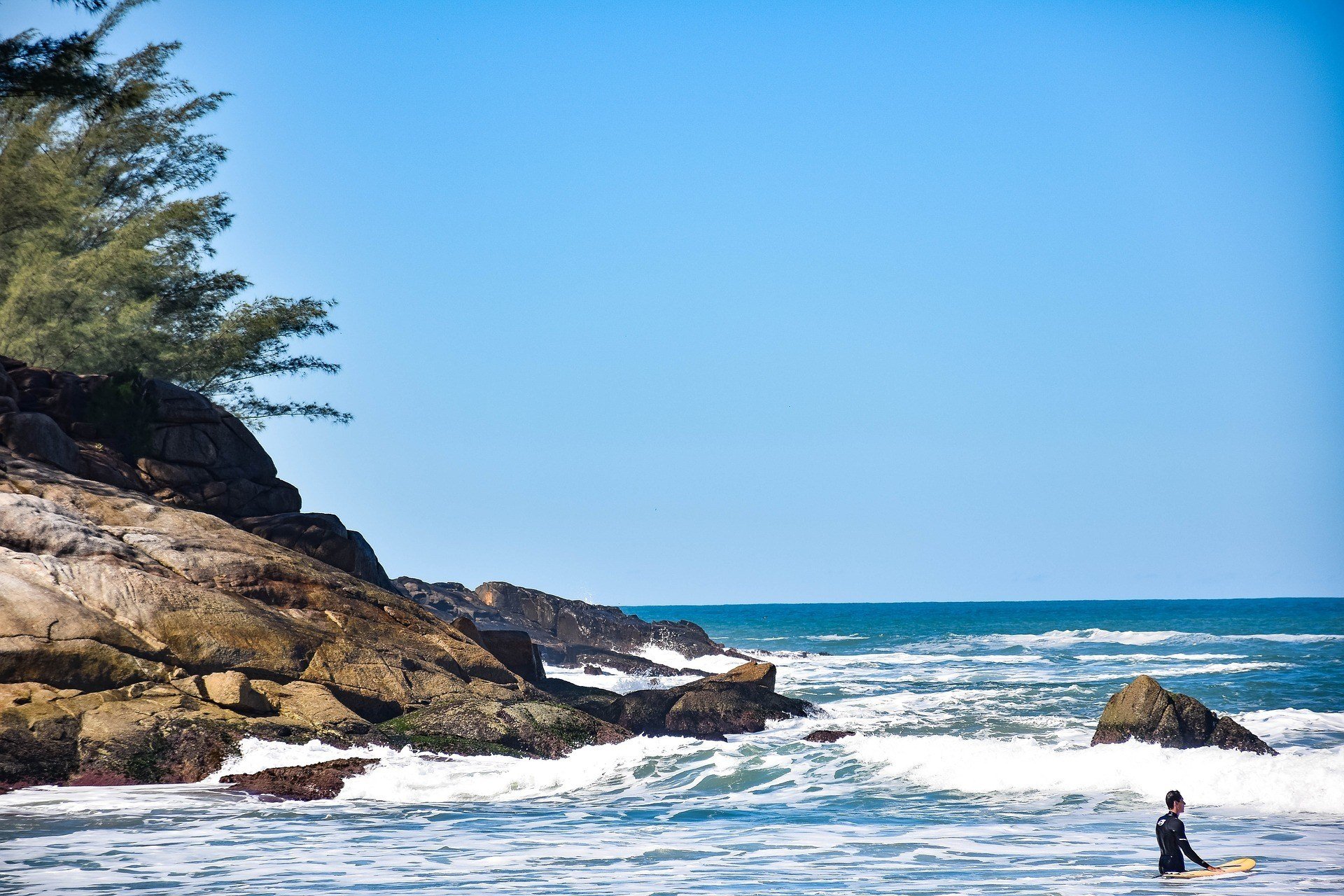
Naturally, you are going to be worried about visiting Brazil. A high crime rate coupled with an unstable political situation and dangerous nature means there’s a lot to think about.
But to help you stay as SAFE as possible on your Brazilian travels, we have compiled a list of our top safety tips for traveling to Brazil.
- Be careful of your surroundings – pickpocketing is common, especially in cities. Minimize risk with a security belt .
- Don’t look rich – flashy jewelry, watches, SLRs, designer handbags, clothing, etc. All of this just advertises you as a target.
- Don’t use your smartphone walking around the street – it could easily get snatched
- Don’t take a tour around a favela – 1) they’re not zoos, 2) the security situation within them is often unstable.
- But know that some favelas are actually pacified – favelas can be peaceful but their safety status is often constantly changing.
- Careful using Google Maps in cities – ‘quickest routes’ can go through favelas. People have actually come to harm by accidentally stumbling into a favela this way. Stick to the main streets – ALWAYS.
- Familiarize yourself with the area – maybe your hostel has a walking tour, maybe you end up looking things up on your maps, but before you head out you should know a little bit about the lay of the land. It pays to look confident.
- Hand over the goods – muggers could be very high and very armed. If someone demands your stuff, best give it.
- Stay away from drugs – trafficking is WIDESPREAD. There are often checkpoints outside nightclubs. Severe penalties, people.
- Don’t leave your bags or anything else on a table/chair at a cafe – they’re likely to go missing.
- Be aware of distraction techniques – even asking for a cigarette can be a way to get you to let your guard down. BEWARE!
- Be VERY careful of your possessions on beaches – some people will just snatch your stuff and leg it.
- And don’t go to beaches at night – it’s basically a good way to get robbed or assaulted.
- Careful when using an ATM – keep your card in sight . Best to head to one in an official place, i.e. a mall, inside a bank.
- Don’t use the ATM if it looks tampered with – or if there are dodgy looking people around.
- Steer clear of demonstrations – these can turn violent. Avenida Paulista, Largo da Batata, Historic Downtown ( Sao Paulo ), Copacabana Beach ( Rio de Janeiro ) and Esplanada dos Minesterios ( Brasilia ) are known for confrontational protests.
- Learn some Portuguese – it will definitely help you get around, read menus, communicate with locals, etc.
- Protect against mosquitoes – cover up and use a DEET-based repellent; dengue fever, yellow fever and zika virus are on the rise.
- Watch out for warning flags on beaches – there are often strong currents, so be VERY careful going out too deep.
- Shark attacks happen in Recife – so don’t go into the water when there are warning signs. People have died.
- Keep an eye on the news – heavy rains lead to flash floods and landslides, not only in the countryside but in poor urban areas too.
- Be aware of rainy season – in the northeast, it’s from April to July; in the south, it runs from November till March.
- Do research on companies if you’re heading out into the rainforest – it’s a dangerous place, so only the best company will do.
There are issues with crime in Brazil – as well as natural disasters to be worried about. But if you follow our tips, keep your belongings close to you, and don’t do anything silly (like walking through sketchy areas of cities early in the morning or late at night), you should be fine.
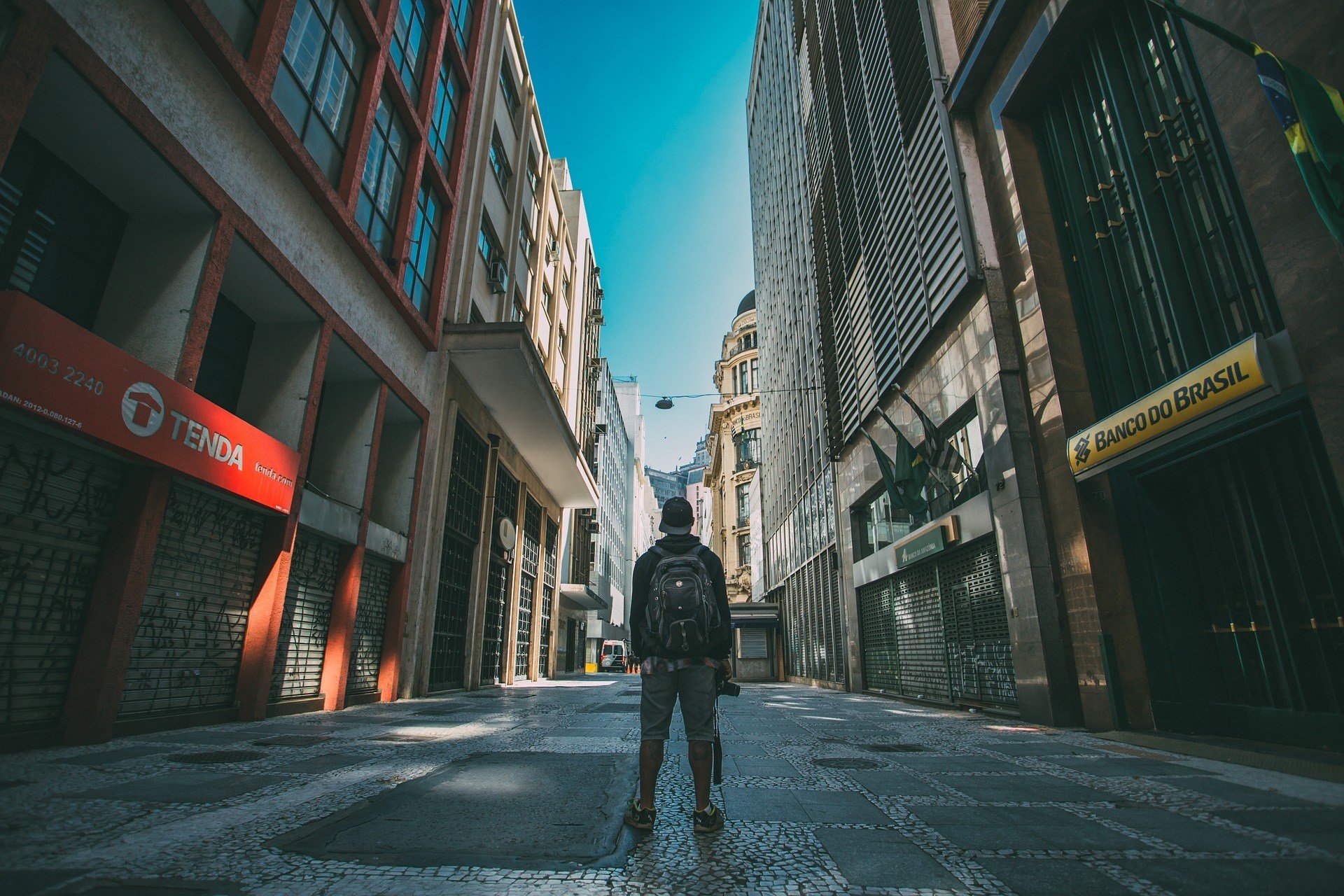
When it comes to solo travel, we’re all about it. There are SO many benefits to traveling the world by yourself. You get to challenge yourself, get to do what you want, when you want ; you may learn a thing or two about yourself and grow as a person!
But there are downsides. Aside from getting lonely and bored, you’ll be more of a target by yourself.
Don’t worry though; there are plenty of other solo travelers doing what you’re doing in Brazil. And we’re here to help, too, with some solo travel tips to make it a breeze.
- It’s easy to make friends with Brazilian people. Even if you don’t speak Portuguese, you’ll be able to have at least some sort of chat with a local. They’ll be warm and open, so don’t be shy: strike up a conversation and learn more about this cool country.
- Book yourself into a social hostel. Make sure you do research, read reviews, and stay in a place that’s perfect for you. It’s a good way to get chatting to other travelers, maybe even make a travel buddy, and help to beat the solo travel blues.
- Take a free walking tour if your hostel offers one (they probably will). This is a good way to get acquainted with the city you’re in, learn more about the area and Brazil as a whole, and even make friends.
- Ask the staff at your hostel about the safety of the area. They’re likely going to be locals, or know A LOT more about the local area than you.
- Travel as light as possible . Carrying too many things around is a) uncomfortable and b) will mean there is just more for you to keep tabs on. Keep everything in one bag – and not too heavy either.
- Don’t walk around yourself at nighttime around sketchy areas. This is just ASKING for trouble. You are going to be so much more of a target if you walk around by yourself anyway, regardless of it being a dark and deserted area.
- We’d recommend not taking anything unnecessary to the beach if you’re going by yourself. It’s easy for things to go missing/get stolen.
- Keep in touch with people. If you don’t have one, get yourself a data sim. Keeping in touch with people is a good way to keep you grounded as you travel around, making sure you don’t get jaded with what you’re doing.
Though it’s a pretty dangerous country in some respects, traveling solo around Brazil is doable; and awesome! The cities here are amazing and full of life, the beachside destinations are incredible, the food is immense, the nature is breathtaking, and there’s a chance you’ll have it all to yourself.
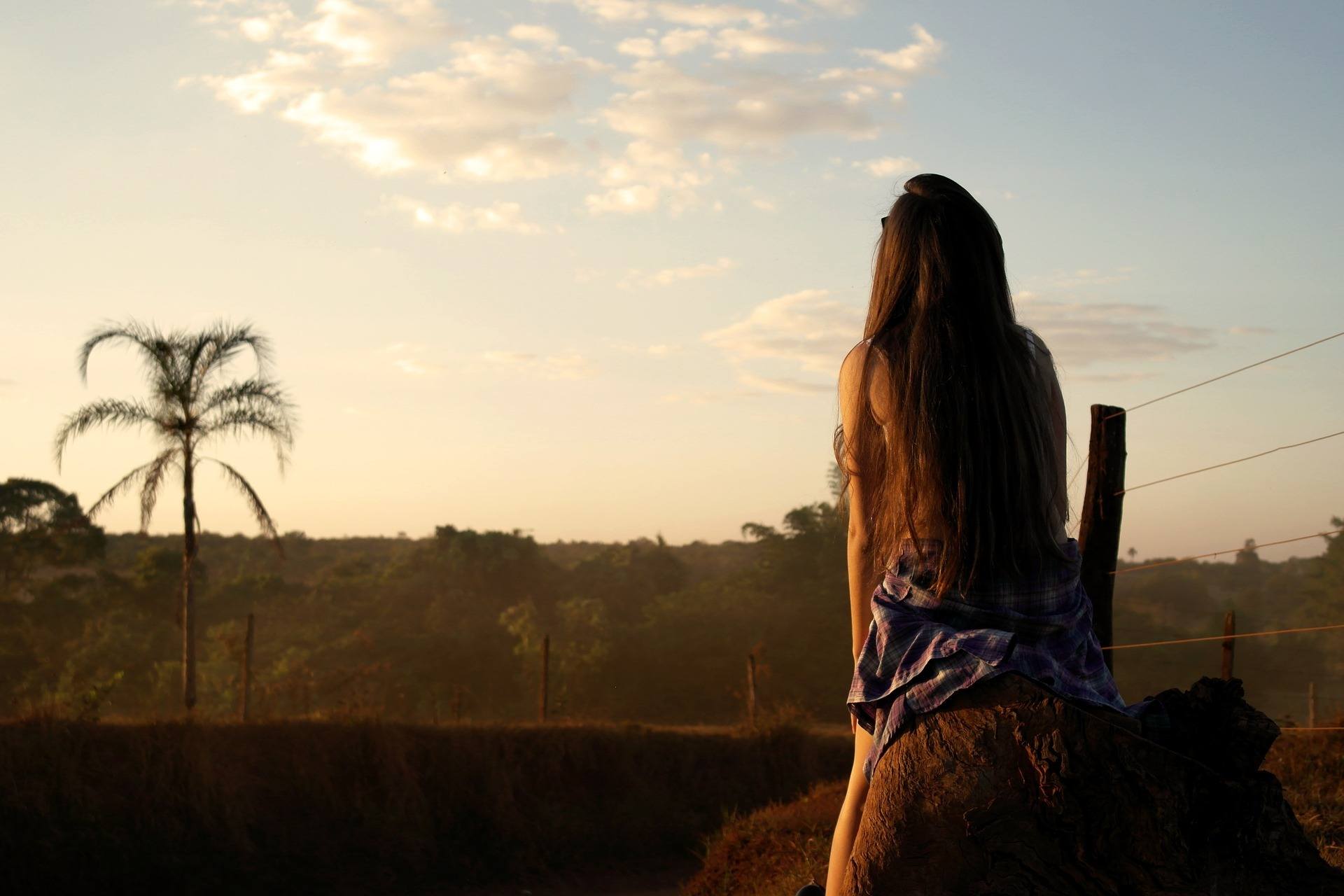
Like many other countries, it’s no surprise that Brazil isn’t the best place for solo female travelers. The crime rates aren’t low, for one thing. Depending on where you go, you’ll have a different experience. Big cities are more liberal, traditional areas… not so much.
Most of Brazil is safe for a woman traveling by herself – especially if you stick to the well-trodden routes. But just like anywhere else in the world, there will be extra safety precautions you should take as a solo female traveler. So here are some tips to help keep you secure.
- In some places, mainly in northeastern rural areas , there may be more curiosity about you being a solo female traveler. Being aware of the varying ethnic and cultural landscape of the country will definitely help you in your travels.
- You should NOT be hitchhiking by yourself in Brazil. We wouldn’t feel safe recommending anyone use this means of getting around here. In Brazil, this really isn’t a safe thing to do and can end up very badly.
- There are areas in the north and west of the country that seems to be dominated by men. If you were planning to go to these regions of Brazil, try not to go by yourself and instead find someone else to buddy up with.
- It’s not a good idea to go to bars and clubs by yourself in cities. Try to find some people to buddy up with if you want to head out to bars and clubs. You may receive hassle/unwanted attention whilst out; show disinterest, or that you’re not happy with it and it’s likely to stop.
- So in order to get yourself some friends, stay at a well-reviewed hostel. Make sure there are favorable reviews from other solo female travelers. This will help you find the most secure place possible.
- When you’re out, keep an eye on your drink and don’t accept drinks from strangers. Drink spiking is a reality. Also, drinking too much isn’t a smart move either.
- In places like Copacabana and Ipanema, you’re going to be able to wear whatever the heck you want. Everyone else does (men included – those speedos!). Other places aren’t so liberal. A good rule of thumb is to look at how other women are dressed to gauge appropriate ways to dress.
- Use Uber to get around at night. This is just the safest way to get around after dark in Brazil. Walking around by yourself at night, not so much.
- If you’re feeling overwhelmed, get yourself on a tour . This is a good way to see the country safely. It’s not a cop-out by any means.
Though it may not seem like a safe place to travel, plenty of solo female travellers do make their way to Brazil and have an awesome time.
You’ll just have to travel smart. In Brazil particularly, this means you won’t really be able to do a lot of stuff outside of the big cities by yourself. Jump on a tour, but make sure you research and find the best company for you. This is probably the safest way.
We’ve covered the main safety concerns already, but there are a few more things to know. Read on for more detailed information on how to have a safe trip to Brazil.
Is Brazil safe to travel for families?
Well, Brazil can be a bit of a challenge, to say the least.
We’re not going to lie though – it is an awesome destination. It’s definitely going to be an experience for you and your family.
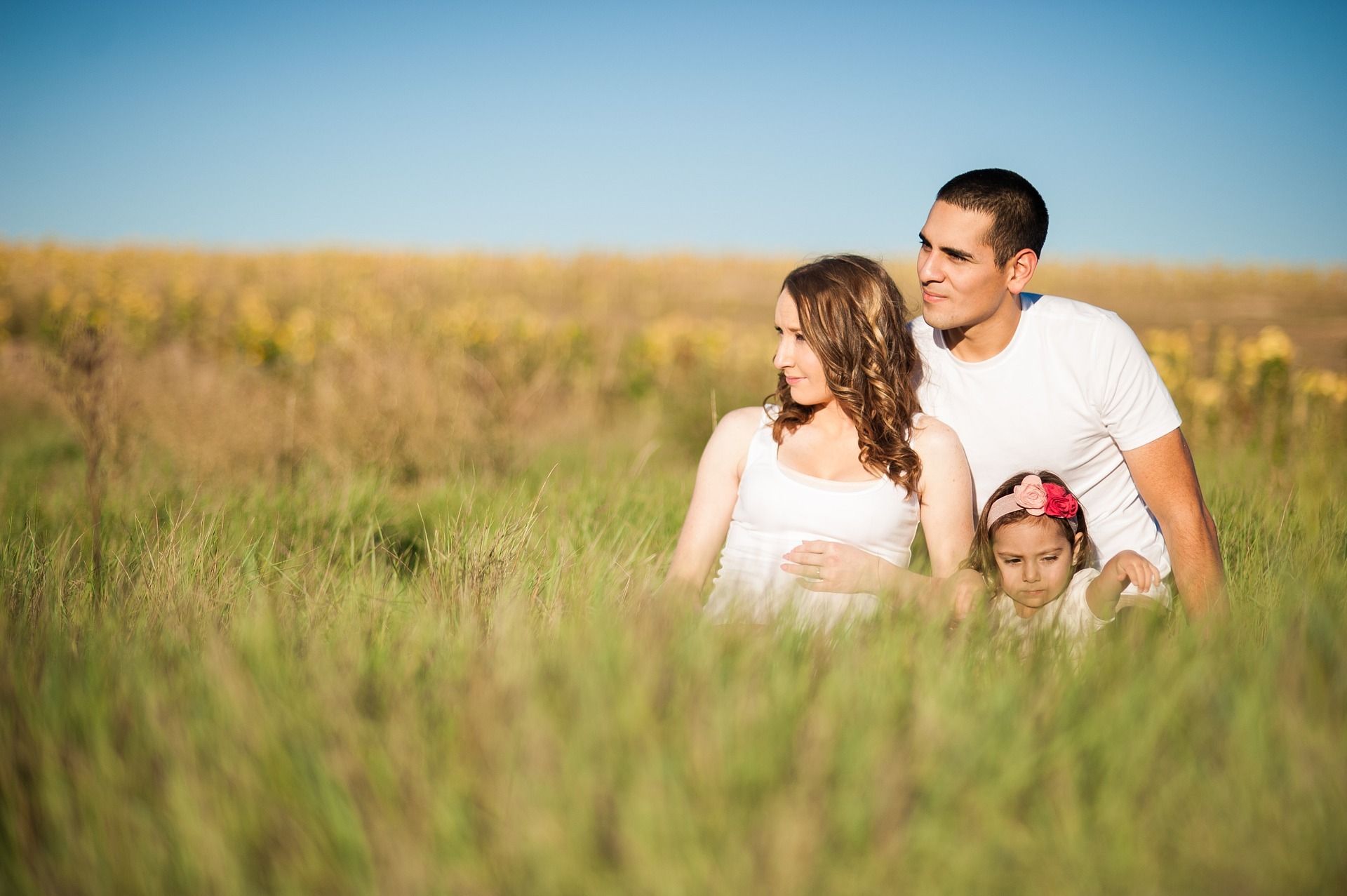
There IS a family-friendly atmosphere in Brazil and it’s a family-based society. Whilst there are things to do in Brazil with families, you will have to plan to ensure things run smoothly.
- Basics: you’ll want insect repellent (complete with DEET), anti-malarial medication, sunscreen, and clothes that will cover your children up against critters and the sun. Dengue fever and malaria are both present, but mostly in the rainy season from November to March.
- It’s crucial to make sure your kids are eating clean food and keeping hydrated when in Brazil. Small children are more at risk from things like food poisoning.
- Public transport can also bring up issues when traveling with children. Nightmare journeys on hot, sweaty buses versus forking out a lot of money for flights around the country.
- It can be handy to travel around Brazil by car, but you’ll need your own car seats. This can be a lot of hassle, especially for short family trips.
Though challenging , Brazil is safe to travel for families. It’s best to go between November and January, it’s not as hot and crowded as other times in the year. You really will have to plan though.
Is it safe to drive in Brazil?
Driving in Brazil is doable, but it can be a headache – especially in cities.
However, if you’re the kind of person who likes to travel at your own pace, traveling by car in Brazil will be a rewarding experience. It definitely comes with a few risks though.
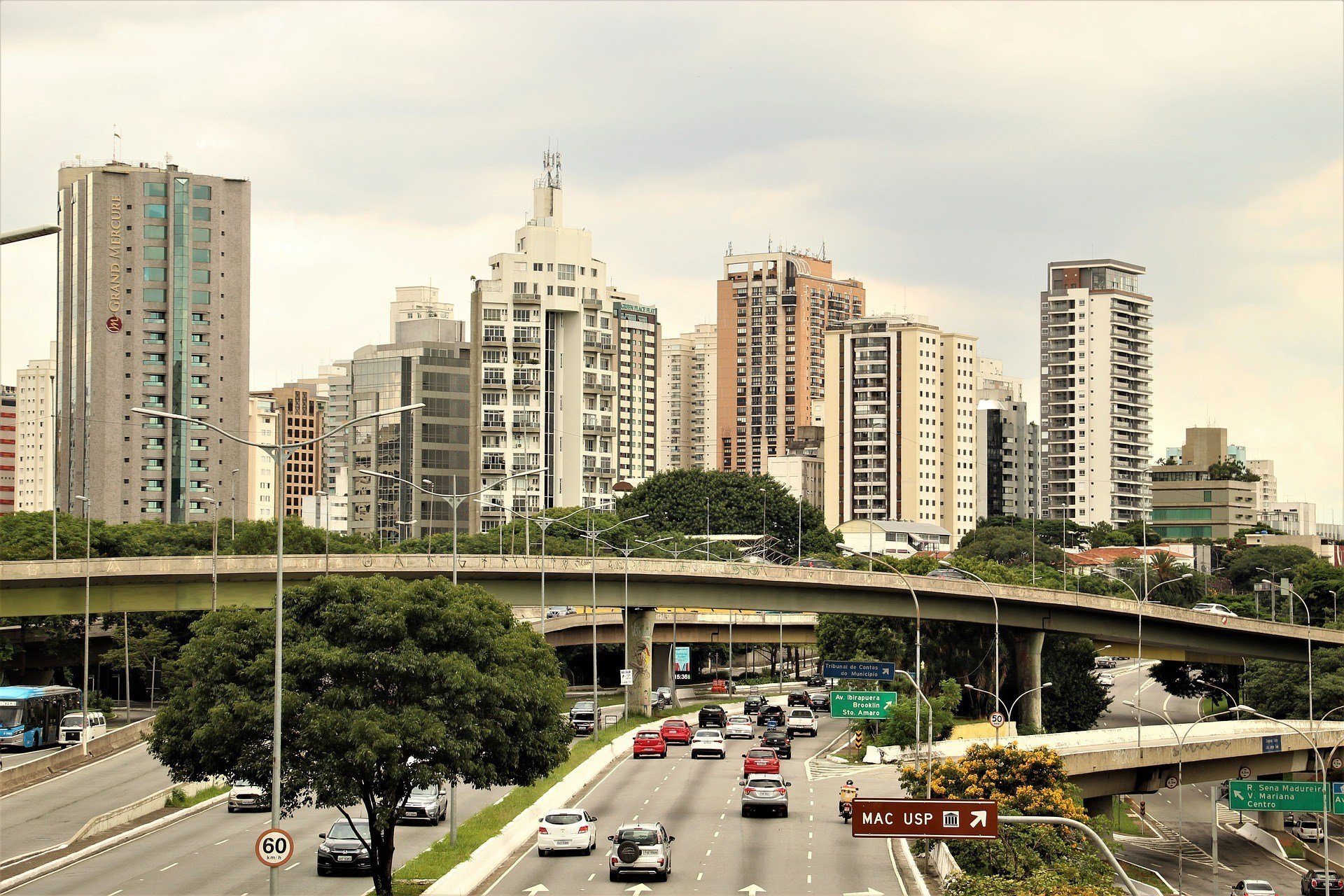
- In cities and on busy roads, carjacking is an issue. It’s important to keep your doors LOCKED and your windows CLOSED when driving – especially at traffic lights.
- Brazilians can be quite passionate drivers. That means driving aggressively, not paying attention to road signs or one-way streets.
- Another issue is poor signage. Broken-down cars also just get left in the road.
- Oh, and torrential rain during the rainy season isn’t exactly fun – it can be dangerous sometimes.
- As you may have guessed, Brazil actually has quite a high proportion of road accidents; thousands of people are killed on the road each year. This indicates bad driving and road standards. To drive in Brazil, it’d REALLY help to be a confident driver.
- Driving at night can be deadly. Although there’s a zero-tolerance policy on drunk driving, nighttime drivers are often a little worse for wear.
- High-trafficked roads such as the highway between Rio and Sao Paulo are particularly hazardous.
So, no. Brazil isn’t the safest country to drive in. But if you really want to see the country at your own pace, driving yourself can be so much more convenient than public transport in Brazil.
Is Uber safe in Brazil?
Like in MANY countries, Uber has had some turbulent times in Brazil.
The relationship between Uber and Brazil has been a bit of a rollercoaster.
It arrived in 2014, BUT some rides ended up in kidnapping, robbery, and even murder. There have been some pretty nasty experiences of people using Uber in Brazil, and a whole string of complaints from Brazilian users.
However, Uber has responded by investing $ 70 million into a Sao Paulo office that supports Uber’s efforts in Brazil.
For the most part, Uber is safe to use in Brazil, but you shouldn’t feel a false sense of security just because you’re using Uber.
To avoid trouble, only accept rides from drivers with lots of positive reviews . There will be tons of options to pick from, so don’t be afraid to cancel if you don’t feel good about a driver’s record (or lack thereof).
Uber is available in 40 Brazilian cities.
Are taxis safe in Brazil?
It pretty much goes without saying, but getting a licensed taxi in Brazil is A MUST.
You’ll see them at licensed taxi ranks around all of Brazil’s cities. They come in a load of shapes, sizes, and colors. Make sure you check the company details on the side of the car.
Another way to get a licensed taxi in Brazil is by using a taxi app. These work like Uber, obviously. But hail it when you’re inside a building so you’re not hanging around on the street with your phone out.
One popular taxi app is 99Taxis . Very convenient.
Outside of the big cities, the taxis won’t have meters. This means having to negotiate a price. Do this before you get in, always.
Generally, taxis are pretty safe in Brazil. Safer than Uber even. They’re cheap, they’re reliable, and a good way to get home at night.
Is public transportation in Brazil safe?
Public transport in Brazil is FAIRLY safe… depending on where you are and what type of public transport it is.
The city buses are pretty reliable. In any city, these will run frequently. For most Brazilians, this is what they use.
On these local buses, crime can be an issue. In urban areas, robberies occur more between 4 and 9pm. The evening rush hour(s) basically.
In Rio de Janeiro and Sao Paulo, you can use the metro!
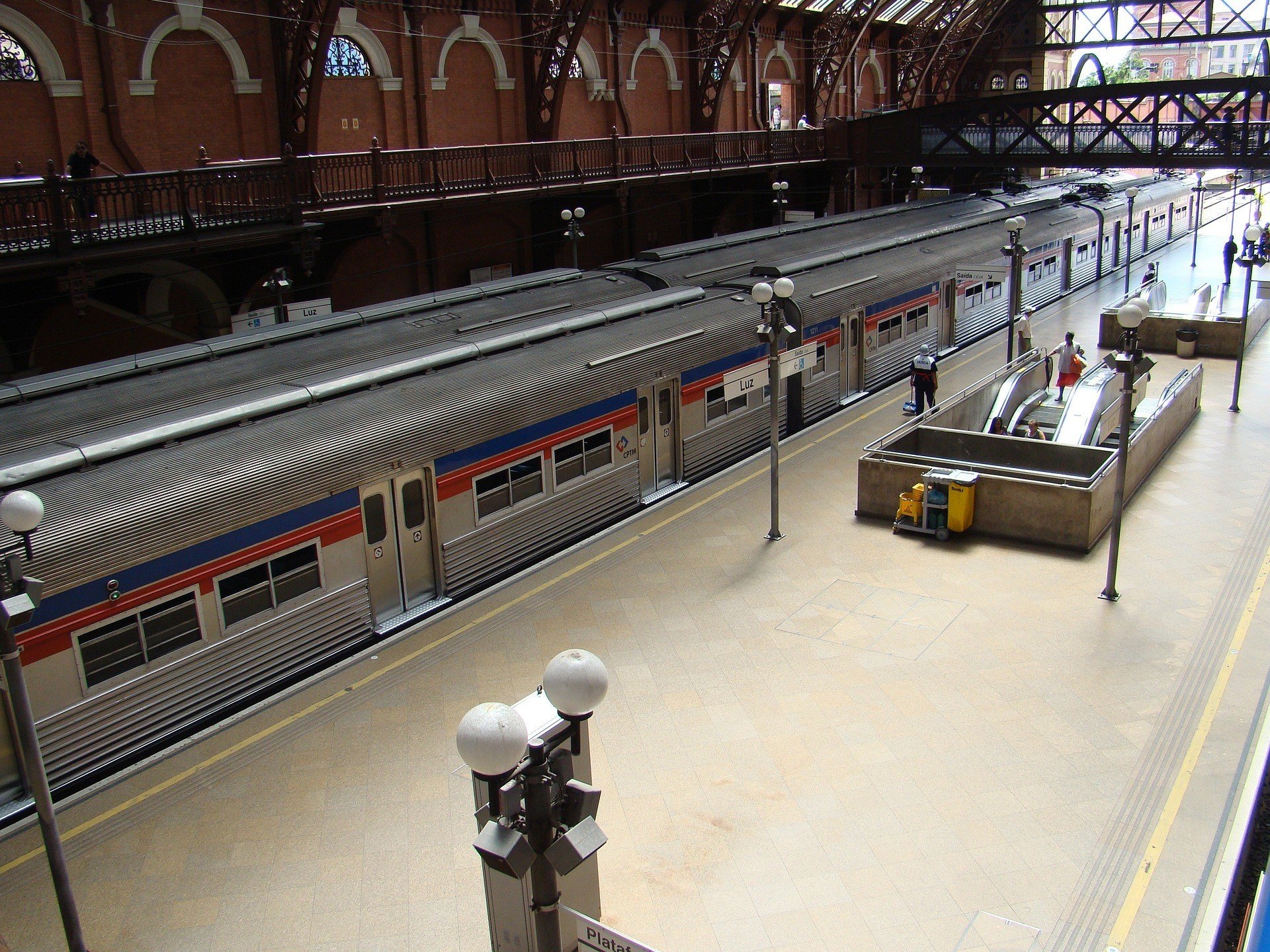
National railways have been scaled back and are now pretty limited. There have been a few ‘security incidents’ on the network, too. Unless you want to do a few scenic trips, we wouldn’t really recommend getting the train anywhere in Brazil. There are a handful of those you can embark on, the steam train between Sao Joao del Rei to Tiradentes for example.
Flying is also expensive, but probably the safest.
Buses in Brazil
That leaves the humble traveler with intercity buses. These are surprisingly safe. Most are well maintained and comfortable. You’ll be able to get a long-distance bus from all the big transport hubs.
Long distance bus travel is popular in Brazil. But like in most places, do your research on companies before you travel. Consider the following:
- On any bus, but especially the cheap options, do NOT put valuables under the bus.
- Keeping valuables within eyesight (i.e. under the seat in front of you or overhead and across the aisle).
- Paying a little extra also helps with potential breakdowns. Go for a bigger company and they’re more likely to have a back-up bus that will pick you up and carry on the journey.
- There are three different classes for long distance buses. Companies that offer air-con, fully reclining seats, refreshments and pillows for long distance journeys can cost twice as much as the cheapest option. But then again… 24-hour PLUS journeys might deserve more than a rudimentary seat.
- Book one of these by rocking up at the bus station. Though that’s not traveling smart. We’d recommend booking one via ClickBus, a bus app/site. This will give you time to research as well. No-brainer.
Is the food in Brazil safe?
Food in Brazil is pretty dang tasty. There’s loads to try.
But you WILL want to stay safe in Brazil when it comes to dining as not everywhere will be up to scratch with food hygiene standards. We’ve prepped a list of our best food safety tips for Brazil so you can eat your way around the country with ease.

- Eat at places that are busy with local people. These are likely to be trusted by locals (duh), therefore they will be very tasty , and you shouldn’t have a problem with getting sick from eating there.
- When it comes to street food vendors, try to go to places that are cooking up fresh food right before your eyes.
- Sometimes the street food vendors selling on beaches can be a bit dodgy. Just make sure they at least SEEM clean.
- There is a REAL abundance of seafood in Brazil. Just be careful when it comes to shellfish. If it seems a bit off, smells weird, tastes weird, DON’T EAT IT.
- Make sure any fruit or vegetables that you buy can be cleaned and peeled by yourself before you eat them.
- Watch out for tourist traps. These places often aren’t as clean, are just out to make money, and won’t be serving the tastiest food anyway.
- And last but not least, WASH YOUR HANDS. You could eat at the cleanest place ever, but if your own hands aren’t clean, you could be making yourself ill.
- Traveling with an allergy? Research ahead of time how to explain your allergy. Keep in mind that store owners and restaurant staff might not know all the foods that contain allergens, so it’s helpful to know the names of some of these too. If you’re gluten-free , pick up a handy Gluten-Free Translation Card with descriptions of Celiac disease, cross-contamination risk, and local Brazilian ingredients in Portuguese.
Then there’s a load of international cuisine. Let’s not forget that Brazil has the largest Japanese population outside of Japan. Portuguese, African, and Italian influences abound. Just be smart with where you choose to eat and your tastebuds and tummy will thank you!
Can you drink the water in Brazil?
Drinking water in Brazil is safe…
…but not always.
It’s safe to drink the water in Rio and Sao Paulo.
However, most hotels will offer filtered water. That’s because the unfiltered stuff is pretty awful and does not taste good. You’ll want to bring a reusable water bottle so you can take some of this liquid gold with you instead of using disposable water bottles.
Outside of these cities, and especially in remote areas, we wouldn’t trust the liquid that comes out of taps. Bring iodine tablets, water purifiers, or just boil the water – a minute should do, but add some extra boil time for higher altitudes.
Another way to feel confident about your water is to bring along the GRAYL GEOPRESS . If you’re ever unsure, you can light it up just in case for that extra peace of mind (and stomach).
It’s always good to bring an insulated water bottle to take your clean water with you and keep it cool during your day adventures.
Is Brazil safe to live?
There are definitely some issues when it comes to living in Brazil . This is mostly to do with crime.
You will probably have to live very differently to how you’re used to.
It’s the kind of place where everybody knows somebody who has been affected by crime in some way. And where lots of people live in apartments with security or in gated communities – or both.
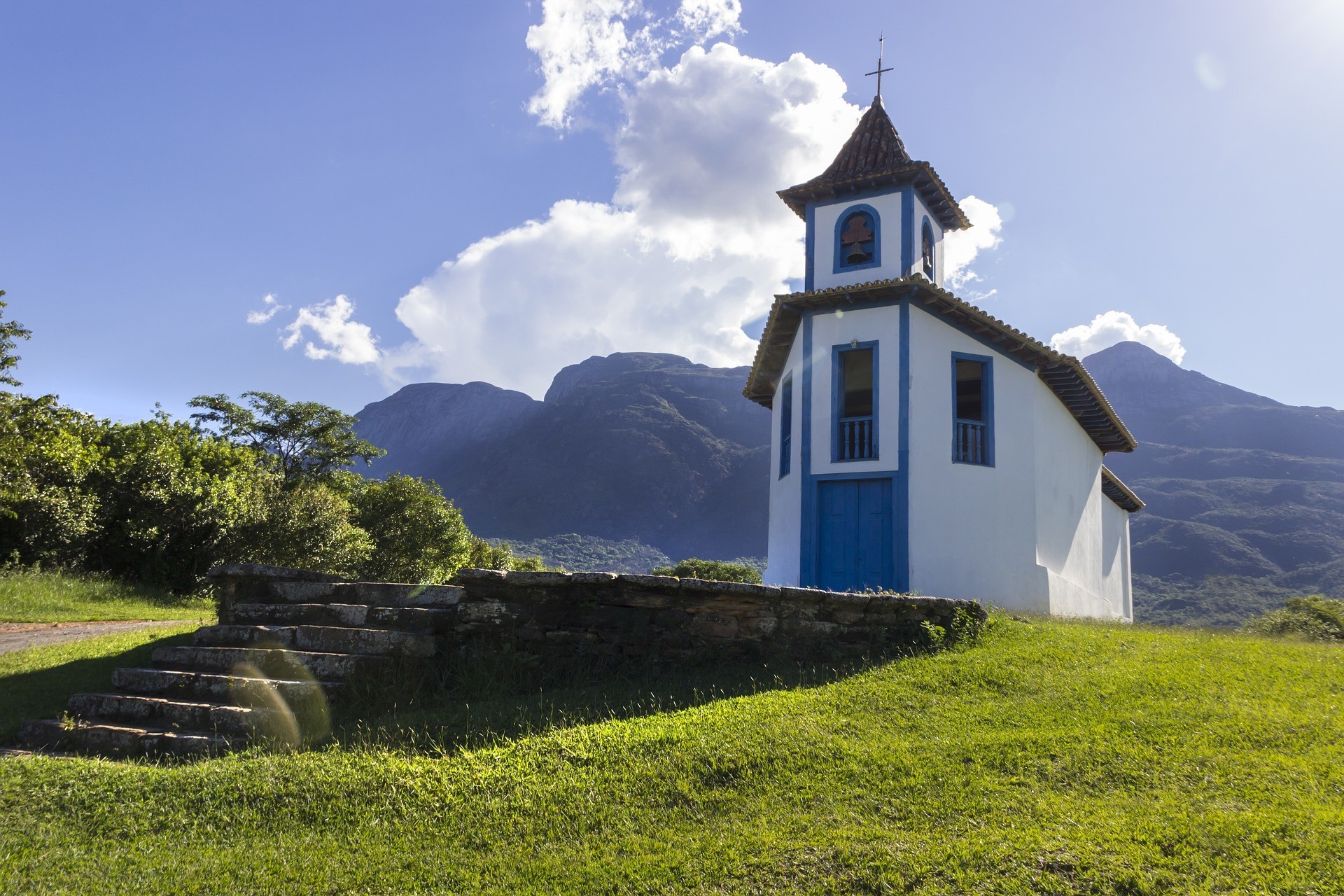
Brazil has a culturally diverse landscape. A lot of foreigners do live in Brazil. There will definitely also be cultural differences that you’ll have to deal with when you’re living here.
Basically, it’s not 100% safe to live in Brazil and your security will always depend on the city. Even then, it depends on where in that city you live. Even more specifically, what you can afford in terms of apartment, driver, whatever, contributes greatly to your safety as well.
Think long and hard about where you want to base yourself in Brazil before you take the plunge. This one deserves research. A LOT of it!

A new country, a new contract, a new piece of plastic – booooring. Instead, buy an eSIM!
An eSIM works just like an app: you buy it, you download it, and BOOM! You’re connected the minute you land. It’s that easy.
Is your phone eSIM ready? Read about how e-Sims work or click below to see one of the top eSIM providers on the market and ditch the plastic .
Is it safe to rent an Airbnb in Brazil?
It’s definitely safe to rent an Airbnb in Brazil, but you’ll have to choose the right area obviously. With the reliable rating and review system, you won’t just get to choose from awesome homes, but you can also read about the place you’re about to book in full detail. With the previous guest reviews, you’ll know exactly what to expect.
But keep in mind that hosts can also review their guests. This normally guarantees a very respectful and easy visit from both sides.
Is Brazil LGBTQ+ friendly?
Brazil can be incredibly LGBTQ+ friendly, but you’ll have to be in the right area. Rio de Janeiro for example is known to be a great destination for queer people, while the more rural areas can be a bit conservative and closed minded.
Members of the LGBTQ+ community might face some discrimination, but it’s nowhere near as bad as in other South American countries. Same-sex rights are also pretty far advanced. There are countless of LGBTQ+ bars, restaurants, hostels and other establishments.
Planning a safe trip to Brazil can get quite overwhelming. That’s why we’ve listed and answered the most frequently asked questions on safety in Brazil.
Is Brazil safe for female solo travellers?
While it’s definitely not safe to be a female solo traveler in Brazil, it is doable. Female travellers have to be more careful and aware of their surroundings than male travellers, unfortunately. We definitely advise not to walk around at night and if you have to, stick with a large group.
Is it safe to live in Brazil?
Living in Brazil is safe, but very different from anywhere else in the world. Mainly because the crime rates are high. You have to adapt to the culture and living situations frequently. Some areas are safer than others. Staying in a community with a lot of expats will be the safest place to live in Brazil.
What areas of Brazil are dangerous?
As a general rule, the poorer the area, the more dangerous it will be. Stay away from Brazil’s favelas. Most gang related crime, as well as shootings happen here so it’s not a place for tourists.
What are the safest places to stay in Brazil?
Florianópolis, São Paulo and Pantanal are the safest places to stay in Brazil according to statistics. You will come across pickpocketing and petty crime no matter where you are in Brazil, so stay aware of your surroundings and don’t carry valuables with you.
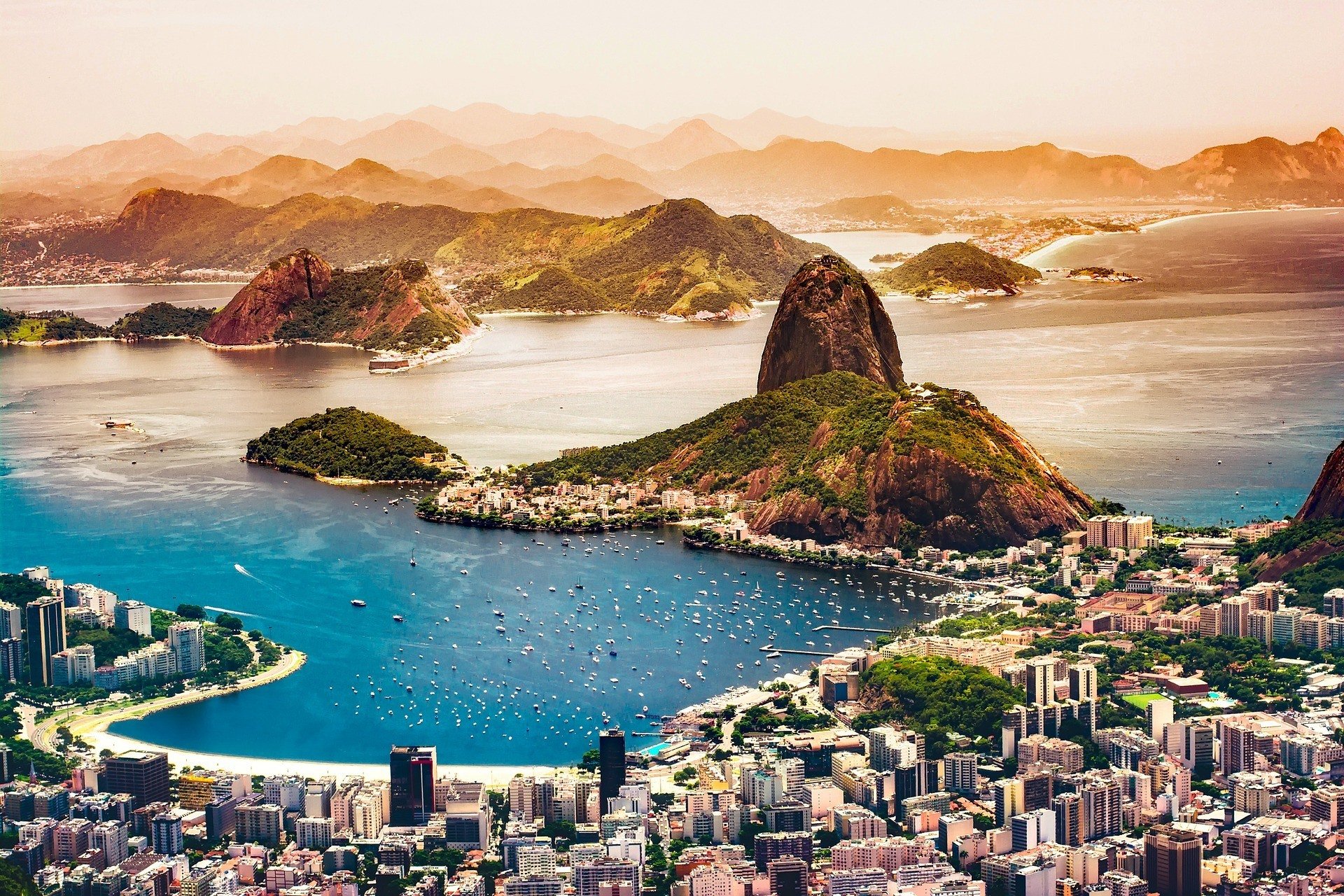
Brazil is such a huge country that it’s difficult to definitively say ‘yes it’s safe’ or ‘no it isn’t safe’. The truth is that it’s basically BOTH.
Areas of some cities are just so unpredictably violent that it would be completely stupid to wander into them. Other times you’ll wonder what all the fuss was about gangs and petty crime. The answer of whether or not Brazil is safe is therefore basically: it depends.
It depends what region of the country you’re in (the northeast isn’t so good for solo female travelers for example), it depends what CITY you’re in, what part of that city, what time of day it is, what sort of public transport you’re traveling on, what sort of clothes you’re wearing, what sort of eatery you’ve chosen to dine in… Yep. You get the idea. There are a lot of variables for staying safe in Brazil.
We would say, then, that the best way to stay safe when you visit Brazil is to just be extra alert at all times. Do research about what areas of the city you should/shouldn’t be in. Be aware of who is around you.
Disclaimer: Safety conditions change all over the world on a daily basis. We do our best to advise but this info may already be out of date. Do your own research. Enjoy your travels!

Claire Sturzaker

Share or save this post

Thanks for this guide, its really useful. I’m visiting Brazil next year with my wife so will use some of these tips.
Leave a Reply Cancel reply
Your email address will not be published. Required fields are marked *
Save my name, email, and website in this browser for the next time I comment.
Notify me of followup comments via e-mail.
- Travel Tips Brazil for planning and on the go
Book your individual trip , stress-free with local travel experts
Select Month
- roughguides.com
- South America
- travel-advice
- Travel guide
- Itineraries
- Local Experts
- Travel Advice
- Accommodation
Plan your tailor-made trip with a local expert
Book securely with money-back guarantee
Travel stress-free with local assistance and 24/7 support
Just wanted to say that it was incredible. Trip Provider was also incredibly good, and really made their best effort to solve any problems. We were very im...
More travel information for Brazil
From travel safety to visa requirements, discover the best tips for traveling to Brazil
- Eating and drinking in Brazil
- How to get to Brazil
- Getting around Brazil: Transportation Tips
- Electricity
Electricity supplies vary – sometimes 110V and sometimes 220V – so check before plugging anything in. Plugs have two round pins, as in continental Europe.
Gay and lesbian travel
Opening hours and public holidays, tourist information, travellers with disabilities, costs and money in brazil, crime and safety in brazil, health advice for brazil, the media in brazil, travelling with children in brazil, travel ideas for brazil, created by local experts.

9 days / from 2042 USD
Brazilian Beaches: Copacabana, Botafogo and more
Begin at Foz do Iguaçu, where you will stand in awe of the huge Iguaçu Falls. Next up, we'll head to the lively city of Rio de Janeiro, home of the legendary Copacabana, Botafogo and Flamengo beaches, and of course, Sugar Loaf Mountain and the iconic Christ the Redeemer statue.

10 days / from 1700 USD
Blissful Brazil
Welcome to a lavish journey that marries adventure with style, featuring stays in carefully chosen four-star hotels. This reinvigorating trip will have you sightseeing in São Paulo, gazing at the spectacular Foz do Iguaçu falls and relaxing on Rio's finest beaches before you know it.
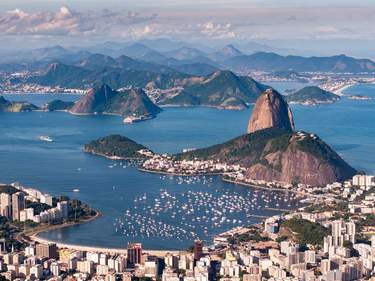
10 days / from 2683 USD
Breathtaking Brazil: Rio, Beaches and Waterfalls
Explore the lively city of Rio de Janeiro, home to Ipanema and Copacabana beaches; experience the stunning Foz do Iguaçu National Park and see the world’s largest waterfalls system; immerse yourself in cultural Salvador, the magnificent former capital of Portugal’s New World colony.
Gay life in Brazil thrives, especially in the large cities, Rio in particular being one of the great gay cities of the world. In general, the scene benefits from Brazil’s hedonistically relaxed attitudes towards sexuality in general, and the divide between gay and straight nightlife is often very blurred.
Attitudes vary from region to region. The two most popular gay destinations are Rio and Salvador. Rural areas and small towns, especially in Minas Gerais, the Northeast and the South, are conservative; the medium-sized and larger cities less so. A useful resource to consult before your trip is w www.guiagaybrasil.com.br ; although the text is in Portuguese, there are enough English indicators to allow non-Portuguese speakers to navigate easily through it and benefit from the listings and tips.
Prior to travelling, you should take out an insurance policy to cover against theft, loss and illness or injury. Before paying for a new policy, however, it’s worth checking whether you already have some degree of coverage – credit-card companies, home-insurance policies and private medical plans sometimes cover you and your belongings when you’re abroad. Most travel agents, tour operators, banks and insurance brokers will be able to help you. Remember that when securing baggage insurance, make sure that the per-article limit – typically under £500 equivalent – will cover your most valuable possession.
Even the humblest hotel has a lavadeira , who will wash and iron your clothes. Agree on a price beforehand, but don’t be too hard – livelihoods are at stake. Larger hotels have set prices for laundry services – usually, surprisingly expensive. Very common in larger cities are lavandarías , which operate a very useful por peso system – the clothes are weighed at the entrance, you pay per kilo, and pick them up washed and folded the next day for a couple of dollars per kilo. Ironing ( passar ) costs a little more.
A post office is called a correio , identifiable by their bright yellow postboxes and signs. An imposing Correios e Telégrafos building will always be found in the centre of a city of any size, but there are also small offices and kiosks scattered around that only deal with mail. Queues are often a problem, but you can save time by using one of their franking machines for stamps; the lines move much more quickly. Stamps ( selos ) are most commonly available in two varieties, either for mailing within Brazil or abroad. A foreign postage stamp costs around R$1.70 for either a postcard or a letter up to 10g. It is expensive to send parcels abroad.
Mail within Brazil takes three or four days, longer in the North and Northeast, while airmail letters to Europe and North America usually take about a week. Surface mail takes about a month to North America, and two to Europe. Although the postal system is generally very reliable, it is not advisable to send valuables through the mail.
We’ve provided maps of all the major towns and cities and various other regions. More detailed maps are surprisingly hard to get hold of outside Brazil and are rarely very good: there are plenty of maps of South America, but the only widely available one that is specifically of Brazil is the Bartholomew Brazil & Bolivia (1:5,000,000), which is not very easy to read. Much better are the six regional maps in the Mapa Rodoviário Touring series (1:2,500,000), which clearly mark all the major routes, although these, even in Brazil, are difficult to find.
A useful compendium of city maps and main road networks is published by Guias Quatro Rodas, a Brazilian motoring organization, which also has maps to Rio, São Paulo and other cities, states and regions. These are easy to find in bookstores, newsagents and magazine stalls. Very clear 1:960,000 maps of individual states are published by On Line Editora, and are usually available in Brazilian bookstores and newspaper kiosks; topographical and hiking maps are difficult to come by, though very occasionally they are available from municipal tourist offices or national parks in Brazil, or from local trekking equipment shops or tour operators.
Basic hours for most stores and businesses are from Monday to Friday 9am to 6pm and Saturday 9am to noon, with an extended lunch hour from around noon to 2pm. Shops in malls stay open until late Saturday night. Banks open at 10am, and stay open all day, but usually stop changing money at either 2pm or 3pm; except for those at major airports, they’re closed at weekends and on public holidays. Museums and monuments more or less follow office hours but many are closed on Monday.
Phones are operated by phonecards ( cart ã o telefônico ), which are on sale everywhere – from newspaper stands, street sellers’ trays and most cafés. For local calls, a 5- real card will last for several conversations; for long-distance or international calls, higher-value phonecards come in 10, 20, 50 or 100 real denominations. Calls to the US or Europe cost about US$1.50 per minute. Before dialling direct, lift the phone from the hook, insert the phonecard and listen for a dialling tone. Note that long-distance calls are cheaper after 8pm.
The dialling tone is a single continuous note, engaged is rapid pips, and the ringing tone is regular peals, as in the US. The phone system in Brazil is continually overloaded. If you get an engaged tone, keep trying – nine times out of ten, the phone is not actually engaged and you get through after seven or eight attempts. The smaller the place, the more often you need to try.
Long-distance and international calls can also be made from a posto telefônico , which all operate in the same way: you ask at the counter for a chave , are given a numbered key, go to the booth, insert the key and turn it to the right, and can then make up to three completed calls. You are billed when you return the key. To make a call between cities, you need to dial the trunk code, the código DDD (pronounced “daydayday”), listed at the front of phone directories. For international calls, ask for chamada internacional ; a reverse-charge call is a chamada a cobrar . Reversing the charges costs about twice as much as paying locally, and it is much cheaper to use a telephone charge-card from home. Except in the most remote parts of Amazônia and the Northeast, everything from a small town upwards has a posto , though note that outside large cities they shut at 10pm.
Long-distance telephone access codes
The privatization of Brazil’s telephone system has led to a proliferation of new telephone companies and increased competition. Before making a national or international call you must now select the telephone company you wish to use by inserting a two-digit code between the zero and the area code or country code of the number you are calling. To call Rio, for example, from anywhere else in the country, you would dial zero + phone company code + city code followed by the seven-digit number. For local calls, you simply dial the seven- or eight-digit number.
As different phone companies predominate in different areas of the country, pay phones will display which company code should be used from that particular phone, or the hotel receptionist will let you know the correct code to be used if calling from your hotel. The commonest codes are 21, 23 and 14. If you want to reverse the charges, dial 90 and then the number with company code as above. To reverse the charges on an international call, dial 00080 followed by the country code. As ever, the simplest option to make international calls is a phonecard bought before you leave.
Most of Brazil is three hours behind GMT, but the states of Amazonas, Acre, Rondônia, Mato Grosso and Mato Grosso do Sul are four hours behind – that includes the cities of Manaus, Corumbá, Rio Branco, Porto Velho, Cuiabá and Campo Grande.
Bills usually come with ten percent taxa de serviço included, in which case you don’t have to tip – ten percent is about right if it is not included. Waiters and some hotel employees depend on tips. You don’t have to tip taxi drivers (though they won’t say no), but you are expected to tip barbers, hairdressers, shoeshine kids, self-appointed guides and porters. It’s useful to keep change handy for them – and for beggars.
You’ll find tourist information fairly easy to come by once in Brazil, and there are some sources to be tapped before you leave home. Brazil’s embassies or larger consulates have tourist sections, where you can pick up brochure information and advice.
Popular destinations such as Rio, Salvador, the Northeast beach resorts, and towns throughout the South have efficient and helpful tourist offices , but anywhere off the beaten track has nothing at all – only Manaus, Belém and Porto Velho have offices in the Amazon region, for example.
Most state capitals have tourist information offices, which are announced by signs saying Informações Turísticas . Many of these provide free city maps and booklets, but they are usually all in Portuguese. As a rule, only the airport tourist offices have hotel-booking services , and none of them is very good on advising about budget accommodation. Tourist offices are run by the different state and municipal governments, so you have to learn a new acronym every time you cross a state line. In Rio, for example, you’ll find TurisRio, which advises on the state, and Riotur, which provides information on the city. There’s also EMBRATUR , the national tourist organization, but it doesn’t have direct dealings with the general public apart from its excellent website.
Travelling in Brazil for people with disabilities is likely to be difficult if special facilities are required. For example, access even to recently constructed buildings may be impossible, as lifts are often too narrow to accept wheelchairs or there may be no lift at all. In general, though, you’ll find that hotel and restaurant staff are helpful and will do their utmost to be of assistance to try to make up for the deficiencies in access and facilities.
Buses in cities are really only suitable for the agile; taxis , however, are plentiful, and most can accommodate wheelchairs. Long-distance buses are generally quite comfortable, with the special leito services offering fully reclining seats. Internal airlines are helpful, and wheelchairs are available at all the main airports.
The cost of living in Brazil is low outside the main tourist spots, and even within them shopping around can lower costs a lot. Europeans will mostly think Brazil cheap, North Americans a little less so but still comparing favourably with the US for most things. Particularly reasonable are hotels (except in Rio), foodstuffs (including eating out) and bus travel, while most museums are free. The exception is internal plane tickets, which a near-monopoly between TAM and Gol make expensive, unless you have an airpass. Other relatively expensive things are sunblock, good-quality clothing, cameras and anything to do with computers (except internet cafés, which are very cheap).
On the whole, Brazil is very much a viable destination for the budget traveller. The cheapness of food and budget hotels – and the fact that the best attractions, such as the beaches, are free – still make it possible to have an enjoyable time on a budget of less than R$125 a day. Staying in good hotels, travelling by comfortable buses or planes and not stinting on the extras is likely to cost you around R$400 a day.
The Brazilian currency is the real (pronounced “hey-al”); its plural is reís (pronounced “hey-ice”), written R$. The real is made up of one hundred centavos, written ¢. The rather pleasing notes, themed after Brazilian wildlife and all the same size but different colours, are for 2, 5, 10, 20, 50 and 100 reís; coins are 1, 5, 10, 25, 50 centavos and the 1 real. You will occasionally see a tattered R$1 note but these are being phased out, although they are legal tender. Throughout the Guide, all prices are given in Brazilian reís unless otherwise noted. However, US dollars and euros are easy enough to change in banks and exchange offices anywhere, and are also readily accepted by luxury hotels, tour companies and souvenir shops in the big cities.
Changing money in Brazil is simple; just take your bank or credit card with PIN (Personal Identification Number, which you must set up with your bank before your trip), and use ATMs – they are now ubiquitous in Brazil, to be found in most supermarkets, many pharmacies and all airports, as well as banks. Only Visa cards can be used to withdraw cash advances at the ATMs of Banco do Brasil and Banco Bradesco; only MasterCard at HSBC, Itaú and Banco Mercantil. Increasing numbers of Brazilian banks are linking their cash dispensers to the Cirrus and Maestro networks; the most reliable and widespread is the Banco 24 Horas network and HSBC. One important thing to note is that for security reasons most bank ATMs stop dispensing cash after 8pm, although Banco 24 Horas in large supermarkets will dispense until 10pm. Airport ATMs are the only ones that dispense cash all hours.
The main credit cards are widely accepted by shops, hotels and restaurants throughout Brazil, even in rural areas. MasterCard and Visa are the most prevalent, with Diners Club and American Express also widespread. It’s a good idea to inform your credit-card issuer about your trip before you leave so that the card isn’t stopped for uncharacteristic use.
Given the ease of using plastic, traveller’s cheques are not recommended, unless you want a small emergency reserve. Only the head offices of major banks (Banco do Brasil, HSBC, Banco Itaú, Banespa) will have an exchange department (ask for câmbio); whether changing cash or traveller’s cheques, you’ll need your passport. You can also change cash and traveller’s cheques in smart hotels and in some large travel agencies. Airport banks are open seven days a week, others only Monday to Friday.
Exchange rates were stable in the US$1.80–2.20 range for years but rose against the dollar with the financial crisis of late 2008, making Brazil cheaper for North Americans but more expensive for Europeans, especially Britons. But since Brazil’s newfound economic stability means it is now well placed to weather crises, exchange-rate turbulence is unlikely to be a feature of your stay. You will see two rates quoted in hotels: the oficial, or interbank rate, which you will be able to get in a casa de câmbio, an exchange counter in a travel agency or specialized exchange dealer (although these are now thin on the ground), and the turismo, a few cents less – more in hotels, where they bank on the ignorance of the clientele. Rates out of ATMs are usually the oficial, making plastic an even better option.
Brazil has a reputation as a rather dangerous place, and while it’s not entirely undeserved, it is often overblown and you should not let fear overshadow your stay. If you take the precautions outlined below, you are extremely unlikely to come to any harm – although you might still have something stolen somewhere along the way. The tips in this section apply everywhere, but be particularly alert in Rio, Salvador and Recife.
Criminals know that any injury to a foreign tourist is going to mean a heavy clampdown, which in turn means no pickings for a while. So unless you resist during an incident, nothing is likely to happen to you. That said, having a knife or a gun held on you is something of a shock: it’s very difficult to think rationally. But if you are unlucky enough to be the victim of an assalto (a hold-up), try to remember that it’s your possessions rather than you that are the target. Your money and anything you’re carrying will be snatched, your watch will get pulled off your wrist, but within a couple of seconds it will be over. On no account resist: it isn’t worth the risk.
Taking precautions
As a rule, assaltos are most common in the larger cities, and are rare in the countryside and towns. Most assaltos take place at night, in backstreets with few people around, so stick to busy, well-lit streets; in a city, it’s always a lot safer to take a taxi than walk. Also, prepare for the worst by locking your money and passport in the hotel safe – the one in your room is more secure than the one at reception. If you must carry them, make sure they’re in a moneybelt or a concealed internal pocket. Do not carry your valuables in a pouch hanging from your neck. Only take along as much money as you’ll need for the day, but do take at least some money, as the average assaltante won’t believe a gringo could be out of money, and might get rough. Don’t wear an expensive watch or jewellery: if you need a watch you can always buy a cheap plastic digital one on a street corner. And keep wallets and purses out of sight – pockets with buttons or zips are best.
You need to take special care when carrying a laptop – around business-oriented airports, like Congonhas in São Paulo and Santos Dumont in Rio, laptop stealing has become epidemic. Scouts wait at exits and phone ahead to thieves on motorbikes, who pull alongside your taxi when it is stuck in traffic and tap on the window with a revolver. Conceal laptops inside bags that do not look like computer bags, and try to avoid looking like a businessperson even if you are one.
More common than an assalto is a simple theft, a furto. Brand-new, designer-label bags are an obvious target, so go for the downmarket look. You’re at your most vulnerable when travelling and though the luggage compartments of buses are pretty safe – remember to get a baggage check from the person putting them in and don’t throw it away – the overhead racks inside are less safe; keep an eye on things you stash there, especially on night journeys. On a city beach, never leave things unattended while you take a dip: any beachside bar will stow things for you. Most hotels (even the cheaper ones) will have a safe, a caixa, and unless you have serious doubts about the place you should lock away your most valuable things: the better the hotel, the more secure it’s likely to be. In cheaper hotels, where rooms are shared, the risks are obviously greater – some people take along a small padlock for extra security and many wardrobes in cheaper hotels have latches fitted for this very purpose. Finally, take care at Carnaval as it’s a notorious time for pickpockets and thieves.
At international airports, particularly Rio and São Paulo, certain scams operate; for instance, well-dressed and official-looking men target tourists arriving off international flights in the arrivals lounge, identify themselves as policemen, often flashing a card, and tell the tourists to go with them. The tourists are then pushed into a car outside and robbed. If anyone, no matter how polite or well dressed they are, or how good their English is, identifies themselves as a policeman to you, be instantly on your guard – real policemen generally leave foreigners well alone. They won’t try anything actually inside a terminal building, so go to any airline desk or grab one of the security guards, and on no account leave the terminal building with them or leave any luggage in their hands.
If you are robbed or held up, it’s not necessarily a good idea to go to the police. Except with something like a theft from a hotel room, they’re very unlikely to be able to do anything, and reporting something can take hours even without the language barrier. You may have to do it for insurance purposes, when you’ll need a local police report: this could take an entire, and very frustrating, day to get, so think first about how badly you want to be reimbursed. If your passport is stolen, go to your consulate and they’ll smooth the path.
If you have to deal with the police, there are various kinds. The best are usually the Polícia de Turismo, or tourist police, who are used to tourists and their problems and often speak some English, but they’re thin on the ground outside Rio. In a city, their number should be displayed on or near the desk of all hotels. The most efficient police by far are the Polícia Federal, the Brazilian equivalent of the American FBI, who deal with visas and their extension; they have offices at frontier posts, airports and ports and in state capitals. The ones you see on every street corner are the Polícia Militar, with blue or green uniforms and caps. They look mean – and very often are – but, apart from at highway road blocks, they generally leave gringos alone. There is also a plain-clothes Polícia Civil, to whom thefts are reported if there is no tourist police post around – they are overworked, underpaid and extremely slow. If you decide to go to the police in a city where there is a consulate, get in touch with the consulate first and do as they tell you.
The drug wars in the favelas that you will have heard about and may well see on local TV during your stay are very localized and unlikely to have any impact on foreign tourists. But you should be extremely careful about using drugs in Brazil. Marijuana – maconha – is common, but you are in trouble if the police find any on you. You’ll be able to bribe your way out of it, but it will cost you the daily withdrawal limit on whatever plastic you have. Foreigners sometimes get targeted for a shakedown and have drugs planted on them – the area around the Bolivian border has a bad reputation for this – in order to get a bribe out of them. If this happens to you, deny everything, refuse to pay and insist on seeing a superior officer and telephoning the nearest consulate – though this approach is only for the patient.
Cocaine is not as common as you might think, as most of it simply passes through Brazil from Bolivia or Colombia bound for Europe. Nevertheless, the home market has grown in recent years, controlled by young and vicious gang-leaders from the favelas of the major cities.
Be careful about taking anything illegal on buses: they are sometimes stopped and searched at state lines. The stupidest thing you could do would be to take anything illegal anywhere near Bolivia, as buses heading to or from that direction get vigorously searched by the federais. Much the same can be said of smuggling along the rivers into Peru and Colombia: don’t even think about it.
There are no compulsory vaccinations required to enter the country from Europe or North America (although you may need a yellow fever certificate entering from another South American country), but certain precautions should be taken, especially if you’re staying for any length of time or visiting more remote regions. Taking out travel insurance is vital, and you should be especially aware of HIV and dengue fever, a significant problem in Rio during the Brazilian summer (Dec–April). But you should not let health issues make you unduly paranoid – if you need it, good medical care is available cheaply for all but the most serious of problems.
Pharmacies and medical treatment
Most standard drugs are available in pharmacies (farmácias), which you’ll find everywhere – no prescriptions are necessary. A pharmacy will also give injections (unless you’ve already had one, you’ll need a tetanus jab if you get bitten by a dog) and free medical advice, and they’re a good first line of defence if you fall ill.
If you are unlucky enough to need medical treatment in Brazil, forget about the public hospitals – as a foreigner, you have virtually no chance of getting a bed unless you have an infectious disease, and the level of health care offered by most is appalling. You can get good medical and dental care privately: North Americans will think it fairly inexpensive, Europeans used to state-subsidized health care will not. A doctor’s visit will cost on average US$40–75; drugs are relatively cheap. Hotels in big cities will have lists of English-speaking doctors; ask for a médico. Outside the larger centres, you will probably have to try out your Portuguese. Any Brazilian doctor will also understand – although not necessarily speak – Spanish.
Food and water
Many diseases are directly or indirectly related to impure water and contaminated food, and care should be taken in choosing what to eat and drink.
You should, of course, take particular care with seafood, especially shellfish – don’t eat anything that’s at all suspicious. Fruit and salad ingredients should be washed in bottled or purified water or, preferably, peeled. Ultimately, you are going to run some risks with food, so if you’re going to enjoy your stay to the full, you can’t be too paranoid.
Even in the most remote towns and villages mineral water (água mineral), either sparkling (com gás) or still (sem gás), is easily available and cheap. To avoid dehydration be sure to drink plenty of non-alcoholic liquids, always carry a bottle of water on long trips, and check that the seal on any bottled water you use is intact.
As with food, it’s difficult to be on guard all the time whilst drinking; fruit juices are often diluted with water, and ice is rarely made with filtered water outside a smart hotel. It is not realistic to restrict all water intake to mineral water, but if you are sensible you can at least minimize risk.
Chagas’ disease
A serious disease you should guard against is Chagas’ disease, which is endemic in parts of the Northeast and the Amazon. Although it is difficult to catch, it can lead to serious heart and kidney problems that appear up to twenty years after infection. The disease is carried in the faeces of beetles that live in the cracks of adobe walls, so if sleeping in an adobe hut, make sure nothing can crawl into your hammock; either use a mosquito net or sling the hammock as far from walls as you can. The beetle bites and then defecates next to the spot: scratching of the bite will rub in the infected faeces, so before scratching a bite that you know wasn’t caused by a mosquito, bathe it in alcohol. If you are infected, you will have a fever for a few days that will then clear up as if nothing untoward happened. Though the disease can be treated in its early stages, it becomes incurable once established. If you travel through a Chagas area and get an undiagnosed fever, have a blood test as soon as possible afterwards.
Dengue fever
Dengue fever, a viral disease transmitted by mosquito bites, is increasingly common in all Brazilian cities save the extreme south of the country. Rio has been particularly badly affected in recent years, as the spectacular incompetence of its city government has allowed the mosquito problem to get out of hand. It is highly seasonal, peaking in the southern hemisphere summer (Dec–April). The symptoms are debilitating rather than dangerous: light but persistent fever, tiredness, muscle and joint pains, especially in the fingers, and nausea and vomiting. It is easily treatable, but you will feel pretty grim for a week or so. It is much more widespread than any other disease in urban areas, and is currently the focus of much educational and preventive work by the Brazilian government. The same precautions against mosquito bites outlined in the section on malaria above apply here. The difference is that the dengue mosquito comes out during the day rather than at night. Be cautious in urban environments around anything that could act as a water retainer and thus as a mosquito breeding ground: drainage channels, old oil drums and tyres, abandoned lots, swampy areas in general.
There is one dangerous form of dengue, hemorraghic dengue, which kills hundreds of people a year in Brazil. Tourists tend not to get it, since you almost always need to have had a previous attack of dengue to be vulnerable to it. It is particularly dangerous to children. The body’s immune system is provoked to attack itself by the dengue virus, resulting in internal bleeding that can quickly get out of hand. If dengue-like symptoms are accompanied by bleeding from the nose and ears or highly bloodshot eyes, get yourself to a private hospital fast. Even if you are unlucky enough to get it, in the vast majority of cases getting timely treatment will mean a few days in hospital is all that’s needed for complete recovery. You will feel very weak and should take things easy for a couple of weeks after you leave hospital, however.
Diarrhoea, dysentery and giardia
Diarrhoea is something everybody gets at some stage, and there’s little to be done except drink a lot (but not alcohol) and bide your time. You should also replace salts either by taking oral rehydration salts or by mixing a teaspoon of salt and eight of sugar in a litre of purified water. You can minimize the risk by being sensible about what you eat, and by not drinking tap water anywhere. This isn’t difficult, given the extreme cheapness and universal availability of soft drinks and água mineral, while Brazilians are great believers in herbal teas, which often help alleviate cramps.
If your diarrhoea contains blood or mucus, the cause may be dysentery or giardia. With a fever, it could well be caused by bacillic dysentery and may clear up without treatment. If you’re sure you need it, a course of antibiotics such as tetracyclin or ampicillin (travel with a supply if you are going off the beaten track for a while) should sort you out, but they also destroy “gut flora” that help protect you. Similar symptoms without fever indicate amoebic dysentery, which is much more serious, and can damage your gut if untreated. The usual cure is a course of metronidazole (Flagyl), an antibiotic that may itself make you feel ill, and should not be taken with alcohol. Similar symptoms, plus rotten-egg belches and farts, indicate giardia, for which the treatment is again metronidazole. If you suspect you have any of these, seek medical help, and only start on the metronidazole (750mg three times daily for a week for adults) if there is definitely blood in your diarrhoea and it is impossible to see a doctor.
Hepatitis A
Wherever you go, protection against hepatitis A is a sensible precaution. The disease is transmitted through contaminated water and food, resulting in fever and diarrhoea, and it can also cause liver damage. Gammaglobulin injections, one before you go and boosters every six months, are the standard protection. If you plan to spend much time in Amazônia or the Northeast, or if you know that you will be travelling rough, it’s well worth protecting yourself. If you have had jaundice, you may well have immunity and should have a blood test to see if you need the injections. A newer vaccine – Havrix – is very effective and lasts for up to ten years.
HIV and AIDS
Brazil has a relatively high number of people with AIDS and HIV. There are many reasons for this: a scandalous lack of screening of either blood donors or supplies in the 1980s; the level of gay sex between Brazilian men, among whom bisexuality is common; the popularity of anal sex, not least among heterosexual couples; and the sharing of needles among drug users in large cities. But Brazil has been a world leader in dealing with the epidemic. It faced down international drug companies in the late 1990s with the threat that they would independently manufacture AIDS drugs – with the result that all HIV-positive Brazilians now receive free anti-retroviral medicines in a programme that has become a global model for developing countries. Brazil also has some of the funniest and most imaginative safe-sex campaigns anywhere, particularly in evidence during Carnaval.
A straightforward understanding of the disease and how it is transmitted is the best defence. Firstly, HIV is not evenly distributed throughout Brazil. A majority of HIV carriers are concentrated in the big cities. As anywhere else, sex with a prostitute is a high-risk activity. The situation with blood and blood products has now improved enormously, but in remoter parts of the country, especially the Amazon, make sure that if you have an injection it is with a needle you see being removed from its packaging. Finally, use a condom. Only a tiny minority of sexually active Brazilian men carry them as a matter of course. They are widely available in pharmacies, where you should ask for a camisinha.
Malaria is endemic in northern Brazil, and anyone intending to travel in Amazônia should take precautions very seriously. You are safe if you are only visiting cities and towns, where intensive campaigns keep malarial mosquitoes at a distance, and if your visit will be restricted to Manaus, Santarém and Belém you can forego prophylaxis. Mosquitoes are also not a problem on river journeys, since the breezes keep them off, and they are much less common in black-water river systems – such as the River Negro, where jungle lodges around Manaus are concentrated – where malaria is rare.
If you will be sleeping in a rural area anywhere else in the Amazon, however, it is a good idea to take precautions. In recent years, rates have climbed as mosquitoes have become more resistant to insecticides and drugs, and a few unwary tourists die avoidably every year. Southern Pará state and much of rural Rondônia state are the riskiest areas for malaria. However, with simple precautions you can minimize the chances of getting it even in highly malarial areas, and, properly treated, a dose of malaria should be no worse than a severe bout of flu. But make no mistake – unless you follow the precautions outlined here, and take malaria prophylaxis when appropriate, malaria can kill.
There are two kinds of malaria in Brazil: falciparum, which is more serious but less common, and vivax. Both are transmitted by anopheles mosquitoes, which are most active at sunrise and for an hour or so before sunset. Even in very malarial areas, only around five percent of anopheles are infected with malarial parasites, so the more you minimize mosquito bites, the less likely you are to catch it. Use insect repellent: the most commonly used in Brazil is Autan, often in combination with Johnson’s Baby Oil to minimize skin irritation. The most effective mosquito repellents – worth looking out for before you leave home – contain DEET (diethyl toluamide). DEET is strong stuff, so follow the manufacturers’ instructions, particularly with use on children. If you have sensitive skin, a natural alternative is citronella or, in the UK, Mosi-guard Natural, made from a blend of eucalyptus oils (though still use DEET on clothes and nets). Wear long-sleeved shirts and trousers, shoes and socks during the times of day when mosquitoes are most active. Sleep under a sheet and, crucially, use a mosquito net. Nets for hammocks (mosqueteiro para rede) are reasonable and easily available in Amazonian cities and towns. Mosquito coils also help keep the insects at bay.
When taking preventive tablets it’s important to keep a routine and cover the period before and after your trip with doses. Doctors can advise on which kind to take. As resistance to chloroquin-based drugs increases, mefloquin, which goes under the brand name of Lariam, has become the recommended prophylactic for most travellers to Brazil. This has very strong side effects, and its use is controversial.
Malaria has an incubation period of around two weeks. The first signs of malaria are remarkably similar to flu – muscle pains, weakness and pain in the joints, which will last for a day or two before the onset of malaria fever proper – and may take months to appear: if you suspect anything go to a hospital or clinic immediately. You need immediate treatment and a blood test to identify the strain. Malaria treatment is one public-health area where Brazil can take some credit. Dotted in malarial parts of the Amazon are small malaria control posts and clinics, run by the anti-malaria agency SUCAM – ask for the posto da SUCAM. They may not look like much, but the people who staff them are very experienced and know their local strains better than any city specialist. Treatment in a posto is free, and if you do catch malaria you should get yourself taken to one as quickly as possible; don’t shiver in your hammock and wait for it to pass. It often does, but it can also kill. If in a city and you get the same symptoms (a fever and the shakes), make sure you get a blood test right away; you’ll get your results in a few hours, and quick diagnosis is vital. Remember that the incubation period means that the symptoms may only appear after you return home – make sure to tell your doctor where you’ve been if you get a fever shortly after your return home.
Malaria is a much more serious issue for a child. We specifically recommend avoiding the state of Rondônia other than Porto Velho, rural Acre and Amapá and southern Pará if you are travelling with children.
Yellow fever
Getting a yellow fever vaccination, which offers protection for ten years, is recommended if you’re going to Amazônia, Goiás or Mato Grosso. This viral disease is transmitted by mosquitoes and can be fatal, but is extremely rare even in places where it is endemic. Symptoms include headache, fever, abdominal pain and vomiting, and though victims may appear to recover, without medical help they may suffer from bleeding, shock and kidney and liver failure. While you’re waiting for help, it is important to keep the fever as low as possible and prevent dehydration.
In the Amazon
Given the remoteness of many parts of the Amazon and the prevalence of insects and snakes, health care takes on a special significance. If you are trekking through forest or savanna, long trousers are a good idea, and it is vital to wear good boots that protect your ankles from snake bites, chiggers (mites) and scorpions. You should never trek alone.
Snakes are timid and, unless you’re unlucky, only attack if you step on them. Many of the most poisonous snakes are tiny, easily able to snuggle inside a shoe or a rucksack pocket. Always shake out your hammock and clothes, keep rucksack pockets tightly closed and take special care when it rains, as snakes, scorpions and other nasty beasties quite sensibly head for shelter in huts. If you do get bitten by a snake, try to kill it for identification – but only if this can easily be done. Use a shoelace or a torn piece of shirt wound round the limb with a stick as a tourniquet, which you should repeatedly tighten for twenty seconds and then release for a minute, to slow down the action of the poison. Contrary to popular belief, cutting yourself and sucking out blood will do you more harm than good. It goes without saying that you should get yourself to a doctor as soon as possible. If you are well off the beaten track, health posts in the nearest town may have serum, but you must know the type of snake involved.
Due to the humidity, any cut or wound gets infected very easily. Always clean cuts or bites with alcohol or purified water before dressing. As a general rule, leave all insects alone and never handle them. Even the smallest ants, caterpillars and bees can give you nasty stings and bites, and scorpions, large soldier ants and some species of bee will give you a fever for a day or two as well.
As in the US, Brazil has a regional press rather than a national one. Even the top Rio and São Paulo papers are a little parochial; elsewhere, newspapers are at best mediocre but are always valuable for listings of local events. Brazil also boasts a lurid but entertaining yellow press, specializing in gruesome murders, political scandals and football.
Newspapers and magazines
The top newspapers are the slightly left-of-centre Folha de São Paulo and the Rio-based, right-of-centre O Globo, usually available, a day late, in large cities throughout the country. Both are independent and have extensive international news, cultural coverage and entertainment listings, but are respectable rather than exciting. Even stodgier but reasonable is the right-wing Estado de São Paulo, while the Gazeta Mercantil and Valor Econômico are high-quality equivalents of the Financial Times or Wall Street Journal. The most enjoyable of the yellow press is Rio’s Última Hora, especially good for beginners in Portuguese, with a limited vocabulary and lots of pictures, but all major cities have similar local tabloids.
There are also two good weekly current-affairs magazines: Veja and Isto É. They are expensive, around US$5, since their readership is exclusively middle class. You will find Brazilian editions of most major fashion and women’s magazines. The weekly Placar is essential for anyone wanting to get to serious grips with Brazilian football. Vogue Brasil, edited in São Paulo and published by Condé Nast, is a quality magazine offering great insight into the style of the Brazilian elite, while Plástica is a glossy monthly magazine that sheds light on Brazil’s apparent obsession with plastic surgery.
Apart from in airports, Rio and São Paulo, where you can find the International Herald Tribune and the Economist, English-language newspapers and magazines are very difficult to find in Brazil. The exceptions are Time and Newsweek, which are widely available in newspaper kiosks in big cities, albeit often weeks old.
Radio is always worth listening to if only for the music. FM stations abound everywhere, and you should always be able to find a station that plays local music. Shortwave reception for the BBC World Service is good in Brazil.
Brazilian TV is ghastly, the worst you are ever likely to see, and therefore compulsive viewing even if you don’t understand a word of Portuguese. There are several national channels, of which the most dominant is TV Globo, the centrepiece of the Globo empire, Latin America’s largest media conglomerate. The empire was built up by Brazil’s answer to Rupert Murdoch, Roberto Marinho, who died in 2003. One of the most powerful men in Brazil, Marinho was very cosy with the military regime and prone to use his papers and TV channels as platforms for his ultra-conservative views. The other major national channels are Manchete, TV Bandeirantes, SBT and Record.
The channels are dominated by telenovelas, glossy soap operas that have massive audiences in the evenings. Football coverage is also worth paying attention to, a gabbling, incomprehensible stream of commentary, punctuated by remarkably elongated shouts of “Gooooool” whenever anyone scores – which is often, Brazilian defenses being what they are. However, there are a few genuine highlights, notably Jô Soares, the funniest and cleverest of Brazilian comedians, who hosts a very civilized late-night chat show on Globo every weekday.
Brazilian has the highest number of computers with internet access in South America and all things online are highly developed, with internet cafés on every corner, and much of what used to be tediously queued up for – banking, cinema-going, buying plane tickets – now done online as a matter of course.
Travelling with children is relatively easy in Brazil. They are made to feel welcome in hotels and restaurants in a way that’s not always so in Europe or North America. In fact, it is also more secure: even thieves and assaltantes seem to respect families with children and leave them alone.
Travelling around Brazil takes time, so try not to be too ambitious in terms of how much you aim to cover. Because of frequent scheduled stops and unscheduled delays it can take all day to fly from one part of the country to another. Long bus journeys are scheduled overnight and can be exhausting. Children pay full fare on buses if they take up a seat, ten percent on planes if under 2 years old, half-fare between 2 and 12, and full fare thereafter. Newer airports have a nursery (berçário) where you can change or nurse your baby and where an attendant will run your baby a bath, great on a hot day or if your plane’s delayed. If you plan on renting a car, bring your own child or baby seat as rental companies never supply them and they are very expensive in Brazil. Cars are fitted with three-point shoulder seatbelts in the front, but many only have lap seatbelts in the back.
In hotels, kids are generally free up to the age of 5, and rooms often include both a double and a single bed; a baby’s cot may be available, but don’t count on it. It’s rare that a room will sleep more than three, but larger hotels sometimes have rooms with an interlinking door. Hotels will sometimes offer discounts, especially if children share rooms and even beds with siblings or parents; the lower- to mid-range hotels are probably the most flexible in this regard. If you’re planning on staying more than a few days in a city, you may find it cheaper and more convenient to stay in an apartment-hotel, which will sleep several people and comes with basic cooking facilities. Baths are rare in Brazil, so get your kids used to showers before leaving home. Occasionally, a hotel will provide a plastic baby bath, but bring along a travel plug, as shower pans are often just about deep enough to create a bath.
Many of the mid- and upper-range hotels have TV lounges, TVs in rooms, swimming pools, gardens and even games rooms, which are often useful in entertaining kids. Most large towns also have cinemas, the best often being the new multiplexes found in shopping centres.
Food shouldn’t be a problem as, even if your kids aren’t adventurous eaters, familiar dishes are always available and there’s also the ubiquitous comida por kilo option. Portions tend to be huge, often sufficient for two large appetites, and it’s perfectly acceptable to request additional plates and cutlery. Most hotels and restaurants provide high chairs (cadeira alta) as well. Commercial baby food is sold in Brazilian supermarkets. Remember to avoid tap water and use only mineral water when preparing formula and washing out bottles. Mid-range hotels and upwards have a minibar (frigobar) in the rooms where you can store bottles and baby food, but where there isn’t one you will be able to store things in the hotel’s refrigerator. A small cooler box or insulated bag is a good idea and, while ice compartments of frigobars are useless, you can always place your freezer blocks in the hotel’s freezer (congelador).
In general, Brazilian infants don’t use disposable nappies/diapers (fraldas), due to the cost, around R$12 for twenty – very expensive for most Brazilians. As brands such as Pampers are sold in pharmacies and supermarkets, it’s worth only bringing a minimum with you until you can make it to a shop.
Health shouldn’t be a problem, but before planning your itinerary check which areas entail taking anti-malarial tablets (the state of Rondônia other than Porto Velho, rural Acre and Amapá and southern Pará is rife with malaria and should be avoided), and make enquiries as to whether the vaccines recommended or required in some parts of Brazil (in particular the Amazon) are likely to have any unpleasant side effects for babies or young children. For most of Brazil, the only likely problem will be the strength of the tropical sun and the viciousness of the mosquitoes: bring plenty of sunscreen (at least factor 20 for babies and factor 15 for young children) and an easy-to-apply non-toxic insect repellent.
The Rough Guides to Brazil and related travel guides
In-depth, easy-to-use travel guides filled with expert advice.

Travel advice for Brazil
Find even more inspiration here.

Ready to travel and discover Brazil?
Get support from our local experts for stress-free planning & worry-free travels.
- Where to stay
- Travel advice
- Skip to main content
- Skip to "About this site"
Language selection
Search travel.gc.ca.
Help us to improve our website. Take our survey !
COVID-19: travel health notice for all travellers
Brazil travel advice
Latest updates: Safety and security – updated information on flooding in southern Brazil
Last updated: May 8, 2024 16:32 ET
On this page
Safety and security, entry and exit requirements, laws and culture, natural disasters and climate, brazil - exercise a high degree of caution.
Exercise a high degree of caution in Brazil due to high crime rates and regular incidents of gang-related and other violence in urban areas.
Back to top
Crime rates are high throughout the country, particularly in:
- Porto Alegre
- Rio de Janeiro
- São Paulo
Tourists are most commonly affected by theft, but incidents of violent crime have occurred.
Violent crime
Violent crime occurs, namely:
- home invasion
- armed robbery
- sexual assault
Violent crime, often involving weapons, is common.
The following areas have high incidences of violent crime:
- Rio de Janeiro
- Christ the Redeemer statue
- Copacabana Beach
- Corcovado Trail
- Ipanema Beach
- Lapa neighbourhood
- Santa Teresa neighbourhood
- around São Paulo Cathedral
- Avenida Paulista
- Central market
- historical downtown area
- Princess Isabel Square
- Station of light
- Ceilândia
- Paranoá
- Santa Maria
- São Sebastião
If you decide to travel to these areas:
- exercise a high degree of caution at all times
- avoid travelling alone, especially at night
- avoid parks or central areas of major cities
- avoid poorly lit and isolated streets
- avoid walking on isolated and unsupervised beaches, especially at night
- if you’re threatened by robbers, don’t resist.
Robberies, often armed with weapons such as guns and knives, occur regularly. Victims are generally selected on the basis of perceived wealth, including using cell phones and laptops.
Robberies occur in and around:
- ATMS and currency exchange bureaus
- hiking trails
- outdoor markets
- parking lots
- public transport
- restaurants
- road closures
- traffic jams
- unregistered taxis
Drive-by snatching by armed thieves on motorcycles occurs regularly, particularly in São Paulo and Porto Alegre.
- Keep car windows and doors locked at all times
- If you feel threatened while driving at any time, do not stop
Victims have been seriously injured or killed when resisting perpetrators, who may be armed or under the influence of drugs.
Spiked food and drinks
Spiked food and drink incidents are increasing in Brazil, particularly in Rio de Janeiro .
Incidents of spiked food and drinks to force victims to use their debit or credit card to withdraw money from ATMs has been reported, including on beaches in Rio de Janeiro and crowded restaurants in São Paulo.
The use of drugs to facilitate sexual assault and robbery against foreigners has also been reported. Assaults frequently occur in unofficial taxis.
Incidents occur:
- in bars and restaurants
- in nightclubs
- at public beaches
While you’re in Brazil:
- never leave food or drinks unattended or in the care of strangers
- be wary of accepting these items from new acquaintances
- ask for drinks coming from sealed bottles or cans instead of in plastic cups
- in restaurants, avoid sitting close to the entrance
Petty crime
Street crime, including pickpocketing, purse snatching and theft from cars, is common in Brazil’s large cities. Tourists are a favourite target.
Petty theft on buses and the metro is common. It is a significant concern in Recife.
Incidents of opportunistic crime increase significantly at large-scale sporting events, international conferences and during holidays such as the Carnival and New Year’s celebrations.
Flash mob robberies ( arrastões ) have occurred sporadically on Rio’s city beaches and in other crowded tourist areas. This type of crime involves a group of thieves (often young children and youth originating from nearby favelas) that swarm an area and snatch valuable items such as cash, jewellery and cell phones.
A common ruse used by criminals is the Good Samaritan scam, where a criminal offers to help a tourist who looks lost. If you are lost, go into a nearby business or hotel to ask for help.
- Ensure that your personal belongings, including your passport and other travel documents, are secure at all times
- Remain vigilant when visiting tourist destinations such as:
- hotel grounds
- bars and nightclubs
- airports and bus stations
- Avoid showing signs of affluence such as expensive jewellery, watches, clothing and bags
- Carry only small amounts of cash
- Keep cameras and portable electronic devices concealed
- Be aware of ploys to distract your attention
- Remain cautious with new acquaintances who ask for information or offer hospitality or assistance
- Book tours with reliable agencies
Express kidnappings
The number of kidnappings in the Rio de Janeiro Metropolitan area has significantly increased since 2022.
Criminals may kidnap a victim for a few hours and force them to withdraw funds at an ATM for their release. Thieves may put drugs into food and drinks, temporarily incapacitating victims, who become quickly disoriented and are vulnerable to kidnapping.
- Use only a reputable taxi company or a trusted ride-sharing app
- Avoid showing signs of affluence, such using cell phones, headphones and wearing jewelry
- Never leave food or drinks unattended or in the care of strangers
- Be wary of accepting these items from new acquaintances
Borders with Colombia and Venezuela
There is a concerning level of serious criminal activity by organized criminal groups along the border areas with countries bordering Brazil, particularly Colombia and Venezuela. Incidents of attacks on tourists and kidnapping have occurred. Be extremely cautious when crossing into bordering countries.
Vulnerable neighborhoods
Vulnerable neighborhoods (commonly referred to as “favelas”), are characterized by informal housing developments, crowded quarters, poorer conditions, and/or irregular construction.
Gang-related violence and organized crime is prevalent in these areas and police assistance is very limited.
Avoid renting accommodations in vulnerable neighborhoods, and travelling to these areas, even on a guided tour.

Police operations
Armed clashes and shootouts between police forces and alleged criminals regularly occur in vulnerable neighbourhoods. Police operations have led to retaliation by criminal gangs. Vulnerable neighbourhoods are located across major cities, as a result, there is an ongoing risk of violence spilling over to neighbouring areas, including affluent neighbourhoods and tourist destinations. There have been incidents of injuries and deaths as a result of stray bullets near, and in, vulnerable neighbourhoods.
Credit card and ATM fraud is a major problem. Be cautious when using debit or credit cards:
- pay careful attention when your cards are being handled by others
- use ATMs located in well-lit public areas or inside a bank or business
- avoid using card readers with an irregular or unusual feature
- cover the keypad with one hand when entering your PIN
- check for any unauthorized transactions on your account statements
Cybercrime is also a growing problem. Perpetrators monitor social media sites and eavesdrop on your conversations when you are in the country.
- Do not discuss travel plans or any other personal information within earshot of strangers
- Be cautious when posting information on social media
- Be particularly vigilant in internet cafes
Overseas fraud
Pirate attacks and armed robbery against ships occur in coastal waters. Mariners should take appropriate precautions.
Live piracy report - International Maritime Bureau’s Piracy Reporting Centre
Demonstrations
Demonstrations take place regularly. Even peaceful demonstrations can turn violent at any time. They can also lead to disruptions to traffic and public transportation.
Protests can cause delays on main roads, including to airports, such as to the Guarulhos International Airport i n São Paulo . Demonstrations tend to increase in frequency and intensity during major events that attract foreign visitors.
- Avoid areas where demonstrations and large gatherings are taking place
- Follow the instructions of local authorities
- Monitor local media for information on ongoing demonstrations
Mass gatherings (large-scale events)
Women’s safety
Women travelling alone may be subject to some forms of harassment and verbal abuse.
- Avoid travelling alone at night
- Avoid carrying purses
Advice for women travellers
Coastal waters can be dangerous.
- Swim or surf in areas where lifeguards are located
- Avoid swimming where there are strong currents
- Be wary of sharks, especially in Brazil’s north east near Recife
- Follow the instructions and warnings of local authorities.
Robberies are frequent and occur in tourist destinations, including on hiking trails. Be especially cautious on the Corcovado trail in Rio, where several robberies have happened.
If you intend on trekking:
- never do so alone
- always hire an experienced guide from a reputable company
- buy travel insurance
- ensure that your physical condition is good enough to meet the challenges of your activity
- ensure that you’re properly equipped and well informed about weather and other conditions that may pose a hazard
- inform a family member or friend of your itinerary, including when you expect to be back
- obtain detailed information on trekking routes before setting out
- ensure the trail doesn’t pass through a favela
- do not venture off marked trail
Adventure tourism
Amazon border regions and the Pantanal wetlands are largely uninhabited and dangerous areas.
Travel in these regions only with trained guides.
Public transportation
The subway systems in Rio and in São Paulo are generally safe during the day. Be extremely cautious using public transportation at night
There have been reports of theft and violence on city buses in Rio de Janeiro and near vulnerable neighbourhoods across the country, especially during rush hour.
Inter-city buses are generally reliable. Ensure that you use a reputable company before you book your travel.
Bus accidents occur regularly.
Major bus services charge fixed, pre-paid rates.
Do not use public vans.
Local law requires the use of the taxi meter to determine the legal fare. Adding surcharges to a fare is illegal.
Should taxi rates change and their taxi meters have not been adjusted, drivers may indicate these changes by showing an authorized paper with the new fares.
Many tourists hire “radio taxis”, also known as “commun taxis.” These taxis operate at a fixed price irrespective of the time of the day and the time it takes to arrive at your destination.
- Only use official taxis
- Upon arrival to Brazil, purchase your fare from licensed taxi offices in the airport arrival hall or near the taxi queues
- During your stay, use licensed taxis from taxi stands
Road safety
Brazil has one of the highest road accident rates in the world.
Road conditions are generally acceptable in large cities but badly maintained in the rest of the country. Poor signage and construction also pose a hazard.
Drivers do not respect traffic laws. Drivers are extremely aggressive and reckless and often drive at excessive speeds.
At night, it is common for drivers to treat red lights as stop signs to protect against hold-ups at intersections. Pedestrians and motorists proceeding through green lights during these hours should be particularly cautious.
- Be careful when stopping on the side of any highway because of traffic
- Be careful of motorbikes when changing lanes
- When driving in the city, pay particular attention to your surroundings while waiting at traffic lights
- If you feel threatened at any time, do not stop
- If you are in a traffic accident, call the police immediately
- Never confront the driver of another vehicle
We do not make assessments on the compliance of foreign domestic airlines with international safety standards.
Information about foreign domestic airlines
Visitor visas
Effective April 10, 2025, Canadian passport holders will be required to obtain a visa to enter Brazil.
For more information, contact the nearest embassy or consulate of Brazil.
Every country or territory decides who can enter or exit through its borders. The Government of Canada cannot intervene on your behalf if you do not meet your destination’s entry or exit requirements.
We have obtained the information on this page from the Brazilian authorities. It can, however, change at any time.
Verify this information with the Foreign Representatives in Canada .
Entry requirements vary depending on the type of passport you use for travel.
Before you travel, check with your transportation company about passport requirements. Its rules on passport validity may be more stringent than the country’s entry rules.
Regular Canadian passport
Your passport must be valid for at least 6 months beyond the date you expect to leave Brazil.
Passport for official travel
Different entry rules may apply.
Official travel
Passport with “X” gender identifier
While the Government of Canada issues passports with an “X” gender identifier, it cannot guarantee your entry or transit through other countries. You might face entry restrictions in countries that do not recognize the “X” gender identifier. Before you leave, check with the closest foreign representative for your destination.
Other travel documents
Different entry rules may apply when travelling with a temporary passport or an emergency travel document. Before you leave, check with the closest foreign representative for your destination.
Useful links
- Foreign Representatives in Canada
- Canadian passports
Tourist visa: not required for stays of up to 90 days Business visa: not required for stays of up to 90 days without remuneration Student visa: not required for stays of up to 90 days
Length of stay
A tourist stay can be granted for up to 90 days. The permitted length of stay for tourists is determined by the immigration officer upon entry.
If you intend to stay more than 90 days, you must obtain an extension from the Federal Police for a maximum stay of 180 days per period of 12 months.
To request a visa extension, you will have to:
- request such an extension prior to the expiration of the authorized stay
- provide your detailed (long-form) birth certificate
In order for your Canadian long form birth certificate to be accepted in Brazil, it must be presented to the Brazilian Embassy or one of its consulates prior to departure from Canada. Neither the Embassy of Canada nor its consulates in Brazil can authenticate a Canadian birth certificate outside of Canada.
Children and travel
Learn more about travelling with children .
Yellow fever
Learn about potential entry requirements related to yellow fever (vaccines section).
Relevant Travel Health Notices
- Global Measles Notice - 13 March, 2024
- Zika virus: Advice for travellers - 31 August, 2023
- COVID-19 and International Travel - 13 March, 2024
- Dengue: Advice for travellers - 6 May, 2024
This section contains information on possible health risks and restrictions regularly found or ongoing in the destination. Follow this advice to lower your risk of becoming ill while travelling. Not all risks are listed below.
Consult a health care professional or visit a travel health clinic preferably 6 weeks before you travel to get personalized health advice and recommendations.
Routine vaccines
Be sure that your routine vaccinations , as per your province or territory , are up-to-date before travelling, regardless of your destination.
Some of these vaccinations include measles-mumps-rubella (MMR), diphtheria, tetanus, pertussis, polio, varicella (chickenpox), influenza and others.
Pre-travel vaccines and medications
You may be at risk for preventable diseases while travelling in this destination. Talk to a travel health professional about which medications or vaccines may be right for you, based on your destination and itinerary.
Yellow fever is a disease caused by a flavivirus from the bite of an infected mosquito.
Travellers get vaccinated either because it is required to enter a country or because it is recommended for their protection.
- There is a risk of yellow fever in this country.
Country Entry Requirement*
- Proof of vaccination is not required to enter this country.
Recommendation
- Vaccination is recommended depending on your itinerary.
- Contact a designated Yellow Fever Vaccination Centre well in advance of your trip to arrange for vaccination.
- Discuss travel plans, activities, and destinations with a health care professional.
- Protect yourself from mosquito bites.
About Yellow Fever Yellow Fever Vaccination Centres in Canada * It is important to note that country entry requirements may not reflect your risk of yellow fever at your destination. It is recommended that you contact the nearest diplomatic or consular office of the destination(s) you will be visiting to verify any additional entry requirements.
There is a risk of hepatitis A in this destination. It is a disease of the liver. People can get hepatitis A if they ingest contaminated food or water, eat foods prepared by an infectious person, or if they have close physical contact (such as oral-anal sex) with an infectious person, although casual contact among people does not spread the virus.
Practise safe food and water precautions and wash your hands often. Vaccination is recommended for all travellers to areas where hepatitis A is present.
Hepatitis B is a risk in every destination. It is a viral liver disease that is easily transmitted from one person to another through exposure to blood and body fluids containing the hepatitis B virus. Travellers who may be exposed to blood or other bodily fluids (e.g., through sexual contact, medical treatment, sharing needles, tattooing, acupuncture or occupational exposure) are at higher risk of getting hepatitis B.
Hepatitis B vaccination is recommended for all travellers. Prevent hepatitis B infection by practicing safe sex, only using new and sterile drug equipment, and only getting tattoos and piercings in settings that follow public health regulations and standards.
Malaria is a serious and sometimes fatal disease that is caused by parasites spread through the bites of mosquitoes. There is a risk of malaria in certain areas and/or during a certain time of year in this destination.
Antimalarial medication may be recommended depending on your itinerary and the time of year you are travelling. Consult a health care professional or visit a travel health clinic before travelling to discuss your options. It is recommended to do this 6 weeks before travel, however, it is still a good idea any time before leaving. Protect yourself from mosquito bites at all times: • Cover your skin and use an approved insect repellent on uncovered skin. • Exclude mosquitoes from your living area with screening and/or closed, well-sealed doors and windows. • Use insecticide-treated bed nets if mosquitoes cannot be excluded from your living area. • Wear permethrin-treated clothing. If you develop symptoms similar to malaria when you are travelling or up to a year after you return home, see a health care professional immediately. Tell them where you have been travelling or living.
In this destination, rabies is carried by dogs and some wildlife, including bats. Rabies is a deadly disease that spreads to humans primarily through bites or scratches from an infected animal. While travelling, take precautions , including keeping your distance from animals (including free-roaming dogs), and closely supervising children.
If you are bitten or scratched by an animal while travelling, immediately wash the wound with soap and clean water and see a health care professional. Rabies treatment is often available in this destination.
Before travel, discuss rabies vaccination with a health care professional. It may be recommended for travellers who are at high risk of exposure (e.g., occupational risk such as veterinarians and wildlife workers, children, adventure travellers and spelunkers, and others in close contact with animals).
Measles is a highly contagious viral disease. It can spread quickly from person to person by direct contact and through droplets in the air.
Anyone who is not protected against measles is at risk of being infected with it when travelling internationally.
Regardless of where you are going, talk to a health care professional before travelling to make sure you are fully protected against measles.
Coronavirus disease (COVID-19) is an infectious viral disease. It can spread from person to person by direct contact and through droplets in the air.
It is recommended that all eligible travellers complete a COVID-19 vaccine series along with any additional recommended doses in Canada before travelling. Evidence shows that vaccines are very effective at preventing severe illness, hospitalization and death from COVID-19. While vaccination provides better protection against serious illness, you may still be at risk of infection from the virus that causes COVID-19. Anyone who has not completed a vaccine series is at increased risk of being infected with the virus that causes COVID-19 and is at greater risk for severe disease when travelling internationally.
Before travelling, verify your destination’s COVID-19 vaccination entry/exit requirements. Regardless of where you are going, talk to a health care professional before travelling to make sure you are adequately protected against COVID-19.
The best way to protect yourself from seasonal influenza (flu) is to get vaccinated every year. Get the flu shot at least 2 weeks before travelling.
The flu occurs worldwide.
- In the Northern Hemisphere, the flu season usually runs from November to April.
- In the Southern Hemisphere, the flu season usually runs between April and October.
- In the tropics, there is flu activity year round.
The flu vaccine available in one hemisphere may only offer partial protection against the flu in the other hemisphere.
The flu virus spreads from person to person when they cough or sneeze or by touching objects and surfaces that have been contaminated with the virus. Clean your hands often and wear a mask if you have a fever or respiratory symptoms.
Safe food and water precautions
Many illnesses can be caused by eating food or drinking beverages contaminated by bacteria, parasites, toxins, or viruses, or by swimming or bathing in contaminated water.
- Learn more about food and water precautions to take to avoid getting sick by visiting our eat and drink safely abroad page. Remember: Boil it, cook it, peel it, or leave it!
- Avoid getting water into your eyes, mouth or nose when swimming or participating in activities in freshwater (streams, canals, lakes), particularly after flooding or heavy rain. Water may look clean but could still be polluted or contaminated.
- Avoid inhaling or swallowing water while bathing, showering, or swimming in pools or hot tubs.
Travellers' diarrhea is the most common illness affecting travellers. It is spread from eating or drinking contaminated food or water.
Risk of developing travellers' diarrhea increases when travelling in regions with poor standards of hygiene and sanitation. Practise safe food and water precautions.
The most important treatment for travellers' diarrhea is rehydration (drinking lots of fluids). Carry oral rehydration salts when travelling.
Typhoid is a bacterial infection spread by contaminated food or water. Risk is higher among children, travellers going to rural areas, travellers visiting friends and relatives or those travelling for a long period of time.
Travellers visiting regions with a risk of typhoid, especially those exposed to places with poor sanitation, should speak to a health care professional about vaccination.
There is a risk of schistosomiasis in this destination. Schistosomiasis is a parasitic disease caused by tiny worms (blood flukes) which can be found in freshwater (lakes, rivers, ponds, and wetlands). The worms can break the skin, and their eggs can cause stomach pain, diarrhea, flu-like symptoms, or urinary problems. Schistosomiasis mostly affects underdeveloped and r ural communities, particularly agricultural and fishing communities.
Most travellers are at low risk. Travellers should avoid contact with untreated freshwater such as lakes, rivers, and ponds (e.g., swimming, bathing, wading, ingesting). There is no vaccine or medication available to prevent infection.
Insect bite prevention
Many diseases are spread by the bites of infected insects such as mosquitoes, ticks, fleas or flies. When travelling to areas where infected insects may be present:
- Use insect repellent (bug spray) on exposed skin
- Cover up with light-coloured, loose clothes made of tightly woven materials such as nylon or polyester
- Minimize exposure to insects
- Use mosquito netting when sleeping outdoors or in buildings that are not fully enclosed
To learn more about how you can reduce your risk of infection and disease caused by bites, both at home and abroad, visit our insect bite prevention page.
Find out what types of insects are present where you’re travelling, when they’re most active, and the symptoms of the diseases they spread.
There is a risk of chikungunya in this country. The risk may vary between regions of a country. Chikungunya is a virus spread through the bite of an infected mosquito. Chikungunya can cause a viral disease that typically causes fever and pain in the joints. In some cases, the joint pain can be severe and last for months or years.
Protect yourself from mosquito bites at all times. There is no vaccine available for chikungunya.
American trypanosomiasis (Chagas disease) is a risk in this country. It is caused by a parasite spread by infected triatomine bugs. The infection can be inactive for decades, but humans can eventually develop complications causing disability and even death.
Risk is generally low for most travellers. Protect yourself from triatomine bugs, which are active at night, by using mosquito nets if staying in poorly-constructed housing. There is no vaccine available for Chagas disease.
Oropouche fever is a disease caused by the Oropouche virus, which is spread to humans through the bite of an infected midge or mosquito. Symptoms of Oropouche fever are similar to dengue, and usually include fever, headache, joint and muscle pain, chills, and sometimes nausea and vomiting. In some cases, aseptic meningitis (inflammation of the membranes that surround the brain) may occur.
Most travellers are at low risk. Individuals travelling in the Amazon rainforest, or travelling to work in agriculture or forestry are at higher risk.
Protect yourself from midge and mosquito bites. There is no vaccine or medication that protects against Oropouche fever.
Cutaneous and mucosal leishmaniasis causes skin sores and ulcers. It is caused by a parasite spread through the bite of a female sandfly.
Risk is generally low for most travellers. Protect yourself from sandfly bites, which typically occur after sunset in rural and forested areas and in some urban centres. There is no vaccine or medication to protect against leishmaniasis.
Visceral leishmaniasis (or kala azar) affects the bone marrow and internal organs. It is caused by a parasite spread through the bite of a female sandfly. It can also be transmitted by blood transfusion or sharing contaminated needles. If left untreated it can cause death. Risk is generally low for most travellers. Protect yourself from sandfly bites, which typically occur after sunset in rural and forested areas and in some urban centres. There is no vaccine or medication to protect against leishmaniasis.
- In this country, dengue is a risk to travellers. It is a viral disease spread to humans by mosquito bites.
- Dengue can cause flu-like symptoms. In some cases, it can lead to severe dengue, which can be fatal.
- The level of risk of dengue changes seasonally, and varies from year to year. The level of risk also varies between regions in a country and can depend on the elevation in the region.
- Mosquitoes carrying dengue typically bite during the daytime, particularly around sunrise and sunset.
- Protect yourself from mosquito bites . There is no vaccine or medication that protects against dengue.
Zika virus is a risk in this country.
Zika virus is primarily spread through the bite of an infected mosquito. It can also be sexually transmitted. Zika virus can cause serious birth defects.
During your trip:
- Prevent mosquito bites at all times.
- Use condoms correctly or avoid sexual contact, particularly if you are pregnant.
If you are pregnant or planning a pregnancy, you should discuss the potential risks of travelling to this destination with your health care provider. You may choose to avoid or postpone travel.
For more information, see Zika virus: Pregnant or planning a pregnancy.
Animal precautions
Some infections, such as rabies and influenza, can be shared between humans and animals. Certain types of activities may increase your chance of contact with animals, such as travelling in rural or forested areas, camping, hiking, and visiting wet markets (places where live animals are slaughtered and sold) or caves.
Travellers are cautioned to avoid contact with animals, including dogs, livestock (pigs, cows), monkeys, snakes, rodents, birds, and bats, and to avoid eating undercooked wild game.
Closely supervise children, as they are more likely to come in contact with animals.
Person-to-person infections
Stay home if you’re sick and practise proper cough and sneeze etiquette , which includes coughing or sneezing into a tissue or the bend of your arm, not your hand. Reduce your risk of colds, the flu and other illnesses by:
- washing your hands often
- avoiding or limiting the amount of time spent in closed spaces, crowded places, or at large-scale events (concerts, sporting events, rallies)
- avoiding close physical contact with people who may be showing symptoms of illness
Sexually transmitted infections (STIs) , HIV , and mpox are spread through blood and bodily fluids; use condoms, practise safe sex, and limit your number of sexual partners. Check with your local public health authority pre-travel to determine your eligibility for mpox vaccine.
Medical services and facilities
Good health care is only available in major cities. Quality of care varies greatly throughout the country.
Private hospitals and clinics located in cities are often better staffed and equipped than public or rural facilities.
Some medical facilities in the state of Rio de Janeiro have closed or are providing limited services, due to lack of funding for their operations. Private hospitals remain operational.
Certain medications may not be available.
Physicians and hospitals often expect immediate cash payment.
Medical evacuation can be very expensive and you may need it in case of serious illness or injury.
Make sure you get travel insurance that includes coverage for medical evacuation and hospital stays.
Travel health and safety
Keep in Mind...
The decision to travel is the sole responsibility of the traveller. The traveller is also responsible for his or her own personal safety.
Be prepared. Do not expect medical services to be the same as in Canada. Pack a travel health kit , especially if you will be travelling away from major city centres.
You must abide by local laws.
Learn about what you should do and how we can help if you are arrested or detained abroad .
Penalties for possession, use or trafficking of illegal drugs are severe.
Avoid areas of known drug trafficking. Travellers should not, under any circumstances, carry any items for strangers, especially baggage and parcels.
Drugs, alcohol and travel
Child sex tourism
Brazil is actively seeking to prevent child sex tourism. A number of tourists have been convicted of offences relating to the corruption of minors.
The legal age of consent in Brazil is 18. Prison sentences are severe.
Child Sex Tourism: It’s a Crime
Identification
You must carry photo identification, such as a passport or driver’s license. Keep a photocopy of your passport in a safe place, in case it’s lost or confiscated.
Not carrying identification can lead to problems and delays if stopped by police or in case of a medical emergency.
Dual citizenship
Dual citizenship is legally recognized in Brazil.
If you are a Canadian citizen, but also a citizen of Brazil, our ability to offer you consular services may be limited while you're there. You may also be subject to different entry/exit requirements .
Travellers with dual citizenship
International Child Abduction
The Hague Convention on the Civil Aspects of International Child Abduction is an international treaty. It can help parents with the return of children who have been removed to or retained in certain countries in violation of custody rights. The convention applies between Canada and Brazil.
If your child was wrongfully taken to, or is being held in Brazil, and if the applicable conditions are met, you may apply for the return of your child to the Brazilian court.
If you are in this situation:
- act as quickly as you can
- contact the Central Authority for your province or territory of residence for information on starting an application under The Hague Convention
- consult a lawyer in Canada and in Brazil to explore all the legal options for the return of your child
- report the situation to the nearest Canadian government office abroad or to the Vulnerable Children’s Consular Unit at Global Affairs Canada by calling the Emergency Watch and Response Centre
If your child was removed from a country other than Canada, consult a lawyer to determine if The Hague Convention applies.
Be aware that Canadian consular officials cannot interfere in private legal matters or in another country’s judicial affairs.
- List of Canadian Central Authorities for the Hague Convention
- International Child Abduction: A Guidebook for Left-Behind Parents
- Travelling with children
- The Hague Convention - Hague Conference on Private International Law
- Canadian embassies and consulates by destination
- Emergency Watch and Response Centre
The legal blood alcohol limit is 0.00% in Brazil. If the police suspect you of drinking and driving, they could confiscate your driver’s licence on the spot. If convicted, you can expect heavy fines and possible jail sentences.
You can drive in Brazil for up to 180 days with a valid Canadian driver’s licence. Obtain an official Portuguese translation of your Canadian driver’s licence to help when dealing with local authorities.
You should carry an international driving permit.
International Driving Permit
The currency is the real (BRL).
Canadian bank cards may not work in ATMs. They should have a pin with a maximum of 4 digits to work in Brazil.
Canadian dollars are not generally accepted, except by some exchange bureaus, most likely at airports. Do not exchange money on the street.
Carry small bills, as change is often unavailable for small transactions.
Flooding in southern Brazil
On May 1, 2024, heavy rains caused severe flooding in southern Brazil, particularly in the following states:
- Rio Grande do Sul
- Santa Catarina
Rio Grande do Sul is the worst affected, especially Porto Alegre, resulting in several casualties. The governor of Rio Grande do Sul has declared a state of calamity. There are reports of significant damage to buildings and infrastructure. Evacuation efforts are underway. More rain is expected in the region in the days to come.
The following essential services could face further disruptions:
- emergency services
- fuel supply
- medical care
- power distribution
- telecommunications networks
- transportation
- water and food supply
If you're in an affected area:
- shelter in a safe place and stay indoors
- exercise caution
- monitor local news and weather reports
- follow the instructions of local authorities, including evacuation orders
If you are in Brazil, sign up for the Civil Defense SMS service to be notified of weather alerts in your region.
Useful links:
- Weather alerts – National Institute of Meteorology (in Portuguese)
- Warnings and alerts – Government of Brazil (in Portuguese)
El Niño
The complex weather phenomenon called El Niño happens at irregular intervals of 2 to 7 years and can last 9 months to 2 years. El Niño generally generates droughts and heavy rainfalls, which could cause flooding, landslides, and mudslides, and could severely disrupt travel. Extreme droughts and heavy rains could limit access to food, drinking water, hygiene products, and medication. Severe weather could occur, such as:
- Below-average rainfall and droughts in the north and northeast
- Excessive rains in the south and southeast of the country
- Above-average temperatures in all regions
Keep informed of regional weather forecasts before and during your travels, and plan accordingly. Ensure you have adequate insurance to cover the consequences of such events, including the disruption of travel plans.
Learn about El Niño
Rainy seasons
The rainy seasons extend from:
- January to July in the north
- October to April in the south and southeast
- April to July in the northeast
Flash floods can occur outside of the rainy season.
They can hamper overland travel, especially in rural areas. Roads may become impassable and bridges damaged. Travel conditions on mountain roads and on highways leading to beaches can be dangerous. Seasonal flooding can also reduce the provision of essential services. Power outages are frequent during the rainy season.
Avoid the affected areas, keep informed of regional weather forecasts and follow the instructions of local authorities.
- Weather warnings – National Institute of Meteorology (in Portuguese)
- Weather forecast – Climatempo (in Portuguese)
- More about hurricanes, typhoons, cyclones and monsoons
Landslides
Landslides are becoming more common in Brazil and are the result of heavy rainfall. During heavy rainfall, landslides are more likely to occur.
Dry season
Brasilia and the interior of the country experiences extreme dry periods between June and September. Humidity levels can drop below 10% and heat levels rise significantly.
Stay informed of regional weather forecasts and plan accordingly.
A severe drought is affecting the south east of Brazil.
The water supply in São Paulo, including to the city of São Paulo, has been significantly affected. Some areas of São Paulo are experiencing water shortages, and the water quality has diminished.
Use only bottled water for drinking and cooking.
Bush and forest fires are common between May to September, particularly in Brasilia.
The air quality in areas near active fires may deteriorate due to heavy smoke. In case of a major fire:
- stay away from the affected area, particularly if you suffer from respiratory ailments
- follow the instructions of local emergency services personnel
- monitor local media for up-to-date information on the situation
Local services
In case of emergency, dial:
- police (military): 190
- medical assistance: 192
- firefighters: 193
Tourist police
- Rio de Janeiro: (21) 2332 2924 or 2334 6802
- São Paulo: (11) 3120 4447 or 3151 4167
- Salvador: (71) 3116-6817
- Recife: (81) 3322-4867
Consular assistance
For emergency consular assistance, call the Embassy of Canada to Brazil, in Brasilia, or the Consulate General of Canada in São Paulo or Rio de Janeiro and follow the instructions. At any time, you may also contact the Emergency Watch and Response Centre in Ottawa.
You may call the Emergency Watch and Response Centre in Ottawa toll-free at 0 800 891-6614.
The decision to travel is your choice and you are responsible for your personal safety abroad. We take the safety and security of Canadians abroad very seriously and provide credible and timely information in our Travel Advice to enable you to make well-informed decisions regarding your travel abroad.
The content on this page is provided for information only. While we make every effort to give you correct information, it is provided on an "as is" basis without warranty of any kind, expressed or implied. The Government of Canada does not assume responsibility and will not be liable for any damages in connection to the information provided.
If you need consular assistance while abroad, we will make every effort to help you. However, there may be constraints that will limit the ability of the Government of Canada to provide services.
Learn more about consular services .
Risk Levels
take normal security precautions.
Take similar precautions to those you would take in Canada.
Exercise a high degree of caution
There are certain safety and security concerns or the situation could change quickly. Be very cautious at all times, monitor local media and follow the instructions of local authorities.
IMPORTANT: The two levels below are official Government of Canada Travel Advisories and are issued when the safety and security of Canadians travelling or living in the country or region may be at risk.
Avoid non-essential travel
Your safety and security could be at risk. You should think about your need to travel to this country, territory or region based on family or business requirements, knowledge of or familiarity with the region, and other factors. If you are already there, think about whether you really need to be there. If you do not need to be there, you should think about leaving.
Avoid all travel
You should not travel to this country, territory or region. Your personal safety and security are at great risk. If you are already there, you should think about leaving if it is safe to do so.
Get Daily Travel Tips & Deals!
By proceeding, you agree to our Privacy Policy and Terms of Use .
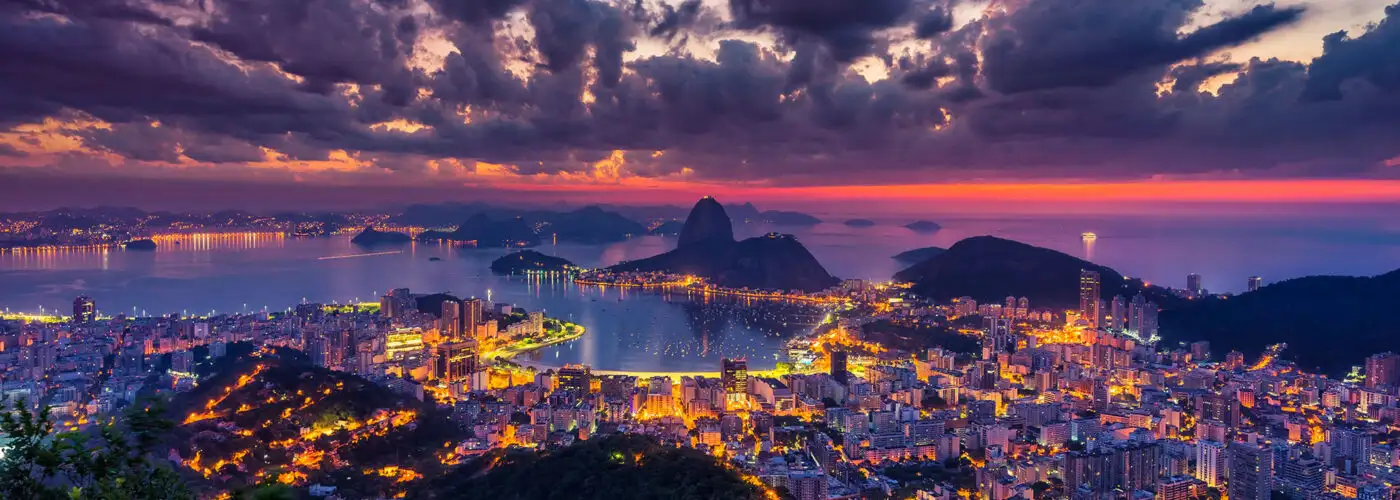
Is Rio de Janeiro Safe to Visit? Warnings and Dangers Travelers Should Know
The Editors
We are the editors of SmarterTravel! Together we have appeared in countless travel publications including ABC News, Huffington Post, Travel + Leisure, USA Today, and more. We dedicate our days to creating and producing expert travel content, including packing tips, general travel advice, destination inspiration, and helpful videos. Follow us across social media on YouTube , Pinterest , Facebook , Instagram , and Twitter or drop us a line to say hi at [email protected]!
Travel Smarter! Sign up for our free newsletter.
Rio de Janeiro, Brazil’s second largest city, is considered the nation’s cultural and economic center, with an abundance of museums and galleries, incomparable shopping, iconic beaches such as Copacabana , and, of course, the epically festive Carnaval. Rio is also home to a travelers’ bucket-list mainstay: the massive, art deco-style Christ the Redeemer statue atop Mount Corcovado.
But is Rio de Janeiro safe to visit? Unfortunately, the Rio crime rate is fairly high. Violent crime is a “frequent occurrence,” according to the Overseas Security Advisory Council (OSAC), while street crimes such as pickpocketing and purse snatching are “a constant concern,” happening all over Rio at all times of year. The 2016 Olympics actually exacerbated the Rio de Janeiro crime rate, though the city did see a reduction in shootings in 2019 .
Rio crime, then, is to be taken quite seriously. “Criminals [in Rio] most often target their victims due to perceived wealth and lack of awareness,” according to OSAC, so it’s wise not to flaunt what you’ve got and always to appear alert and engaged with your surroundings.
If you are considering a trip and find yourself wondering, “Is Rio safe to visit?” read on for important advice on Rio de Janeiro safety.
Tips for Rio de Janeiro Safety
- Is it safe to travel to Rio de Janeiro? That depends on where you go. Areas to avoid in Rio de Janeiro include Rocinha, Vila Mimosa, most of the city’s north zone, its favelas, and their neighboring areas including Del Castilho, Cascadura, Bangu, and Pavuna. Keep in mind, too, that even the safest neighborhoods in Rio de Janeiro can turn dangerous after dark.
- Taking a cab in Rio? Make sure that it’s official and licensed by checking to see that it’s yellow with a blue stripe and red license plates; otherwise, you risk getting into an illegal or pirate taxi.
- Keep away from Rio de Janeiro’s dangerous favelas; tourists who have wandered into these slums of Rio have ended up shot. Know where you’re going at all times, check maps, and don’t go down any unpaved or cobbled streets.
Areas to Avoid in Rio de Janeiro
A key element of being able to stay safe in this iconic Brazilian city is knowing which areas to avoid in Rio de Janeiro, as well as which are the safest neighborhoods in Rio de Janeiro. If you’re looking to sidestep Rio crime, stay away from Rocinha , Rio’s largest favela, where recent drug-related violence has been so severe that the military has needed to get involved.
It’s also wise to steer clear of Vila Mimosa, which is notorious for prostitution , as well as the city’s north zone , its favelas, and their neighboring areas including Del Castilho, Cascadura, Bangu, and Pavuna.
There are also certain areas in Rio that are safe to wander around in during the day—but where things change after dark. These include Centro, where nighttime muggings are common; Santa Teresa, where driving can be dangerous and it’s easy to end up in a violent favela; and Botafogo Beach and Flamengo Park, which are adjacent to each other and have a large population of people living in poverty, so thefts and violence spike at night.
12 Life-Saving Travel Hacks for Your Next Trip
How to Get Around Safely in Rio de Janeiro
How safe is Rio de Janeiro for tourists to navigate? Again, that depends on how you handle yourself and how you opt to get around.
There are lots of taxis in Rio, and using them can be relatively safe, though you’ll want to make sure that any cab you get into is licensed and metered—and that you call a taxi in advance or use a taxi app rather than hailing one off the street. To save yourself the risk of entering one of Rio’s many illegal or pirate taxis , only use yellow cabs with a blue stripe and state-issued red livery license plates, and never agree to pay your fare in advance of your ride, unless it’s at the airport’s licensed taxi desk.
Taking taxis is always preferable to taking Rio’s mini-buses, which host lots of crime and are unregulated. The metro, on the other hand, is considered a safe way for travelers to get around Rio de Janeiro, although tourists should always be alert for petty criminals, as they’re common on all forms of public transit in Rio; keep in mind that they often work in groups. Women should consider using the system’s women-only cars during crowded periods.
Wherever you are in Rio de Janeiro, always keep your bearings, plot all your routes in advance, and know exactly you are—especially in relation to your hotel. If you’re using GPS, make sure that the route doesn’t veer you into a dangerous favela. Don’t dress like a tourist, either—only wear beachwear at the beach, and leave all valuables at your hotel (or at home), bringing along only what you absolutely need.
Most places in Rio accept credit cards, but if you find the need to carry cash, stay away from shady-looking ATMs, using only those that are in reputable locations, like a bank or your hotel. One common form of crime in Rio de Janeiro are “ express kidnappings ,” during which a victim is forced to withdraw money from an ATM machine that they were just seen using, or taken around to different ATMs to withdraw money for the kidnappers; usually the victims are let go after the cash is stolen. This is yet another reason to avoid ATMs if at all possible.
If you’re in Rio to party, that’s great—the nightlife here is some of the world’s best—but proceed with caution and don’t lose sight of the fact that Rio crime is a real concern, especially after dark. Stay in the popular areas, don’t wander off by yourself, watch how many caipirinhas you’ve consumed, and never leave your drink unattended.
Keep in mind, too, that Rio de Janeiro does experience occasional natural disasters, including floods, mudslides, and major storms. If you find yourself in the midst of one of these events, head to higher ground and heed officials’ instructions. It’s also worth noting that the Zika virus is still a concern throughout Brazil , so take every precaution to protect yourself against mosquito bites while in Rio.
Do Travelers Still Need to Worry About the Zika Virus in 2020?
Favelas in Rio de Janeiro
Favelas are Rio’s neglected slums on the outskirts of the city. Violence within them is ever present and growing, thanks in large part to organized crime that centers around drug trafficking in Brazil. Travelers who have accidentally wandered into Rio’s favelas have gotten shot and injured .
Tourists in Rio, then, are advised not to go down unpaved, cobbled, or narrow streets, as these may lead into a favela. Check a map of the city that shows where Rio’s favelas are located (there’s a good one here ), but if you’re unsure, ask at your hotel or inquire with local authorities.
Rio de Janeiro’s government began a “ favela pacification program ” to bring favelas under police control, but results were mixed . Unfortunately, they are still dangerous places with an increasing amount of violent crime, so travelers should steer clear. Though favela tours have become more popular as a safe way to learn about life in these areas, the U.K. government says they are best avoided.
More from SmarterTravel:
- 9 Incredible Brazilian Beaches for Every Type of Traveler
- What You Need to Know About Tipping in Brazil
- 10 Travel Safety Tips You Can Learn from the CIA
—original reporting by Avital Andrews
We hand-pick everything we recommend and select items through testing and reviews. Some products are sent to us free of charge with no incentive to offer a favorable review. We offer our unbiased opinions and do not accept compensation to review products. All items are in stock and prices are accurate at the time of publication. If you buy something through our links, we may earn a commission.
Top Fares From

Don't see a fare you like? View all flight deals from your city.
Today's top travel deals.
Brought to you by ShermansTravel
Greece: 6-Night Athens, Nauplia, Olympia &...

Luxe, 7-Night Caribbean & Mexico Cruise...
Regent Seven Seas Cruises

Ohio: Daily Car Rentals from Cincinnati

Trending on SmarterTravel
Security Alert May 17, 2024
Worldwide caution, update may 10, 2024, information for u.s. citizens in the middle east.
- Travel Advisories |
- Contact Us |
- MyTravelGov |
Find U.S. Embassies & Consulates
Travel.state.gov, congressional liaison, special issuance agency, u.s. passports, international travel, intercountry adoption, international parental child abduction, records and authentications, popular links, travel advisories, mytravelgov, stay connected, legal resources, legal information, info for u.s. law enforcement, replace or certify documents.
Share this page:
Brazil Travel Advisory
Travel advisory october 19, 2023, brazil - level 2: exercise increased caution.
Reissued with updates to Country Summary.
Exercise increased caution in Brazil due to crime . Some areas have increased risk. Read the entire Travel Advisory.
Do not travel to:
- Any areas within 150 km/100 miles of Brazil’s land borders with Venezuela, Colombia, Peru, Bolivia, Guyana, Suriname, French Guiana, and Paraguay due to crime . (Note: This does not apply to the Foz do Iguacu National Park or Pantanal National Park.)
- Informal housing developments (commonly referred to in Brazil as favelas, vilas, comunidades, and/or conglomerados) at any time of day due to crime (see additional information below).
- Brasilia’s administrative regions (commonly known as “satellite cities”) of Ceilandia, Santa Maria, Sao Sebastiao, and Paranoa during non-daylight hours due to crime (see additional information below).
Country Summary: Violent crime, such as murder, armed robbery, and carjacking, is common in urban areas, day and night. Gang activity and organized crime is widespread. Assaults, including with sedatives and drugs placed in drinks, are common. U.S. government personnel are discouraged from using municipal buses in all parts of Brazil due to an elevated risk of robbery and assault at any time of day, and especially at night.
If you decide to travel to Brazil:
- Be aware of your surroundings.
- Do not physically resist any robbery attempt.
- Do not accept food or drinks from strangers.
- Use caution when walking or driving at night.
- Avoid going to bars or nightclubs alone.
- Avoid walking on beaches after dark.
- Do not display signs of wealth, such as wearing expensive watches or jewelry.
- Be extra vigilant when visiting banks or ATMs.
- Use caution at, or going to, major transportation centers or on public transportation, especially at night. Passengers face an elevated risk of robbery or assault using public, municipal bus transportation throughout Brazil.
- Use increased caution when hiking in isolated areas.
- Enroll in the Smart Traveler Enrollment Program (STEP) to receive Alerts and make it easier to locate you in an emergency.
- Follow the Department of State on Facebook and Twitter .
- Review the Country Security Report for Brazil.
- Prepare a contingency plan for emergency situations. Review the Traveler’s Checklist .
- Visit the CDC page for the latest Travel Health Information related to your travel.
International Borders – Level 4: Do Not Travel
U.S. government personnel are not permitted to travel to areas within 150 km/100 miles of the international land borders with Venezuela, Colombia, Peru, Bolivia, Guyana, Suriname, French Guiana, and Paraguay without advance approval from security officials due to crime. Travel to the Foz do Iguacu National Park and Pantanal National Park is permitted.
Visit our website for Travel to High-Risk Areas .
Informal Housing Developments (commonly known as “Favelas”) – Level 4: Do Not Travel
Do not travel to informal housing developments (commonly referred to in Brazil as favelas, vilas, comunidades, and/or conglomerados), even on a guided tour. Neither the tour companies nor the police can guarantee your safety when entering these communities. Even in these communities that the police or local governments deem safe, the situation can change quickly and without notice. While some informal housing developments have clear boundaries or gates, or even names such as “favela”, “vila”, “comunidade”, or “conglomerado”, other such developments may be less obvious, and may be identified by crowded quarters, poorer conditions, and/or irregular construction. In addition, exercise caution in areas surrounding these communities, as occasionally, inter-gang fighting and confrontations with police move beyond the confines of these communities. Except under limited circumstances and with advance approval, U.S. government personnel are not permitted to enter any informal housing developments in Brazil. Read the Safety and Security Section on the country information page and consult the maps on the Embassy’s website for further information regarding favelas.
Visit our website for Travel High-Risk Areas .
Brasilia’s Administrative Regions (commonly known as “Satellite Cities”) – Level 4: Do Not Travel
Without advance approval from security officials, U.S. government personnel are not permitted to travel to Brasilia’s Administrative Regions of Ceilandia, Santa Maria, Sao Sebastiao, and Paranoa between the hours of 6:00 p.m. and 6:00 a.m. (non-daylight hours) due to crime.
Travel Advisory Levels
Assistance for u.s. citizens, search for travel advisories, external link.
You are about to leave travel.state.gov for an external website that is not maintained by the U.S. Department of State.
Links to external websites are provided as a convenience and should not be construed as an endorsement by the U.S. Department of State of the views or products contained therein. If you wish to remain on travel.state.gov, click the "cancel" message.
You are about to visit:
Can You Travel Safety in Brazil? Three Cities and Three Travel Safety Tips
Manaus on the rio negro.
I stepped around a dog sleeping in the shade and then weaved my way through the carts lining the sidewalk. Each cart was filled with trinkets, fish, meat or other various food and wares. Each was covered with a large umbrella that shielded them from the merciless, equatorial sun.
I caught the eye of another shopper, she smiled and moved on. I did a little impromptu street waltz with a few more people as we attempted to move out of each other way in the narrow passage of the street.
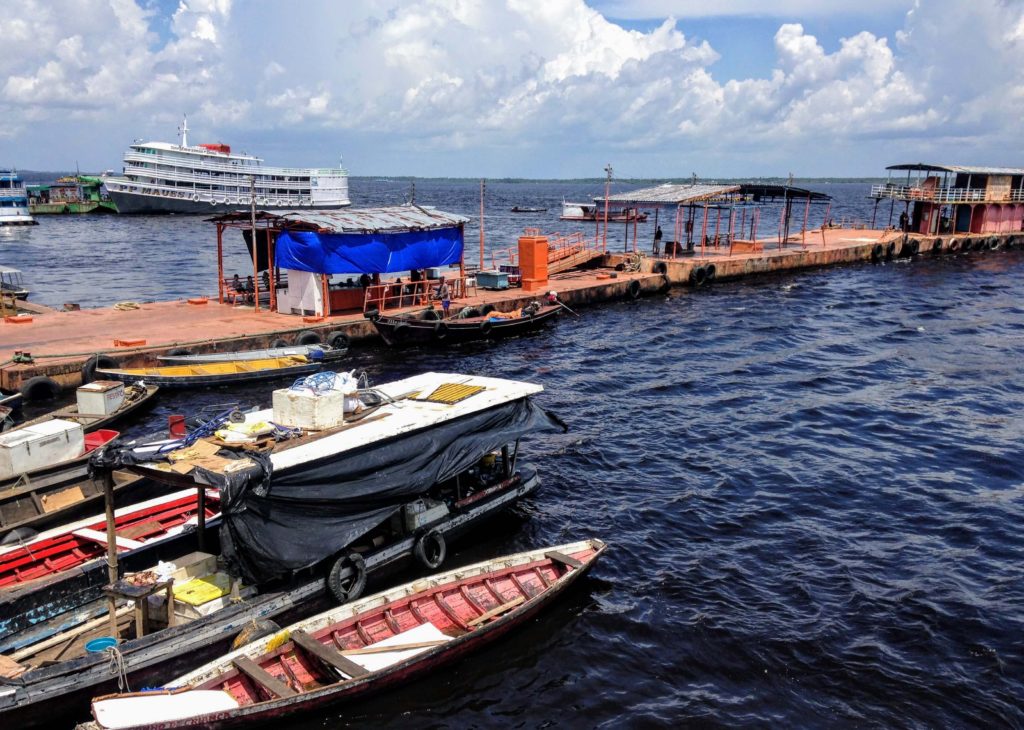
The Shade of a Telephone Pole
We were still a few blocks from the Mercado Municipal of Manaus, the city’s old market that is supposed to have some Parisian influences, and already the heat was approaching unbearable levels. Clearly, shopping in the Amazon is not quite the same as in its online namesake.
We stopped at a cart filled with large Tupperware containers of rice, potato salad, and farofa (toasted cassava flour). Beside the cart, glowing coals cooked skewers of meat. We purchased a plate and waited as the lady prepared it.
A man offered me his chair that he was sitting on under the narrow shade of a telephone pole . I politely declined and told him we were going to walk with our food but thanked him for his thoughtfulness. In another moment someone else squeezes over to let me stand in the shade next to him.

The vendor handed us our plate with a huge smile on her face and an obrigada (thank you) .
As we continued to meander through the market I felt comfortable with the surroundings. Maybe it’s the almost two years of open markets in Latin American that make it all natural to me, but I felt safe.
I pondered this feeling and tried to wrap my head around the danger we are constantly warned about in Brazil. What we would experience in Brazil would surprise us by the end of our stay .
Crime in Brazil
I wrote about some of the danger in our article featuring our stay in a favela in Rio . But I have to honestly say we didn’t “feel” like we were in danger even though we were extremely cautious. The people in that favela were friendly. They all said bom dia , or boa tarde , as we pass on the streets.
Brazilians are friendly and move aside on the street to let each other pass. This is not something that is common in much of the rest of South America. I’m not sure if it is a difficulty with spacial recognition or they don’t quite get that two objects can’t occupy the same space or just that they are totally unaware of anyone else when they walk down the street.
In most countries in South America, it felt like everyone just rams into you if you don’t get out of their way. This is not true in Brazil.
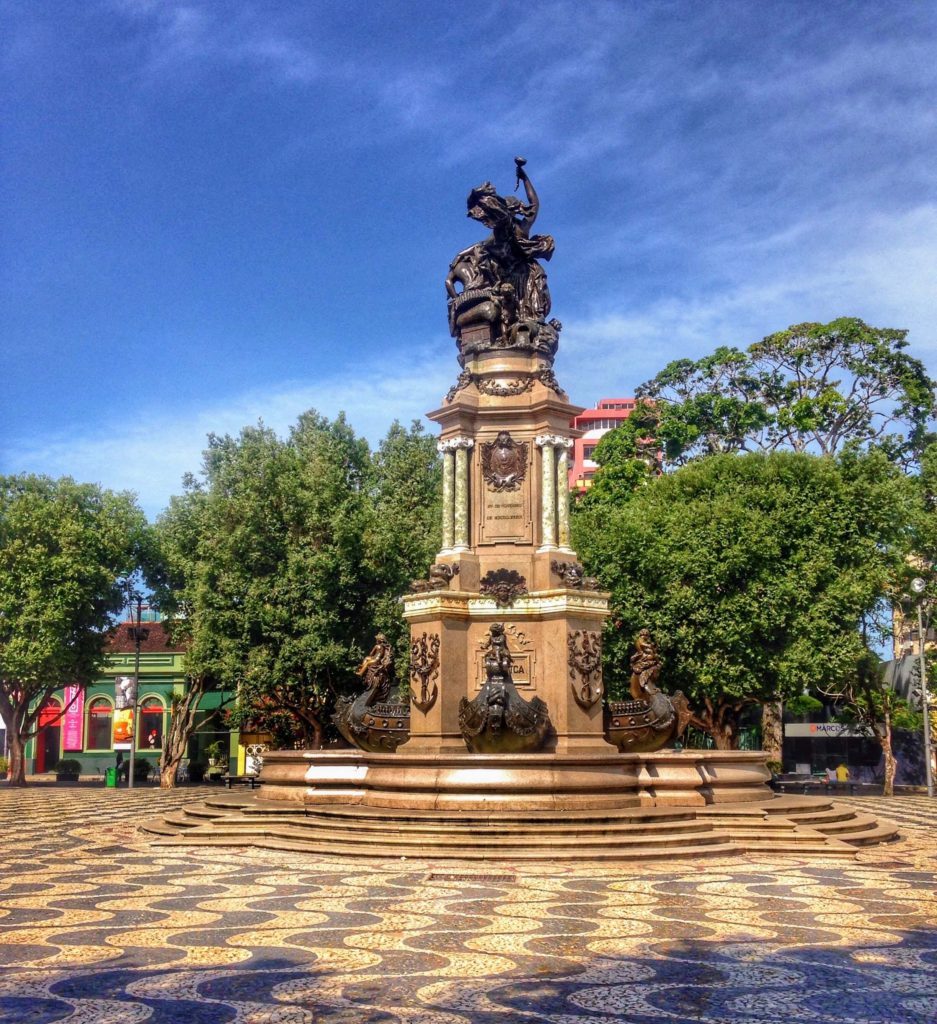
Brazil is listed as the 12th country in the world with the highest homicide rate in 2016 with 29.53 murders per 100,000 inhabitants. A lot of people I’ve interacted with may say, oh but other cities are dangerous, look at Chicago. So to put it in perspective the USA is number 87 on that list with a homicide rate of 5.35 per 100,000.
Brazil has surprised me with its beauty and possibly the most beautiful place in the world resides in her sand dunes. The Rio coastline is also spectacular.
The people here are warm and friendly. They care not that you can not speak Portuguese, they smile and see how they can help anyway. But the numbers don’t lie, neither does the warnings we heed from many of our hosts. So we do take precautions.

1- Don’t wear expensive items.
No worries about our clothes. None of our clothes are name brand and most of them are over 10 years old. I wear minimal jewelry. My ring, purchased in Panama for less than $2, is worn as a wedding band. My earrings were less than $5. I don’t wear any other jewelry.
Before heading out on a walk one day our host in Rio looked to see if I was wearing a necklace. I was not. “Good,” he said, “they will take it right from your neck.”
I don’t carry my phone with me in most places while we are here in Brazil. Trin’s phone is older and will need to be replaced soon anyway, so we carry his. Maps.me is important to know where to go. I’m actually excited to get to Argentina and wear my necklace again and really excited to get back to the USA where I can wear my rings (all two of them).
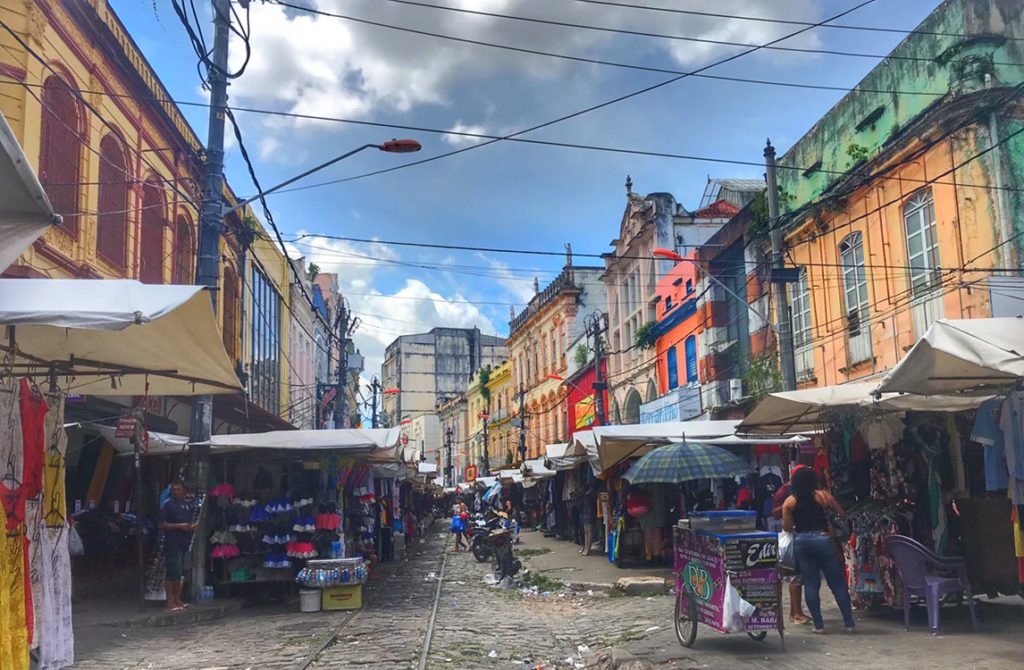
Not only would expensive clothes make us a target in some of the areas we are traveling in they would also set us apart from the people we are trying to connect with. I have always believed that all people are equal no matter where and how they were born or the circumstances they were born into.
There is nothing wrong with nice clothes, but they would not work for us on this current trip. On a different trip, we may need to dress a bit differently. My goal is to dress for the occasion to increase connections, not to set me apart.

2-Be aware of your surroundings.
Besides the don’t walk down any dark dinghy alleys we try to always be aware of those around us. If someone is pacing right behind us we stop and look at something to let them pass. I once had someone pacing me.
Whenever I stopped he would also stop and lean against a building, and where I turned he turned. Finally, I stopped crossed my arms and just stared at him. He finally turned around and went the other way.
We also keep our distance from fights. When we saw the demonstrations in the streets of Colombia with fires burning in the middle of the street we turned around and walked the other way. Things could escalate pretty quickly.

3-Don’t be an easy target.
Trin has installed what he calls an “anti-theft” device in his pocket. He sewed in fabric that the phone sits behind and is velcroed to the outside of the phone. It would not be an easy slide for a pickpocketer.
We also have secret pockets sewed into the inside of the waistband of Trin’s shorts and pants. I have some other secret hiding places for money. None of them would be easy to access by a stranger.
When we are walking around with our packs both of them have a padlock on the zipper ends. It does not protect against bag-slashing, but many crimes are opportunistic, and those are the ones we hope to avoid with these small things.
If you do have to pull out your phone in public wrap your hand around it firmly. Don’t make it easy for someone to snatch and run with it.

An evening in São Luís
After arriving late in São Luís from Lençois Maranhenses we went out in the evening to find dinner at Plaza Nauro Machado. The streets were laid with pavers and the street lights radiated a yellowish glow that gave the place a calm feeling against the fading blue sky. Streamers hung overhead while diners sat around plastic tables strewn all over the sidewalks.
There were street vendors everywhere selling fries and sausages, sodas, wine, and beer. There were a number of people stumbling around drunk, a few of them came over and asked for our beer.
Among the crowd were numerous military police fully outfitted and in bulletproof vests. We could see how things could quickly go bad here.
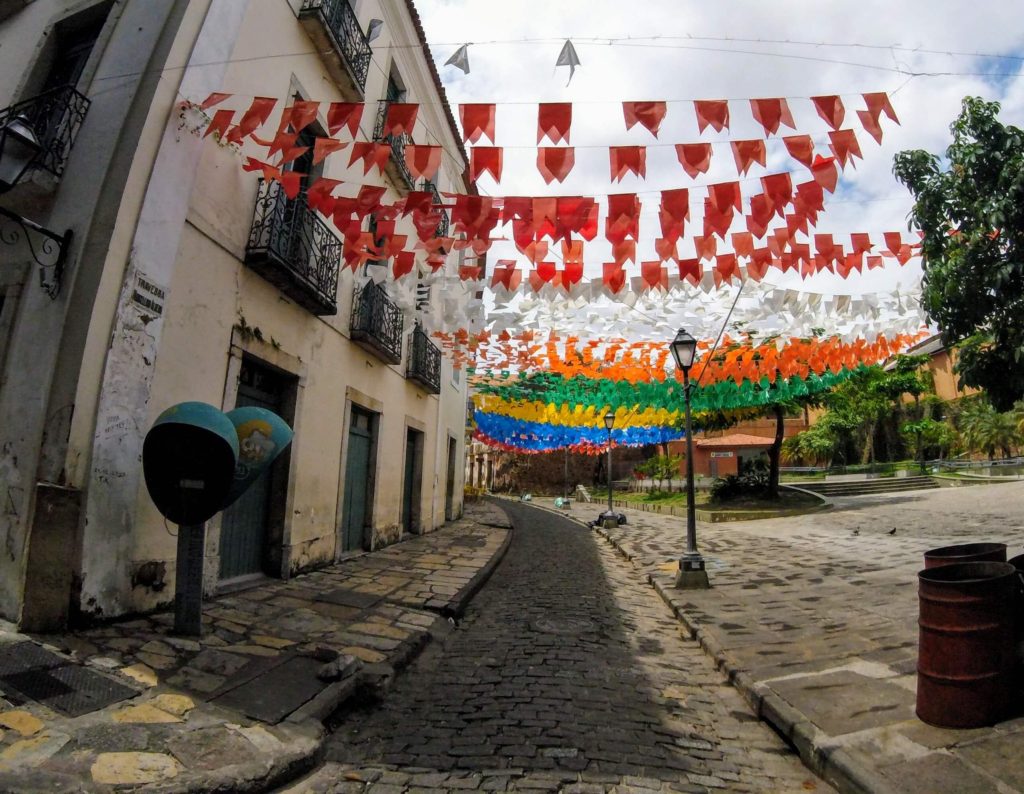
Taunting a beggar
The sound of bare feet slapping on the stones in the street made me turn my head to see one of the homeless men running our direction holding his pants up. A look of distress encompassed his face. Behind him, one of the vendors was following and taunting him.
I stared at the vendor until he caught my eye then gave him a dirty look. I know, real mature, but that ticks me off. Doesn’t the poor guy have it bad enough? No one deserves to be taunted like that. Different circumstances out of our control in any of our lives and could we not have also ended up there?
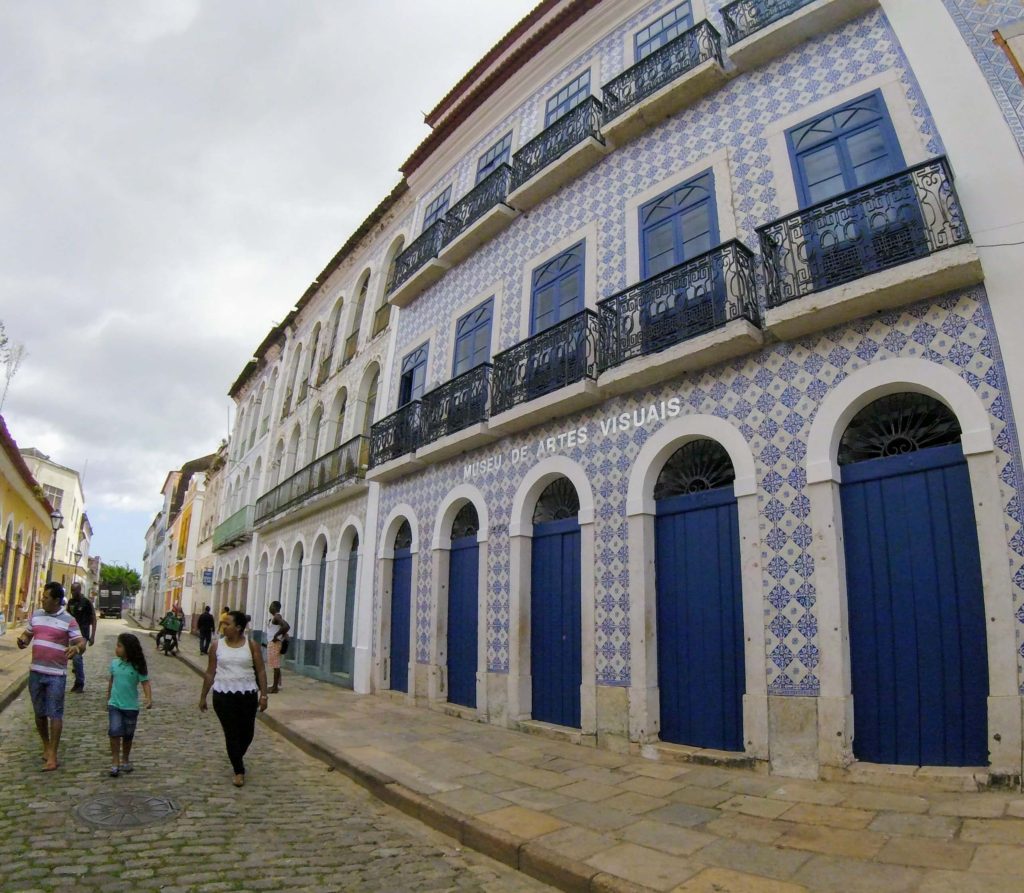
Those who “have made it” love to think that it was all by our own power and certainly most of us have worked very hard to get where we are. If we are really honest with ourselves we would recognize that we don’t control our place of birth or the world around us.
Certainly, we make the best or the worst of the life we have been given but everyone has been dealt a different hand. I’m not discounting our own responsibility for the choices we make and lest you think all poor people are there by circumstance, The Glass Castle is an excellent book to read.
Regardless of where anyone ends up or even why our responsibility is to love them. Show them respect as a human being, they are no better and no worse than we are.
The Park of Belem
Belem was also listed as a very dangerous city in Brazil. We were there only a week and stayed about 4 blocks from the Bosque Municipal Rodrigues Alves Park, a 40-acre jungle is one of the oldest botanical gardens in all of Brazil.
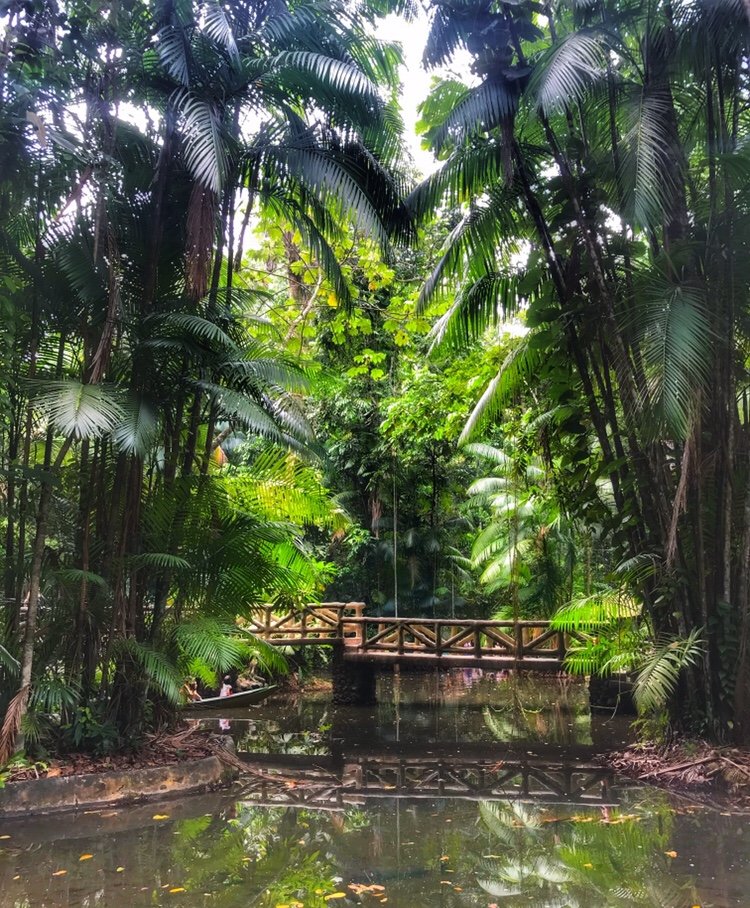
This little jungle is in the center of the city complete with wild agouti dodging across our paths and hiding from us when we approach and monkeys swinging through the trees stealing food from people.
There were monkeys, capybaras, and other animals that roamed freely in the park, and beautiful trees and plants were all delightful to see. The park, however, has a few caged animals. I have determined personally to never visit a zoo again and did not know that this park also had caged animals.
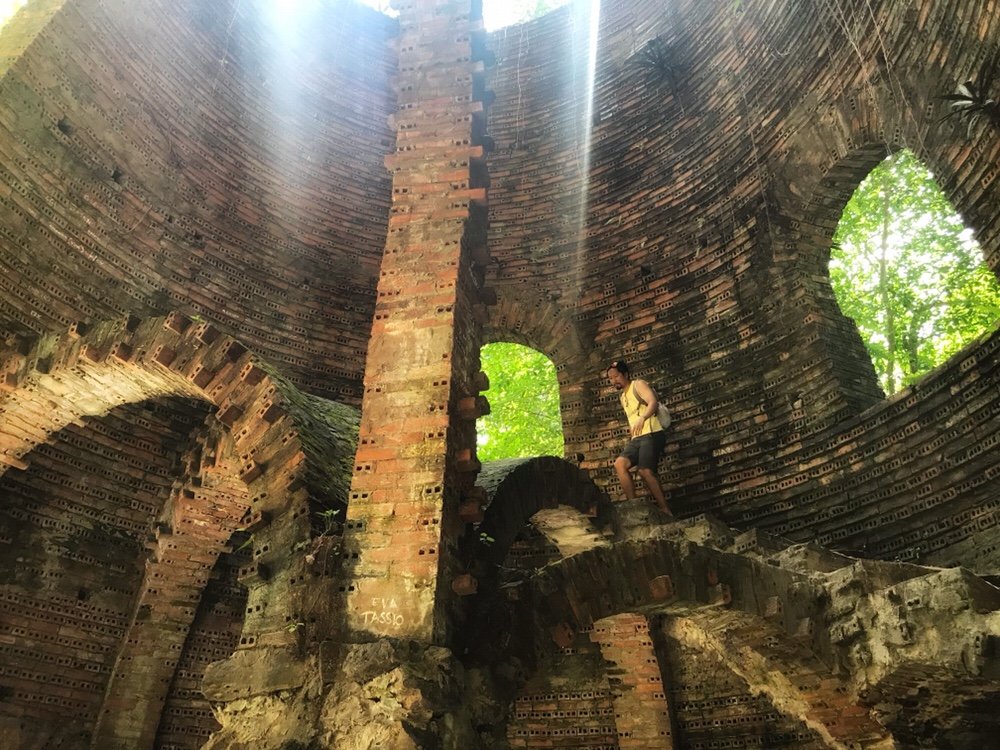
I watched the caged monkeys and my heart broke for them. They paced back and forth then occasionally would come over to the fencing looking for ways to unhook the wire then they would smack it and shake it in frustration. They were not meant for such a small space and they don’t deserve to be in jail just for our amusement.
I would love to see all zoos replaced with rescue centers like the Jaguar rescue center that helps rehabilitate wounded animals and then releases them back into nature if they are able to survive on their own. Sure they hate to be caged too, but I think they get it. After all one of the released monkeys from the Jaguars center came back after being released to show the staff her new baby. That’s beautiful.
Just an Assault
In the evening we were enjoying the breeze from our 10th-floor balcony. The phone in the kitchen rang and our host went to answer it. Then he came out onto the balcony and pointed down to the street where there was a back up of cars. He told us that there was an armed assault just then. Trin thought he had heard two shots, but it was hard to tell with the noise levels. The ambulance soon arrived and all went back to normal.
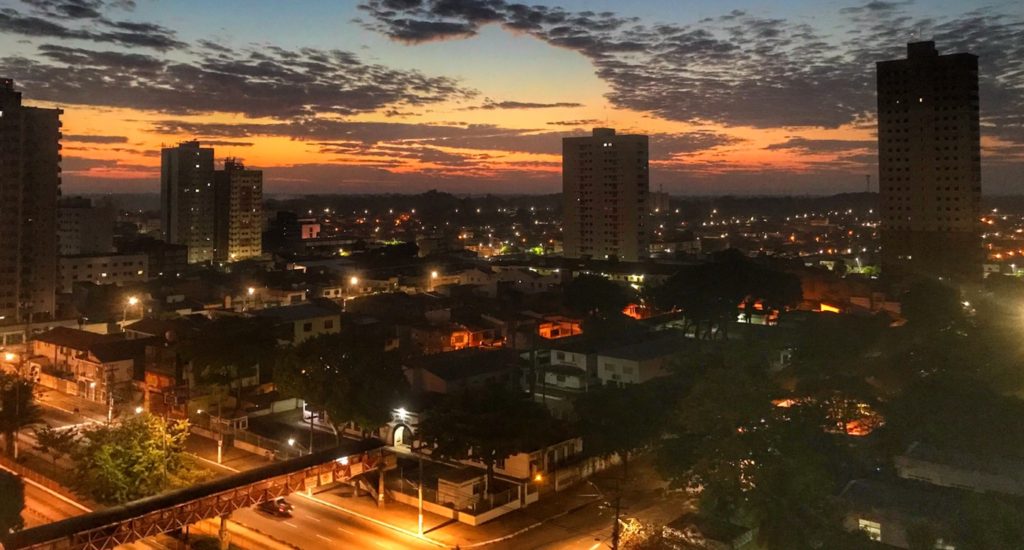
The reminders are all around us to stay cautious but there is even more evidence that the majority of the people here are truly wonderful people who care about others. It only takes a small percentage to give a place a bad reputation.
A good reminder for every single one of us to do our part to smile at the people around us and be the change we want to see in the world.

- Click to share on Facebook (Opens in new window)
- Click to share on Pinterest (Opens in new window)
- Click to share on Twitter (Opens in new window)
About The Author
Bonnie Truax
6 thoughts on “can you travel safety in brazil three cities and three travel safety tips”.
Very interesting blog. You are right! We need to love people regardless of their circumstances. Not everyone who is poor is there by choice. Circumstances can happen which force people into certain situations.
Exactly, my parents were poor by choice for good reasons but they taught me great values
Great post. As they say in Colombia “don’t go around showing your papaya’s”!
I remember that. So true 🙂
Love the way you write Bonnie – I felt like I was there experiencing the sights and sounds of Brazil.
Thank you! Your pictures of Norway are also enticing me. It looks like such a beautiful place.
Please share your thoughts below Cancel reply

- Privacy Overview
- Strictly Necessary Cookies
This website uses cookies so that we can provide you with the best user experience possible. Cookie information is stored in your browser and performs functions such as recognising you when you return to our website and helping our team to understand which sections of the website you find most interesting and useful.
Strictly Necessary Cookie should be enabled at all times so that we can save your preferences for cookie settings.
If you disable this cookie, we will not be able to save your preferences. This means that every time you visit this website you will need to enable or disable cookies again.
- English (EN)
- Español (ES)
- Português (BR)
Is Brazil Safe? Crime Rates & Safety Report
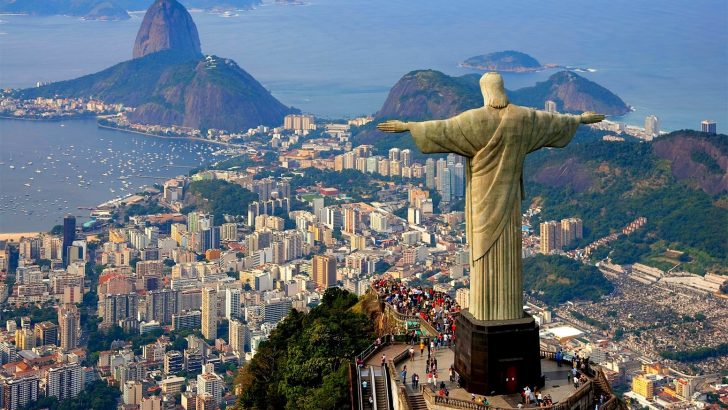
- Brazil : Safety by City
- Belo Horizonte
- Florianopolis
- Porto Alegre
- Rio de Janeiro
Brazil, the largest country in South America and the fifth-largest in the world, is probably the most famous one in the entire continent.
A dream for football lovers, since it’s the cradle of football tradition and a paradise for fans of festivals, music and partying, this country hosts around 6 million tourists each year.
The vibrant urban life is more than obvious in São Paulo, and the spirit of this joyous country can be felt at the famous Carnaval in Rio de Janeiro, as well as those in Salvador, Recife, and Olinda.
You can experience the cultural energy of Pernambuco and Bahia, and, of course, immerse yourself in the wilderness of the Amazon rainforest and the world-famous Iguaçu Falls,
There is so much to see and do in Brazil, just concerning nature, that you probably won’t have time to do it all during one trip.
There’s the Amazon River Basin that holds more than half of the world’s remaining rainforest, and as much as 60% of it lies in the North of Brazil – it is truly a natural sight worth seeing, a mesmerizing proof that nature itself is a wonder.
Brazil’s waterfalls of all shapes and sizes are a different story, with Iguaçu Falls stealing breaths in eastern Parana.
These are among the most spectacular waterfalls in the world.
- Warnings & Dangers in Brazil
OVERALL RISK: MEDIUM
Brazil is somewhat safe but you should take precaution on the streets of major cities, and after dark. Be wary of pickpockets and bag snatching and keep your valuables safely by your side. Never carry all your money in one place or leave your valuables in plain sight in a car or at a beach when swimming.
TRANSPORT & TAXIS RISK: MEDIUM
Public transport is generally safe in Brazil, though it has its dangers. Be careful on buses and bus stops since that's where pickpockets and petty thieves operate.
PICKPOCKETS RISK: HIGH
Pickpockets are a common occurrence on the streets of Brazil and tourists are recommended to remain vigilant at all times when on the street. Make sure you don't flash your valuable possessions on the street, or better yet, leave them in your accommodation. When in Rio, be extremely aware of your surroundings.
NATURAL DISASTERS RISK: MEDIUM
There are some natural threats in Brazil, such as dangerous insects and diseases they carry, and riptides. This is why it is important never to go swimming alone.
MUGGING RISK: MEDIUM
Mugging is not altogether uncommon on the streets of Brazil. In such a situation, hand over all your possessions immediately and do not resist. Avoid poorly lit and deserted areas.
TERRORISM RISK: LOW
Although there haven't been any terrorist attacks in Brazil's recent history, they shouldn't be ruled out so remain vigilant at all times.
SCAMS RISK: HIGH
Scams are very common in Brazil, so double check your change, never pay anything upfront and negotiate everything in advance. Be very careful around ATMs and be wary of people trying to distract you. Also, be careful around children as they're probably trying to distract you too - they are skillful pickpockets.
WOMEN TRAVELERS RISK: MEDIUM
Traveling to Brazil is generally safe for solo women, but bear in mind that you should always hike in company, never alone. Be especially careful in the North East and the remote area of Amazon. Stay away from poorly lit and deserted streets and areas and from people that are visibly intoxicated or under the influence.
- So... How Safe Is Brazil Really?
Brazil is one of the most criminalized countries in the world, and therefore, it is not the safest choice.
But if you keep your wits with you and follow rules of precaution, you will minimize the chances of something going wrong.
The golden rule in Brazil is never to wear bling in public, or anything gilded, diamond-encrusted or oversized.
You are advised to always keep a small amount of cash with you (preferably cleverly hidden, concealed in a money belt under your clothes, in secret sewn-in pockets, or in your shoes) and to avoid carrying bank cards.
If you go out shopping, it is smart to return your purchases to your accommodation before you head out to dinner or to a bar.
The statistics when it comes to violent crime in Brazil do not offer a sunny prognosis: though the cities of Rio, São Paulo, Recife, and Salvador are ridden with crime throughout the year, it skyrockets when tourists arrive in hordes during Carnival and festive holiday periods.
Never assume that you’re safe if you remain on-the-beaten-path.
Tourists are walking targets, be it day or night, in tourist-frequented areas including Copacabana Beach, Corcovado Mountain, Tijuca Forest, and Leblon.
Pickpockets have a bunch of creative diversions to distract you long enough for them to steal your wallet.
Never carry all your money in the same place and keep your belongings close to you at all times.
- How Does Brazil Compare?
- Useful Information
Brazil has a reciprocity standard when it comes to issuing visas and the rule goes like this: whatever restriction or visa prices apply to Brazilians when traveling abroad, also apply to foreigners from these countries. If you are not sure about your visa status, visit www.doyouneedvisa.com which will let you know whether or not you need visa based on your nationality and the country you want to visit.
Brazilian real is the official currency in Brazil. ATMs are available throughout the country, and are the easiest way of getting cash in big cities. They are also available in many smaller towns, but they sometimes don't work for non-Brazilian cards.
Located within the tropics, Brazil is wonderful to visit all-year round as its temperatures rarely go below 20°C with the exception of mountainous areas and southern regions. The climate varies in Brazil, from hot and dry in the inner areas to humid and sticky in the tropical Amazon jungle rainforests.
São Paulo/Guarulhos–Governador André Franco Montoro International Airport, also known as GRU Airport, or simply GRU, is the primary and busiest international airport serving São Paulo. It is located in the Greater São Paulo area.
Travel Insurance
Just like anywhere else, we recommend getting travel insurance when traveling to Brazil, since it covers not only the costs of medical problems, but also theft and loss of valuables.
Brazil Weather Averages (Temperatures)
- Average High/Low Temperature
Brazil - Safety by City
Explore brazil.
- 10 Cheapest Places to Live in Brazil
- 10 Best Beaches in Brazil
- 10 Most Dangerous Cities in Brazil
- 10 Best Zoos & Aquariums in Brazil
- 13 Most Beautiful Castles in Brazil
- 15 Best Flea Markets in Brazil
- 16 Pros and Cons of Living in Brazil
- 10 Safest Cities in Brazil
- Top 7 Brazilian Cocktails You Should Try
- Where to Next?
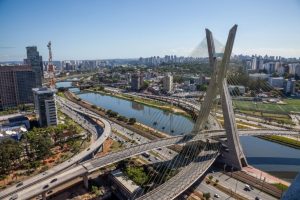
42 Reviews on Brazil
Big fall from grace.
I just want to say that the only reason terrorism is low on this rating is because it is out of their reach. Brazil is one of those places that are beautiful to visit for historical reasons but it just is not safe. It gets worse each year too. There is crime in all the streets and if you travel alone, you will end up having to look over your shoulder the entire time. Hardly enjoyable.
I tend to disagree with you. Brazil isn´t safe in some places like all countries. Go to favelas for exemple isn´t a good idea in any place of the world but when you go to christ of redeemer for exemple is all safe. São Paulo is way saffer than Rio but in my opinion Rio is the best city to visiti in the whole Latin America.
Very dirty cities, racist people, violent and extreme poverty overall
Rafal from Brazil “tend” to disagree about an honest opinion about his country… who would have thought?
Rafael from Brazil lives in Brazil. I can assure you he knows better than you about the country! 😉
As you point out Rafael is a local and therefore less likely to be targeted than a tourist.😉
Rafael, thank you I’m traveling to Brazil for the first time in April. I will stay at cocoabana beach for a few days then travel around the country. any recommendations on traveling to other cities
I’m Brazilian and I say that tourism in Brazil is very dangerous! You can’t be too careful, you can’t relax security at any time.
Use common sense and stay safe
Moved to Brazil about a year ago, have travelled along coast and in interior. Mostly feel safe here, but I always take the precautions normal for any big city – avoid display, don’t wear flashy jewellery or walk along the street carrying your new phone visibly, don’t go to dodgy areas at the wrong time of day. The landscape is beautiful, there are amazing and well maintained national parks with waterfalls, panoramas and terrific hiking. Brazilians are mostly friendly and courteous.
How did you move there and where did you move I’m looking to move there?
I won't be going there!
My family moved from Brazil to Canada when I was a baby. I hardly remember the place. I wanted to visit and my family wouldn’t stand for it. They said they left for a reason and it is way worse now than when they left. Needless to say, I will take their word for it and go elsewhere.
So you’ve never been to Brazil and yet you have an opinion, you know what opinions are like?
Is bad too much
It was safe before now is medium safe is not good at all
Regret going
Your family is completeley right, going is a waste of time and extemely dangerous.
Be smart when traveling
Why are you taking your time here to comment poorly about the country on every post? What happened to you there? I’m curious. Brazil is huge, a continental country. There are good things and bad. If you are from a first world country where anyone can freely walk at the streets at night with no fears whatsoever, don’t go there. But if you know how a big city works, that are places and behaviors you should avoid, no problem. Minimize your risks by not using blings and enjoy the beautiful country it is
It was safe before now is medium safe the is not good at all
Safe if you go to the right places
I have been to Brazil 4 times, and I partially agree with this article. It is mostly safe, but there is a relative risk of danger, mostly from thieves. However, if you go to the right places, it is very safe, and there is little to no danger- also, criminals tend to not target tourists. I would recommend going to Brazil with someone from the country, so that they can advise you with the right places to go. Lastly I would add that you should be careful driving in Brazil, as lorry drivers in particular sometimes don’t drive completely safely-especially on motorways. Go, and have fun, if you’re careful you will come to no harm.
If you want to be a World Traveler pay attention to your surrounding
Just an observation of your threads. I have spent the last 2 years on 4 trips averaging 60 days for each trip in Brazil. I live in Florida. I grew up in Miami, Florida in the ’80s-’90s. Back then crime back then was horrendous. Oh, and New York is way up there I would say like more Rio today. My friends would as me if is it dangerous. I would reply well at the farm 30 km south of Vitoria No, not at all. In Vela Vehla I felt safer than anywhere I have ever visited. In Vitoria in the city yes pay attention to your surrounding as I do anywhere I go. Some Americans walk around anywhere with no clue what “situational awareness ” is! What does that mean? Scan your surroundings. If you think you’re a baller with your Rolex and big gold chain you will probably get robbed or maybe kidnapped for $10,000. Also where you are, and what time, don’t walk alone like anywhere else in the world. There are crimes but no active shooters, It’s so nice we are building a home in Brazil.
Awful place
It’s really funny that the ones who “tend” to disagree are, of course, brazilians.
It’s extremely difficult to find people who had not been robbed or assaulted, unless you go to small and quite ugly cities with nothing to do or see (they’ll tell you there are things to do but there are not! beware! you didn’t cross the ocean for that). Also, a lot of white brazilians are very very racist (and most of them wouldn’t be considered white in north america).
Finally, unless you go for the beach and gals (careful, most of people are overweight in big cities) you will find all major cities very dirty, full of graffities (even in higher floors of buildings), blocks and blocks of abandoned buildings, tents with homeless in every park… it’s really disgusting.
Oh wow, you are incredibly disrespectful. Good thing you didn’t like it here, please don’t come back.
Food had salmonella on it
Unsafe and they are destroying the only one nice thing they have: landscape
JUST DON’T GO. YOUR LIFE IS AT RISK IN EVERY WAY
Too many pickpocketers at best
Not magic at all it’s VERY DIRTY at least all main tourist destinations, and full of graffiti and homeless. Plus people are kinda rude if you are foreigner and not blonde.
Hell on earth as a group of women backpackers. Do not recommend, plus police is the most corrupted in South America by far according to our experiences.
Disappointing, a new Turkey
Yes, most major cities are very violent, whether targeting tourists or not. And countryside not worth visiting, though…
But, what a resentment, uh? I would even think you spent a lot of time among Brazilians or be one yourself. BR is such a racist country, yet many southern Europeans are not considered white either in a Nordic-centred POV.
Too much jungle
Very nice apes
It’s ok! Not that bad as they say. I strongly recommend trying a delicious dish of traditional Brazilian coussine called “Monkey Soup” or Sopa Do Macaco in local language. Google it.
Very beautiful country with an amazing culture, it is pretty dangerous though. Haven´t felt safe in any moment. Without the danger Brazil would be paradise and I would still recommend going.
Don't be spoiled!
I am pretty sure the people complaining this much about the country being dirty and dangerous have all just visited big cities like Rio and São Paulo. People saying the countryside isn’t worth visiting, are you kidding me?? The absolutely beautiful and amazing mountains, the untouched forest we have in so many places, the friendly people and nice food, the amazing ecosystem in general are all unworthy of your holy presence? And we’re talking about a country with absolutely divine beaches in cities like Arraial do Cabo, Buzios, Ilha Grande… and these places aren’t dangerous, at least not nearly as dangerous as people in the comments are making it out to be. I’ve lived in this country for over 20 years and have never been robbed, neither have my parents. I’ve lived in big and small cities. You just have to have some common sense and it will not happen. If you’re unsatisfied please request that the first world countries some of you come from stop interfering with our politics so maybe we can grow economically.
YOU’RE GOING TO BRAZIL
Come to Brazil you will love it!
I live in the USA and I believe that many cities in the USA are more dangerous than any city in South America! The cities gangs and thieves , the White Supremacists, the KKK the Qnon and the racism are high. Brazil population in general are very welcoming and they know how to party and enjoy life! The food is great and the music and arts and sports superb! Millions of people visit Brazil and many more move to live there. I being visiting Brazil since 2005 and had never had been exposed to any crime or violence!
First of all racism is at an all-time low in the US. In Brazil it’s higher, and most Brazilian cities are in the top 50 all of them being In a worse position then American states, gun battles just don’t randomly happen in America like in Brazil, the most dangerous city in Brazil is the 8th most dangerous in the world while the most dangerous city in America is the 40tg so don’t make me laugh, do not compare Brazil to America. Brazil is in a worse place politically, economically, and dangerous.
Obviously paranoid—and I speak as an African American—gangs yes; kkk, qnon???!!! Been watching too much conspira-fantasy cable-Tel-Lie-Vision!!! Not saying R.ism isn’t real but the hair on fire race hustling in media is almost just as odious especially when innocent people are labeled, branded, castigated and punished (cancelled for no reason at all).
Racism is actually lower in USA than most countries, look it up.
I’m from Canada and that’s even more racist than USA.
Brasil, o paradiso na Terra!!!!
I’m an American citizen and have traveled around the world; I lived in São Paulo, Brasil with my family for the happiest years of our lives and I will not hesitate to relocate permanently to São Paulo, Brasil; we speak several languages fluently English (naturally), Portuguese, Spanish and a smattering of others; we thoroughly enjoyed the people, the year-round weather, International cuisine, and ALL things related to Brasil.
Eu nao sou brasileiro mais o meu coracao ficou sendo mais brasileiro do que muitos dos Cariocas e Paulistas e outros mais.
Para nous, Brasil eis o País mais semelhante ao paradiso. Si eu pudese, voltaria pea la’ ONTEM!!!
Could be better, but sadly is not anymore.
Thank you for your opinion Jose! I’m a Brazilian that moved to Canada with my wife and kids 4 years ago. I love Canada so much that makes me not even think about living in Brazil again. I had problems with security a couple of times in my life living there, and I’m talking about 37 years. Yes, Brazil is a BEAUTIFUL country! Yes, Brazil has an amazing culture and people. But some aspects make (sadly I’m talking about the crab culture and our bad politics) the country deteriorate more and more every year. Still, I have Brazil in my heart, all my family still there. But I can live there anymore, for me does not worth it. I used to say that Brazilians that still are living there today, and being VERY generalist, are like frogs in a saucepan. They don’t feel the heat anymore and when they figure out is too late, they die. If you want to visit the country go, but be careful, and everything will be fine. But I will not suggest living there anymore.
Don’t Go Brazil or you going to have a lot of lag in the lounge, trust me I know some brazil players that are very laggy
It can be an amazing place but it has it’s dark side
Like someone already said Brazil is safe if you go to the right places. The favelas should be a no-go zone as the poverty there will drive people to do all sorts of stupid things. Thieves are present in all crowded areas so watch your pockets. I agree that Sao Paolo is safer than Rio although Rio is a beautiful city. It’s best to go to Brazil in groups of at least 4 people and just avoid the bad areas. Doing so will result in a great vacation as Brazil has so much to offer.
If you rent a car or drive your own, be careful as some drivers here have nothing in common with the rules of driving. Keep your eyes open and try to avoid overcrowded roads if/when possible.
As a woman, I would never go here alone. Last time I was there we were 7 people and I didn’t feel unsafe. Even when I saw a small group of pickpockets I wasn’t afraid as we had 5 guys with us. But it’s clear that the poverty in this country does “encourage” some people (even kids) to try and steal money or things. It’s always best to keep a close look on your belongings and not waver money, credit cards or your phone around as someone may steal it.
As for where to go, there are so many amazing destinations. The Tijuca National Park for example, is beautiful and here you will find the Cristo Redentor statue. Seeing this in pictures or even on video is nothing, just wait until you are here! It’s so big and if you look down from there, the view is absolutely breathtaking! And the park is so fantastic, with countless birds, springs and waterfalls.
The Iguacu Falls is also something you don’t see everywhere. Some of the falls are 100+ meters high and they mark the meeting point for Brazil, Paraguay and Argentina. The best view is from the Brazilian side but you can also go a bit into the Argentinian side for some different views.
There are many other interesting places that one should visit if they have the time. Pernambuco Beaches, the beautiful art museums of Sao Paolo, Belo Horizonte, Ipanema, Copacabana.
Too much poverty
DO NOT TAKE YOUR NEW IPHONE TO THE BEACH IN RIO IT WILL BE SNATCHED. Bring a cheap back up phone or no phone at all at the beach or when walking in the streets.
Lovely, don't let the fear get to you
There’s absolutely so much to do in Brazil, and the “imminent danger” is absurdly overstated. Don’t let the bad fame get to you. Watch vlogs from small Youtube channels that went there. You can stay in that country for 90 days till your Visa expires and you will still have so much to do.
It is very unlikely anything happens to you, and still, if it does it probably will be just a pickpocket snatching your wallet on a city. Tourists are not targeted at all, most crime apparently happens in poor neglected neighborhoods.
I’ve never been to Brazil, but am interested in Candomble. I’ve read much about it, and have met practitioners here in St. Louis, Missouri. U.S.A. Can anyone commenting here offer insights on this fascinating faith, or better yet, relate some personal experience?
Love the people and culture. Be respectful and you should be fine!
I have been to Brazil 3 times, I fly into Salvador, Bahia. All my experiences in Brazil have been excellent. I tell you why. It is because I respect their country and their culture. On top of this I go with the flow, which means I am able to meet people easily. I have made excellent and close friendships in Bahia state. I have been rewarded with seeing the real Brazil and that is why I goto Brazil, to be a part of Brazil, to try and fit in. Yes my nickname to my friends in Brazil is “Gringo Louco” and that is fine, it does not bother me in the slightest. I am laid back and just go with the flow. I think this is where a lot of people go wrong in Brazil, is they go out their, you can tell a Brit when you see one or an American. Brits are red from sun burn and they just stand out and that makes them a target. Americans tend to be blinged up and loud mouthed. All of this attracts the wrong type of people, no matter where these types visit in the World.
Me, well I am lucky to be Portugues, Maori bloodline, I am olive color skin, I speak some Portugues and given the right circumstances, when around my friends in Brazil, I feel integrated and no one is looking at me, no threats it seems, because I dont look like a tourist, because I have friends and go to places regular tourists will never be able to go. I have a friend that lives in a favela in Aracaju. I have stayed there, it did not bother me in the slightest. I felt welcomed and again, I was with friends who know what is right and what is wrong. Out of respect that evening I was in Aracaju, I stayed at my friends place, even though another friend had booked into a hotel and was surprised I was staying at my friends place in a so called Favela. Although it is not like a Rio or Sao Paulo favela, in all honesty. But again, I was not complacent, I am respectful of other countries rules and again, with a friend or two, you just look like one of the locals.
I love Brazil, I am in particular fond of Bahia state. It is laid back, the beaches are amazing, the people in Salvador are exceedingly friendly from my experience and because I have made friends I end up going to their houses for lunch and dinners, going to hidden beachside restaurants that the regular tourist would never know about unless you have Bahian friends, etc, etc.
Maybe I am lucky when I travel, because I like to meet new people, I am laid back and I respect the culture. This is why I do not have trouble I think. Not being frightened, but keeping your wits about you, means you are more likely to blend in.
Personally, I goto places like Bahia to get away from British people who I find to be obnoxious and arrogant. In Bahia, this place is not for them, it is too risky for them probably, because they do not respect the culture, or very few do, so they stand out. Being red you stand out, even in the South of Brazil, Brits just stand out.
So no I love Brazil, its people, I feel welcome and even though I am olive color skin, I have never experienced any racism in Brazil. I know white and black people, it does not matter to me. That mentality helps you to get along.
Share Your Experience Cancel reply
Your Review
Title of your review
Article Contents
- Overall Risk
- Transport & Taxis Risk
- Pickpockets Risk
- Natural Disasters Risk
- Mugging Risk
- Terrorism Risk
- Women Travelers Risk
- Weather Averages (Temperatures)
- User Reviews
- Share Your Experience
Popular Destinations

Safety Index
Recent reviews & comments.
- Stanley Marshall on Truth or Consequences
- Danny White on Truth or Consequences
- Harold Smith on Pipestone
- Michael Gray on Pipestone
- Sam Hilton on Belleville
Popular US States
- Pennsylvania

IMAGES
VIDEO
COMMENTS
5. don't leave your valuables unattended to. Never leave your valuables unattended to in Brazil. This includes at coffee shops where you may have your laptop or iPad out while going to the bathroom. It's not to say that the people around you are bad or won't watch your things when you ask, because they will.
6. Safety should be top of mind in urban areas. Crime is a widespread issue throughout Brazil, especially in large cities and the favelas usually located in the city outskirts. Favela tours are possible, but the business is controversial as many people believe it to be exploitative and unethical.
Use sunscreen and drink lots of water. A tan is a wonderful temporary reminder of travelling to exotic lands; blisters and red skin aren't. The heat in Brazil in summer is intense and the sun is immensely strong. Rio de Janeiro sees temperatures of up to 50 degrees celsius.
With a population of 210 million, and such a large wealth gap, societal issues are inevitable. However, there are various measures you can take to limit your chances of trouble and stay safe to ensure you get the most from your trip to this colorful, culture-rich country. COVID-19 safety measures in Brazil. Risk of theft in Brazil.
Be mindful of this and other common travel scam. Always stay vigilant when other people approach you and stay on your guard in crowds. 11. Don't walk around at night alone - If you have to, avoid city beaches, parks, and empty streets. Generally, even local Brazilians don't walk around much at night.
Staying Safe in Rio: 8 Essential Tips for Travelers. Despite growing concern about safety in Rio, travelers continue to flock to this incredible seaside city. Here's everything you need to know to stay safe. Is Brazil safe for travelers? Here's our help, advice and support for planning a successful trip and traveling safely in Brazil.
Take a taxi, even for short trips, and stick to well-lit streets if you're trying to find one. If you're in a crowded place, be aware of your belongings. At the Lapa street parties or during Carnival, groups of kids often swarm tourists. If this happens, keep your hands in your pockets or hold your bag to your chest.
4. Take a Travel Water Bottle. It comes as no surprise to many that Brazil is a seriously hot country. Therefore, travellers will need to make the effort to stay hydrated. Although tap water in Brazil is officially safe to drink, this is disputed by locals and travellers alike - especially in locations near the coast!
Given Brazil's sheer scale, any successful trip must begin with a thorough planning process. To that end, we've put together 15 essential Brazil travel tips, covering health and safety, money management, cultural adjustment, and more to help you get the most out of your experience.
FCDO travel advice for Brazil. Includes safety and security, insurance, entry requirements and legal differences.
Brazil is also an importer of cocaine and is part of an international drug trafficking route, so there are lots of gangs - and poverty - relating to that. On the 2020 Global Peace Index, Brazil ranked 126th on a list of 163 countries. So in terms of general peace, safety, security, it's not so hot.
The important safety numbers for Brazil are: 2: The State Department's safety level for Brazil, which equates to "Exercise Increased Caution.". Countries are rated on a four-level basis, with 1 being "Exercise Normal Precautions" and 4 being "Do Not Travel.". 29: Where Brazil finished in Berkshire Hathaway Travel Protection's ...
Staying in good hotels, travelling by comfortable buses or planes and not stinting on the extras is likely to cost you around R$400 a day. The Brazilian currency is the real (pronounced "hey-al"); its plural is reís (pronounced "hey-ice"), written R$. The real is made up of one hundred centavos, written ¢.
But alongside these images, there's often nagging safety concerns about this city. Yes, Rio de Janeiro is safe. However, the perception of Rio as a city where chaos reigns is a dramatic overstatement. Sure, Rio isn't a stranger to challenges like petty theft, but violent crimes are not as common as one might fear.
Brazil's metro and subway. The metro is one of the easiest ways to get around major cities like Rio and São Paulo. Fares are around R$3.50 - R$3.80. If you plan to use the metro often, there are rechargeable travel cards you can purchase. The metros are generally cleaner and safer than traveling by local bus.
Road safety. Brazil has one of the highest road accident rates in the world. ... Avoid non-essential travel. Your safety and security could be at risk. You should think about your need to travel to this country, territory or region based on family or business requirements, knowledge of or familiarity with the region, and other factors. ...
What You Need to Know About Tipping in Brazil; 10 Travel Safety Tips You Can Learn from the CIA —original reporting by Avital Andrews. Travel Smarter! Sign up for our free newsletter.
Brazil Travel Advisory. Reissued with updates to Country Summary. Exercise increased caution in Brazil due to crime. Some areas have increased risk. Read the entire Travel Advisory. Do not travel to: Any areas within 150 km/100 miles of Brazil's land borders with Venezuela, Colombia, Peru, Bolivia, Guyana, Suriname, French Guiana, and ...
São Paulo can be safe and it can be dangerous. Make sure you keep everything in a closed purse close to your body or in the front pocket at all times. Do not keep valuable things in sight. Don't hold your cell phone, money or documents in your hand - that's inviting a snatch-and-grab theft. Keep in mind that places with a lot of ...
Crime Rate. Brazil is listed as the 12th country in the world with the highest homicide rate in 2016 with 29.53 murders per 100,000 inhabitants. A lot of people I've interacted with may say, oh but other cities are dangerous, look at Chicago. So to put it in perspective the USA is number 87 on that list with a homicide rate of 5.35 per 100,000.
OVERALL RISK: MEDIUM. Brazil is somewhat safe but you should take precaution on the streets of major cities, and after dark. Be wary of pickpockets and bag snatching and keep your valuables safely by your side. Never carry all your money in one place or leave your valuables in plain sight in a car or at a beach when swimming.
Iguazu Falls Travel Tips. The magnificent Iguazu Falls (Foz du Iguazu) are one of Brazil's big scenic drawcards. The site of the falls is split between Brazil, Argentina and Paraguay. ... Wildlife Safety in Brazil. Whatever the format of your trip in the Amazon, don't expect to see leopards leaping after toucans from tree to tree, while ...
Marisa Megan shares her tips on how to stay safe while exploring Salvador, Brazil. Salvador is the home of Baiano culture, beautiful beaches and colorful buildings. If you're planning a trip to Brazil, make sure you leave a few days to explore this wonderful city and the places that surround it. However, Salvador is not considered to be a ...